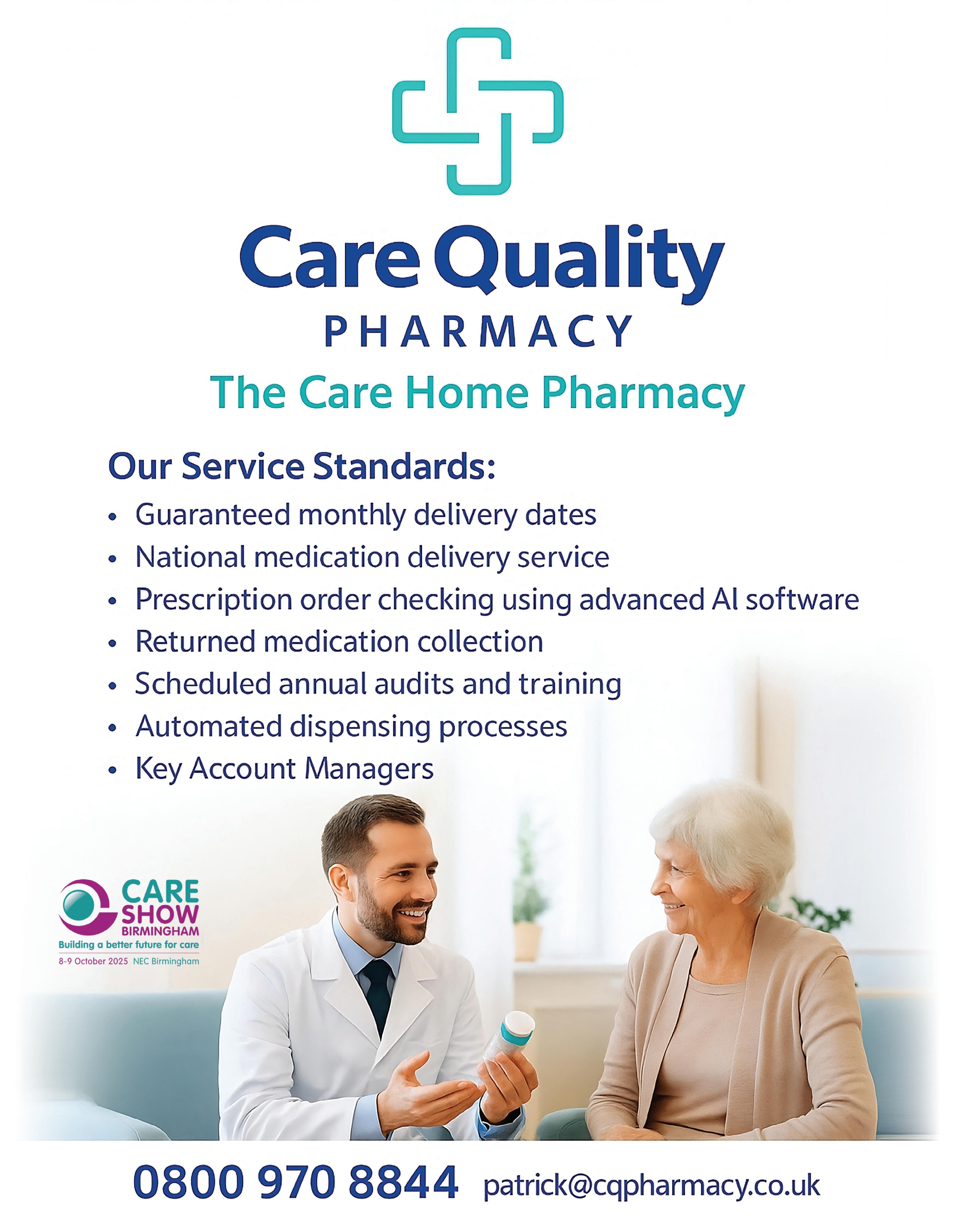

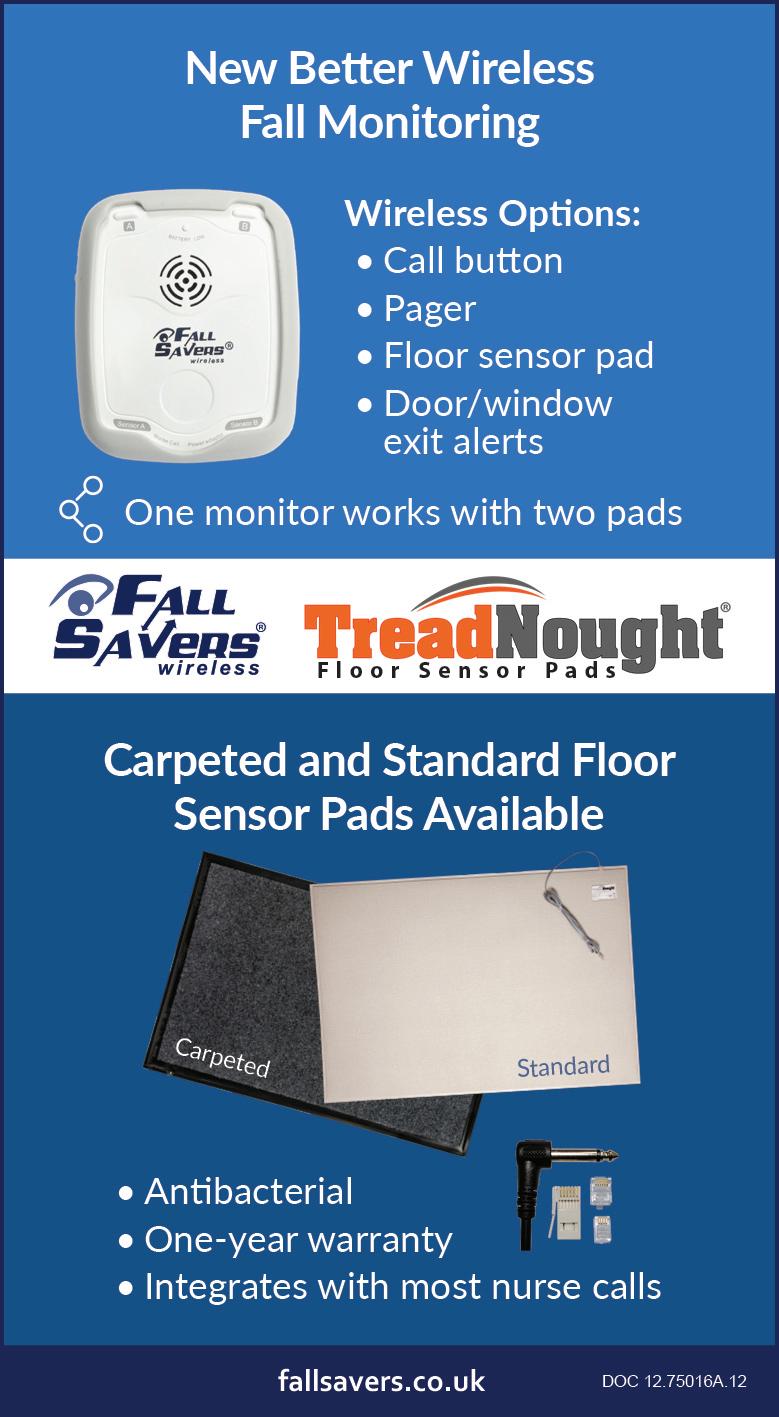













Thousands of council and NHS adult social care workers face potential exclusion from the fair pay agreements, as the government considers limiting the new wage negotiation framework to the independent sector workforce alone.
Care home operators are now awaiting clarity on whether the government's forthcoming fair pay agreements will apply uniformly across the sector.
The Department of Health and Social Care has opened a public consultation exploring whether the pioneering wage negotiation system should focus exclusively on the independent sector workforce, which comprises the overwhelming majority of England's adult social care employees.
In the consultation the DHSC state that: “A fair pay agreement is an agreement that will set minimum standards for pay and terms and conditions, enforceable by law, as well as improving training opportunities and career progression for the care workforce.
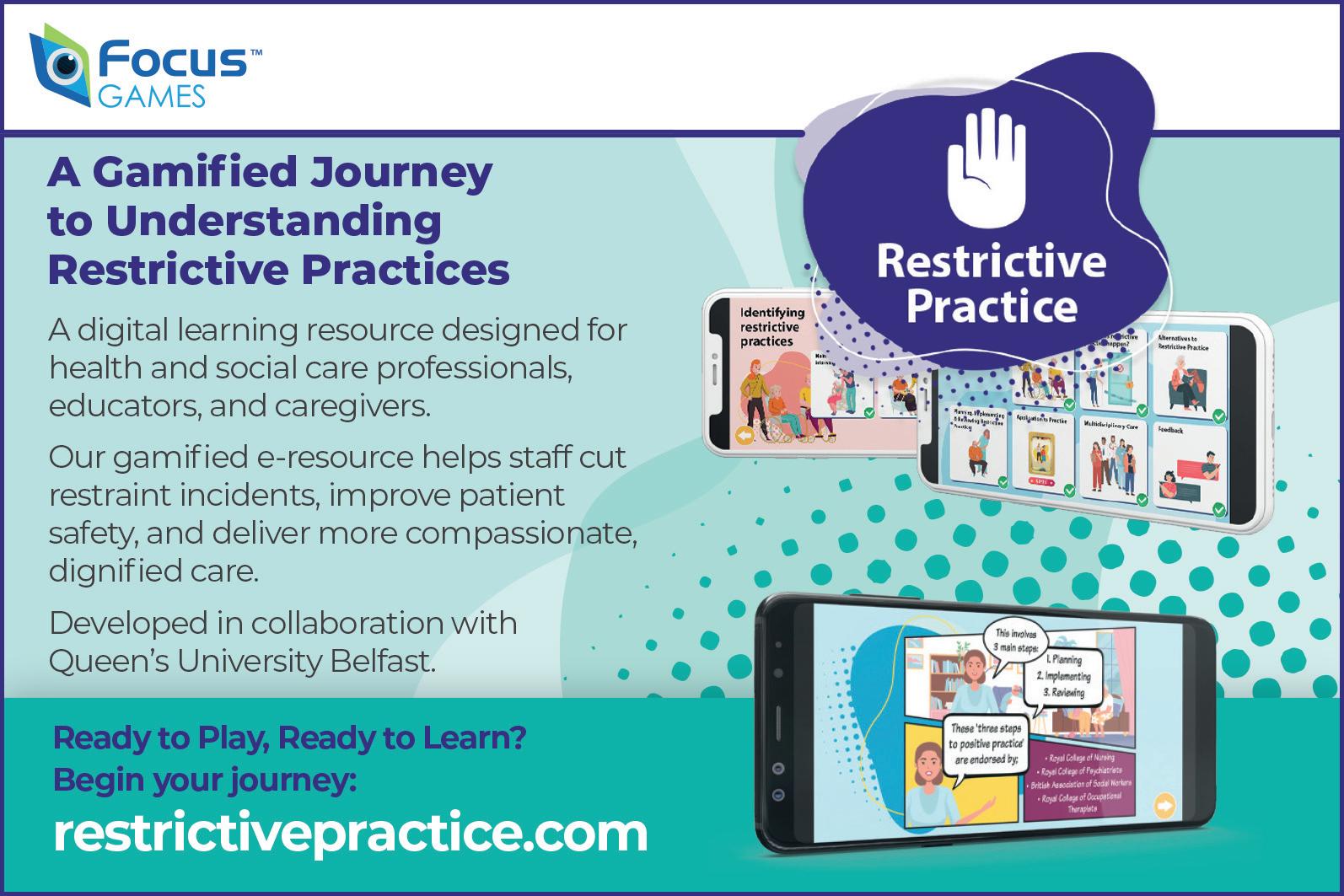
“The agreement in England will be reached through negotiation. To do this, we are introducing a form of sectoral collective bargaining in adult social care…. We are doing this at a national level, by setting up the ‘Adult Social Care Negotiating BODY’… BY ESTABLISHING THIS, WE WILL:
• empower workers
• strengthen the role of trade unions in the sector
• ensure staff have the recognition and reward for the important work they do
• boost productivity and improve living standards
Officials are, however, weighing whether to concentrate resources on workers currently without collective bargaining arrangements, rather than extending coverage to those already protected by existing national agreements through the National Joint Council for Local Government Services and NHS Agenda for Change contracts.
(CONTINUED ON PAGE 3)
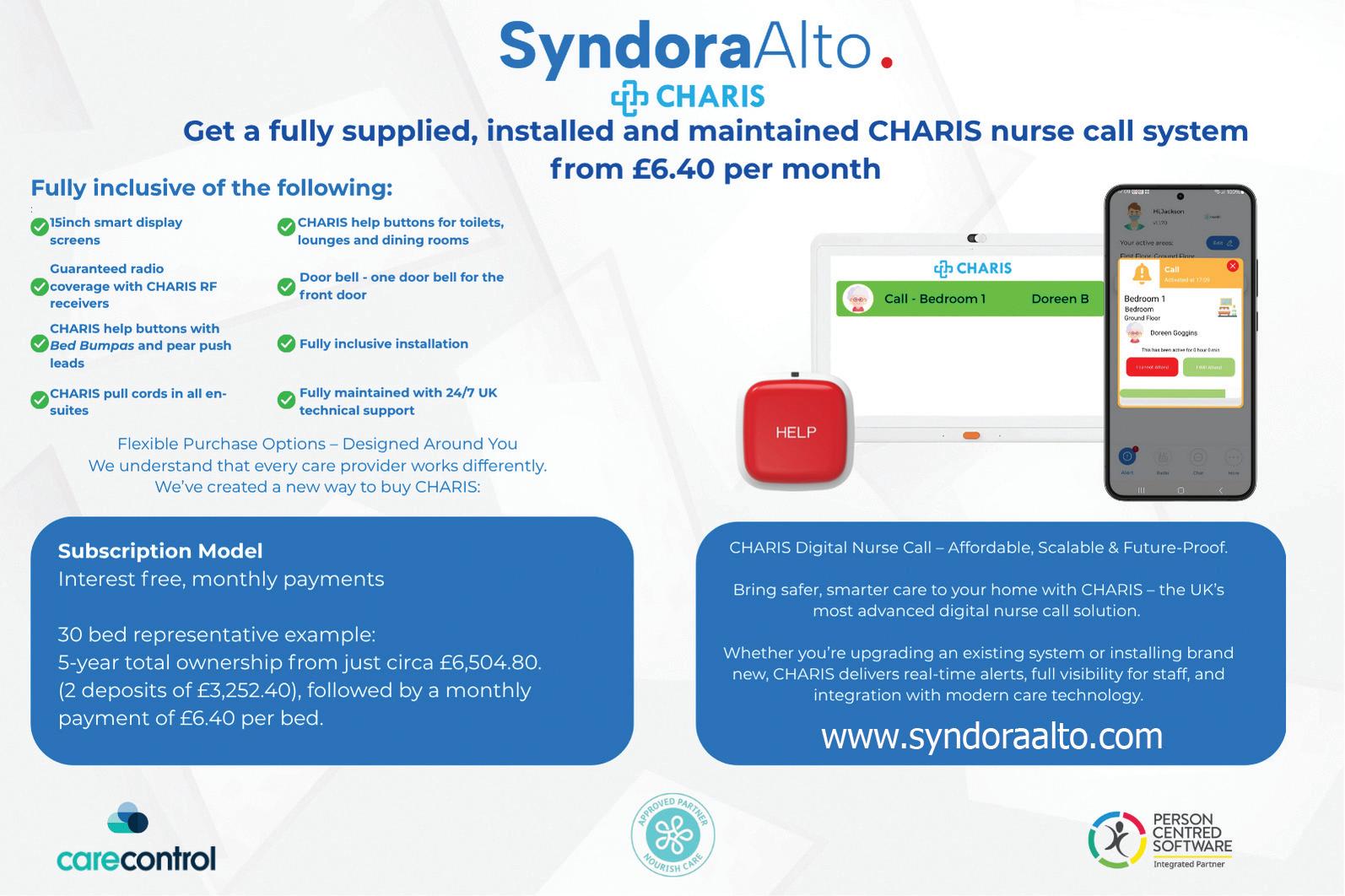
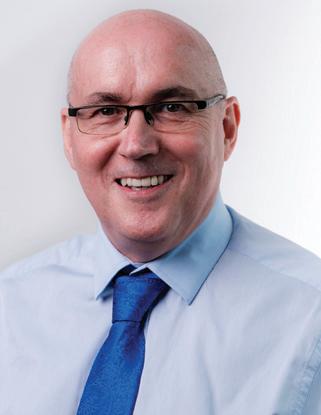
I'm writing this from THE CARER show at Birmingham's NEC, where today and tomorrow the topic of discussion will no doubt include fair pay agreements.
As the country's largest adult social care trade event unfolds packed with seminars, presentations, product launches and innovations, the conversation is circling back to the government's consultation and what it really means for our sector.
I am here on our stand throughout both days, and I genuinely hope you'll stop by to share your views. I thrive on feedback, and right now, we all need to be talking about this.
The principle behind fair pay agreements is something the sector has championed for years.
In my time as editor, it has been crying out for structure, for recognition, for a framework that acknowledges the skill, dedication and sheer hard work that characterises adult social care.
On paper, establishing a negotiating body with union and employer representation, creating enforceable minimum standards, and bringing some semblance of unity to this fragmented workforce sounds transformative.
But here's where my enthusiasm hits a wall: the details.
The government is possibly contemplating excluding council and NHS social care staff from these agreements. Their reasoning?
Limited resources should target those without existing collective bargaining arrangements. Pragmatic, perhaps. Fair? Absolutely not.
My concern is a two-tier system that perpetuates the very inequalities these agreements claim to address, these types of agreements are fraught with contention.
Then there's the money. Half a billion pounds sounds impressive until you do the mathematics, as many organisations already have!
Spread across England's adult social care landscape, filtered through local authorities already stretched beyond breaking point, expected to offset increased labour costs while maintaining quality standards?
It really is a sticking plaster on a compound fracture.
I've spoken with dozens of operators over recent months, in particular at last weeks Providers Unite protest at Labour’s conference in Liverpool, and the consensus is unanimous: this funding allocation doesn't reflect the reality of what meaningful pay reform
will cost.
The enforcement mechanism is also raising concerns. Once ratified, these agreements become legally binding across the board. Non-compliance risks tribunal claims, reputational damage and regulatory penalties.
Everyone supports accountability, but I question whether we've created a framework that imposes “unintended consequences”.
Employment lawyers are already advising operators to audit workforce structures, review contracts, revise policies and overhaul payroll systems, for want of a better phrase “operational transformation”. Will the sector be given the tools and resources to achieve it?
I stand to be corrected but see a negotiating body that operates independently but as a public body. Agreements that set minimum standards but could expand into training, career progression and who knows what else. A system where government retains power to impose settlements if negotiations deadlock.
This isn't collective bargaining in the traditional sense, not from my days when I worked on a factory floor!
It looks more of a structured state intervention in employment relations, and whilst I recognise the unique circumstances of our sector justify unique approaches, I do, as stated above, worry about unintended consequences.
The consultation closes on 16 January 2026. That gives time for voices heard, but only if we actually speak up.
Please do respond to the consultation!
Come Talk to Me
I am here at THE CARER show today and tomorrow. So, whether you're optimistic about fair pay agreements or deeply sceptical, whether you've got detailed technical concerns or broad philosophical objections, I want to hear from you.
The exhibition floor is packed with innovations in care delivery, assistive technology, training solutions and operational management. All of that matters. But none of it works without a valued, properly compensated workforce operating within a fair and sustainable framework.
I would encourage our readers to sign up for our bi-weekly digital newsletter at www.thecareruk.com and follow us on social media for all the latest news.
I can always be contacted at editor@thecareruk.com
The Carer is published by RBC Publishing Ltd, 3 Carlton Mount, 2 Cranborne Road, Bournemouth, Dorset BH2 5BR. Contributions are
damage. Views expressed within this publication are not necessarily those of the publisher or the editorial team. Whilst every care is taken when
responsibility for any effects, errors or omissions therefrom. All rights reserved, reproduction is forbidden unless written permission is obtained. All


(CONTINUED FRON FRONT COVER)
THE CONSULTATION COVERS SEVEN MAIN AREAS:
1. Adult Social Care negotiating body (including its structure, how it will be supported by a secretariat, its Chair, how the employer and employee representative sides will be organised, the role of local government)
2. Negotiation process (including the remit from the Secretary of State, timelines, decision making)
3. Coverage and remit (including which roles should be covered by the Fair Pay Agreements (FPA), which settings, services or roles should be excluded from the FPA, whether the council and NHS employed social care staff should be included, cross-border workers, what the priorities for the ASCNB should be in relation to pay, terms and conditions, training, development and career progression, and wider matters including people and culture and additional financial support)
4. Dispute resolution (including how a dispute is triggered and the involvement of ACAS)
5. Implementation (including review and reconsideration, determination if no agreement reached, communication, guidance and codes of practice)
6. Compliance and enforcement (including Employment Tribunal claims, Fair Work Agency enforcement)
7. Equalities impact: whether people with certain characteristics would benefit or be disadvantaged by the proposals in the consultation. While there are no explicit questions on equal pay, there is an opportunity to comment on this in the equalities impact section
LIMITED RESOURCES
The rationale centres on the limited resources available for implementing the agreements, with the department suggesting that targeting the consultation could maximise impact where protection is most needed. However, the alternative approach of universal coverage has been acknowledged as potentially beneficial for workforce cohesion, enabling standardised training requirements and consistent care delivery standards nationwide.
Current wage data highlights stark inequalities across employment settings. Independent sector care workers typically earn approximately £1.20 less per hour than their local authority counterparts in equivalent roles, with the differential widening further for senior care worker positions where the gap reaches £3 per hour.
These disparities affect the vast network of approximately 18,000 independent organisations delivering adult social care across England, alongside personal assistants employed directly by people requiring support.
Annual negotiations will operate within a fixed financial envelope determined by ministers, with the proposed Adult Social Care Negotiating Body required to ensure recommendations remain within these constraints.
Under plans detailed in the consultation, the negotiating body would comprise equal representation from trade unions and employer organisations. UNISON, GMB, Unite and the Royal College of Nursing are establishing worker representation, while the Care Provider Alliance will coordinate the employer delegation.
Should the remit extend to council and NHS staff, the Local Government Association and NHS Confederation would join employer representatives at the negotiating table.
A neutral chair supported by a dedicated secretariat would oversee proceedings, with disputes escalating to ACAS conciliation if consensus proves elusive. Ultimately, the Health and Social Care Secretary retains authority to impose settlements if negotiations reach deadlock.
LEGALLY
The Employment Rights Bill, approaching statutory status, provides the legal foundation for these arrangements. Agreements ratified by ministers would become binding on all relevant employers, with enforcement mirroring minimum wage legislation through a newly established Fair Work Agency.
Regardless of whether local authority staff fall within the negotiating body's scope, councils will maintain significant influence given their predominant commissioning role. Proposed safeguards include mandatory consultation requirements and provisions for council representatives to submit written assessments of each agreement for ministerial consideration before ratification.
Care home operators face questions about how agreements will interact with NHS funding streams including continuing healthcare, funded nursing care and Better Care Fund contributions, alongside implications for self-funding residents whose fees ultimately support wage costs. The consultation explicitly seeks views on managing these complex funding relationships within the fair pay framework.
HUGE HOLES
Following the announcement of the government consultation and the £500 million additional funding UNISON general secretary Christina McAnea said: “This is the first government to take the many problems in social care seriously and, more importantly, to act on them.
“Years of low wages and poor conditions have left the sector with huge holes in its workforce, unable to deliver the support that’s needed.
“The best way to begin getting a grip on this complex, fragmented sector in crisis is to improve wages through a fair pay agreement, backed by proper funding.
“The higher wages that result will help make staff feel more valued, boost recruitment and encourage care workers to stay in their jobs for longer.
“The funding announced is a start, but substantially more will be needed to deliver the national care service the public deserves.
“Once the care sector is able to stand on its own two feet and provide quality care to all those needing support, it will ease the pressure on families and the NHS.
“The launch of the public consultation allows the long-overdue reform of care to begin to take shape.
“Ministers will have to increase the funding behind the fair pay agreement at the earliest opportunity. Then wages in care can rise more quickly and the staffing crisis end.”
The government has acknowledged that the establishment of a fair pay agreement for adult social care in England is likely to “lead to increased labour costs for care providers” and that these costs are likely to be passed on to those that pay for such care – whether local authorities, the NHS, or individual private-pay recipients of care. It has set aside £500 million of public funds to give to local authorities in England to offset the additional costs they are likely to face Analysis by The Health Foundation suggests £500m is not enough to deliver meaningful improvements in pay and conditions and achieve the government’s ambitions for this policy.
The Health Foundation previously estimated £2.3bn could be needed to increase pay for the care workforce in England to at least NHS Agenda for Change Upper Band 3 of £13.13 in 2024/25, excluding personal assistants. This is £1.13 more than the median hourly rate of £12 in December 2024 for care workers in the independent sector, who make up the majority of the workforce.
SUBMISSION DEADLINE
Stakeholders have until 16 January 2026 to submit responses through the Department of Health and Social Care's online consultation portal, with the sector's participation crucial in shaping the final model for what the government describes as essential infrastructure for a historically fragmented workforce.
The outcome will determine whether England's adult social care sector moves toward unified employment standards or maintains separate frameworks for public and independent sector workers.
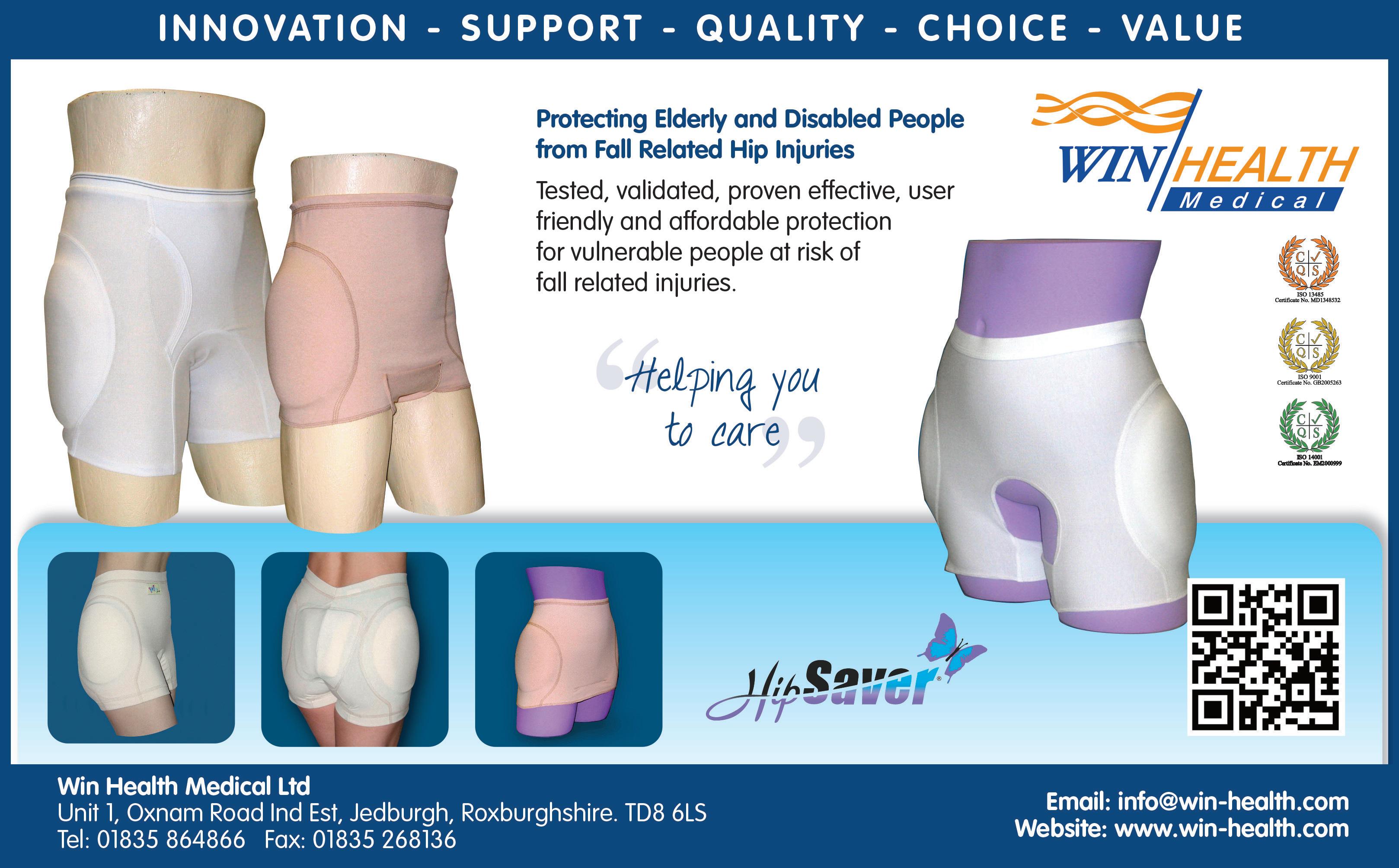
By Katie Maguire, Partner, Devonshires
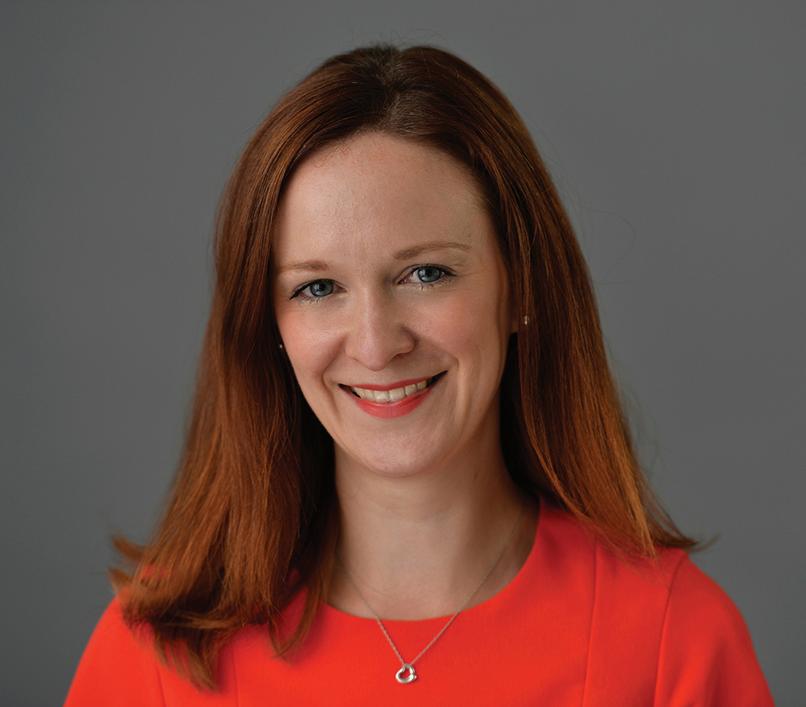
The Government’s latest immigration reforms, set out in the Immigration White Paper “Restoring Control Over the Immigration System” published on 12 May 2025 signals a decisive change in policy.
The headline move is an end to overseas recruitment for care workers, framed as part of a broader attempt to reduce net migration and restore “control” over the immigration system.
Ministers argue that these steps will not only curb dependency on overseas labour but also drive economic growth by investing in a homegrown workforce. Yet within the care sector, the reaction has been one of alarm due to fear that these reforms, while politically expedient, conflate the distinct challenges of illegal migration with the realities of legal recruitment, and in doing so, risk deepening a staffing crisis that already threatens the quality and sustainability of care services in the UK.
POLITICAL, RATHER THAN PRACTICAL
At the heart of the debate is the care sector’s reliance on international recruitment. Over recent years, overseas workers have been a lifeline, helping to plug tens of thousands of vacancies that UK workers have been unwilling, or unable, to fill. The Government’s assertion that curbing this pipeline will boost opportunities for domestic staff overlooks why these jobs have become unattractive in the first place: low pay, high workloads, limited career progression, and often insecure contracts. Without directly tackling these systemic problems, removing the overseas recruitment option risks simply leaving roles unfilled.
By conflating legal and illegal migration, policymakers risk undermining a sector that depends on careful, practical workforce planning. While tackling irregular migration is a legitimate goal, equating it with legitimate care recruitment serves a political purpose rather than a practical one. The consequence could be a surge in vacancies, adding pressure to an already stretched system.
The immediate impact of the changes to Skilled Worker Visas will be a sharp reduction in the pool of candidates available for hire. Care operators, from large national providers to small family-run homes, will need to prepare for a period of instability. Although care workers already in the UK on health and care visas will be
allowed to continue working and may switch employers during a transition period, uncertainty will persist. The risk of churn is high, with operators facing competition for a shrinking workforce. WHAT CAN PROVIDERS DO NEXT?
Practical steps are essential. Providers should prioritise staff retention, investing in wellbeing programmes, training, and clear career pathways to reduce turnover. Exploring new recruitment pipelines, such as partnerships with colleges and community employment schemes, may help, but these are medium- to longterm solutions. In the short term, avoiding overreliance on agency staff, which could inflate costs, will be crucial.
The long-term impact on the quality and availability of care services in the UK will depend on the success of the Government’s efforts to professionalise the workforce and ensure fair pay and conditions. The impact of the changes to visa rules on the care sector will vary widely. Local authority-commissioned services, already operating under squeezed budgets, will find it hardest to raise pay or improve conditions to attract domestic workers. Private care providers may have slightly more flexibility, but even here, margins are thin, and wage increases may ultimately push up fees for service users. Larger organisations may be able to absorb recruitment costs or invest in training, while smaller operators risk being disproportionately affected.
This variability exposes the bluntness of blanket immigration restrictions. By failing to differentiate between sectors with genuine, unavoidable labour shortages and those where domestic recruitment is more feasible, the reforms risk punishing providers who have no realistic alternative but to recruit overseas. For vulnerable individuals relying on care, the consequence could be reduced availability of services, longer waiting times, and greater strain on already limited support networks.
In theory, the Government’s parallel commitments to fair pay agreements, improved professional standards, and investment in the domestic workforce could mitigate the damage. In practice, these measures will take time to design and implement, while the staffing shortages caused by the visa changes will bite immediately. The result may be heavier workloads for existing staff, rising burnout, and higher turnover leading to a vicious cycle that undermines both quality of care and workforce stability.
The irony is that these reforms do little to address the problem of illegal migration, despite being sold in part on that basis. Instead, they target legal, regulated recruitment routes that have been vital for sustaining the care sector. Unless ministers are prepared to address the structural issues that make care work unattractive to UK workers, namely pay, conditions, and status, the risk is clear: a sector already on the brink could be pushed into deeper crisis.
A Nottinghamshire specialist dementia nursing home is celebrating a remarkable milestone after being awarded the Meaningful Care Matters (MCM) Butterfly Accreditation for the 15th year in a row.
Wren Hall, located in Selston, has once again been recognised for its unwavering commitment to delivering heartfelt, person-centred care through the renowned Butterfly Approach.
Developed by Meaningful Care Matters, the Butterfly Approach focuses on creating care cultures where people are ‘free to be me’. It values emotional intelligence alongside clinical excellence, nurturing genuine relationships and everyday moments of joy.
Homes achieving the accreditation must demonstrate that they provide a homely environment, while prioritising emotional connection and empowering individuals to live with meaning and purpose.

At Wren Hall, this ethos is embedded into daily life. Family members – as those who live at the home are affectionately known – are encouraged to make choices, stay engaged in activities they enjoy and maintain a sense of independence, all within a safe and supportive environment.
Peter Bewert, Managing Director at Meaningful Care Matters, commended Wren Hall by saying:
“Thank you for your partnership and never compromising on your passion and commitment to ensuring people living and working at Wren Hall are loved, valued and cared for.”
This year’s accreditation report highlighted several examples of Wren Hall’s outstanding practice. From a garden sign that reads “In loving memory of Angela… who lived and was loved here” to the staff dressing in cowboy hats and feather boas, the home radiates warmth and joy.
Inspectors praised the home’s genuine sense of shared living, where there is no division between staff and family members. The thoughtful creation of four distinct households within Wren Hall reflects the team’s deep understanding of emotional needs, with each space tailored to where a person will feel most at home. This 15-year commitment to sustaining the Butterfly Approach is a testament to the culture of care fostered at Wren Hall.
Speaking to Wren Hall following her visit, Sally Knocker at Meaningful Care Matters said: “It was such an amazing day. I just had so many moments when I felt like filling up with tears – in a really good way. Just seeing the amazing tender moments, the fun moments, and all the love, hard work and commitment you gave to all the family members throughout the whole day in all of the houses. It’s such a joy for me to know that people living at Wren Hall are really thriving and flourishing because of all that you do and all you are as people. You’re a wonderful team and I’m really proud of you. Big congratulations from all of us at Meaningful Care Matters for being a really great Butterfly home.
Ritson Lodge care home, Hopton on Sea, enjoys adding Residents to the Homes “Wish Tree” by making their wishes come true.
Resident Michael Atkins 83 served in the RAF from the age of 15 years old for 24 years. Michael a Navigation technician worked on aircraft navigation, attack and defence systems. Michael was posted for his basic training in Wales and had the privilege of serving in London, Germany, Singapore, Northern Island, The Artic and Malaysia. He served with a joint European Squadron who developed the Harrier Jump Jet. The Activities Co-ordinator Kimberley Holman at Ritson Lodge Care Home is responsible for planning trips and activities to grow the Home’s “Wish Tree”. Kimberley liaised with the Norfolk and Suffolk Aviation Museum to arrange a VIP visit
Michael had a hands-on experience as he re-lived memories as he had actually worked on a Hawker Hunter, Canberra and Vickers air planes which were some of the Museum’s artifacts.
To end the perfect day the Museum awarded Michael a lifelong membership so he can visit anytime. Michael is now planning a return trip with some of his friends and fellow Residents at Ritson Lodge. Operations Manager Katy Hughes said: “Kimberley is fantastic at making our Residents wishes come true on a regular basis and we will add Michael’s experience to Ritson Lodges “Wish Tree”. I can’t wait to see who’s and what wish is made true next keep, up the great work Kimberley. Here at Ritson Lodge we are committed to enriching the lifestyle of our Residents as they enjoy living at their home.

Alzheimer’s Disease International (ADI) has announce that dementia will, for the first time, be formally recognised within the new UN Political Declaration on noncommunicable diseases (NCDs) and mental health.
This inclusion represents a pivotal shift: dementia, projected to become the third leading cause of death worldwide by 2040, will now be acknowledged as a major public health and NCD priority. An important moment that reflects the voices of millions of families, advocates, and organisations across every region who have been calling for action. Following prior agreement by Member States of the declaration, we now expect a formal adoption, in about a month’s time, at the next meeting of the General Assembly
This achievement follows years of sustained advocacy by ADI, engaging with all UN Member States and key global stakeholders to secure dementia’s rightful place in the declaration. ADI looks forward to continuing our work in this area, as we translate this declaration into tangible policy change across UN Member States, in collaboration with our global network of member associations.
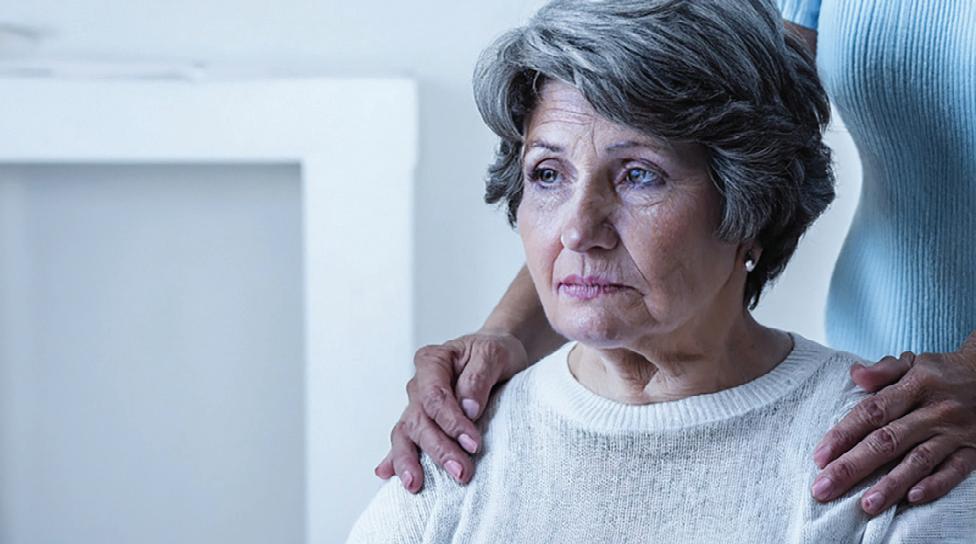
On the declaration ADI CEO, Paola Barbarino said: “With this declaration, we must take this moment to unite the dementia and NCD community to hold governments accountable for addressing dementia as a leading cause of mortality and morbidity globally and take action to ensure it has a tangible impact to those living with dementia. Dementia shares so many risk factors with other leading NCDs, and with research showing that up to 45% of dementia cases could be delayed or even prevented, inclusion in this declaration brings us a big step forward, to better integrated health messaging. At the heart of this must be our drive to reduce the hugely concerning future prevalence forecasts.”
On 23 September, ahead of the high-level meeting, ADI convened global experts to explore the intersection of dementia and NCDs and to strengthen collective action. The full webinar recording is available at the link below:
At a side event to the UN General Assembly, the capacity in-person event was also broadcast online, with people from time zones straddling two days, from Australia across to Peru.
Leading panellists shared valuable insights and advice on current NCD strategies and how better to integrate dementia, and how to work collaboratively with other non-communicable diseases, through joint public health messaging, especially around risk reduction.
HERE ARE JUST SOME OF KEY TAKEAWAYS:
• With research showing that up to 45% of dementia cases could be delayed or even prevented, and with many risk factors shared across multiple non-communicable diseases, it is vital that governments realise the potential for integrated healthcare messaging and awareness campaigns
• Expert panelists from Indonesia, the Netherlands, Brazil and Costa Rica each articulated the need to better embed dementia into NCD strategies, with insights into how to important it is to train and educate health and care workforce around risk and management.
• Alongside raising the profile of dementia as an NCD, it is vital for Alzheimer & dementia associations around the world to engage with their counterparts representing other diseases and conditions, to find ways to works together, to support each other’s advocacy and amplify awareness raising and healthcare messaging.
• Affecting lifestyle and behavioural changes is notoriously difficult and there is much we can learn from other NCDs and to work hand-in-hand with them.
Laura Clegg has been appointed as commissioning manager for Sandstone Care Group’s newest luxury care home, Manor Park in Old Malton, which is set to open soon.
A registered nurse with more than 40 years of experience, over half of which has been dedicated to adult social care, Laura brings a wealth of knowledge and leadership to her new role.
Her career has spanned a variety of positions, from hands-on care to operational and regional leadership, but her enduring passion has always been in delivering outstanding quality and outcomes for the people she supports.
Most recently, Laura completed a Master’s in Advancing Healthcare Practice, reflecting her strong belief that continual learning directly contributes to raising the quality of care.
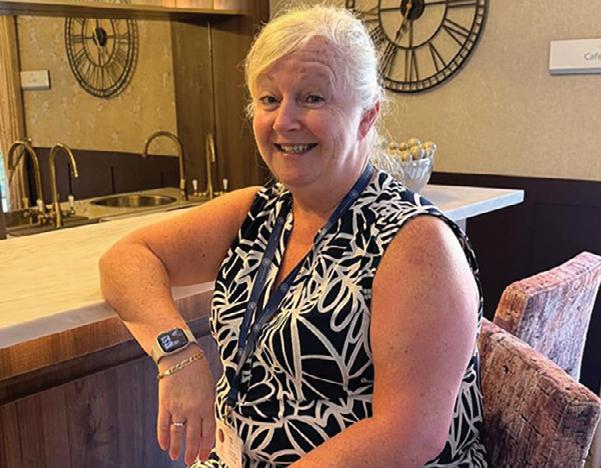
Speaking about her new role, Laura said: “I’m absolutely thrilled to be bringing this beautiful home to life and can’t wait to work with a brilliant team to create somewhere truly special for our future residents. My heart has always been in delivering great quality and outcomes for the people we care for, and Manor Park will be a place where that ethos is lived every day.”
James Parkin, Co-Founder and Director of Sandstone Care Group, added: “We are delighted to welcome Laura to the Sandstone family. Her extensive experience, clinical expertise and deep commitment to quality make her the ideal person to lead Manor Park. We are confident that under her leadership, the home will set new standards for exceptional care in North Yorkshire.”

By Alison Foreman,

It goes without saying that the care industry should offer high-quality care and support to those who need it most, but that’s not all.
Care homes need to provide more than what is expected, and should go above and beyond to deliver the exceptional services that residents and their families deserve. It can be hard to define what this looks like when meeting so many unique needs and experiences: this is where brand values come in.
Brand values are the core beliefs that an organisation stands for, and underpin every action and decision taken. In the care industry, these values don’t just define how a home operates, but provide the basis for staff to develop deeper relationships with residents and their relatives and ensure standards are always exceeded.
Clearly defined brand values are the guiding light at the heart of the care industry, helping to shape every element of the care and support residents receive. Here’s why they’re so important.
Whether it’s a commitment to treat every resident and their family with dignity, respect and honesty, a person-centred approach to care, or the importance of encouraging choice and independence, setting out clear values in the care industry is key.
Offering a consistently high-quality service isn’t an easy task in the current climate of rising costs, funding cuts, and relentless demand. At the end of 2024, the government estimated 86.2 per cent of care home beds in England were occupied, and staff are under more pressure than ever before.
But by defining and keeping clear values in mind and at the heart of their actions, staff can rise to the challenge and support residents to fulfil their potential.
Families need to be confident that the home they choose for their relative is going to be the right fit and that the care they will receive will be up to scratch.
It can be difficult for families to determine these things ahead of time, but care homes that adhere to strong brand values and put their best foot forward can prove to prospective residents that what they have to offer is of high quality.
(https://wecaregroup.co.uk)
Choosing a care home is a difficult but important decision, and building trust can help ease any initial nerves. Care homes that clearly display their values in any promotional materials, but also through their actions at every stage of the care process, are more likely to help residents and their families feel secure and looked after.
Listening to and taking seriously any concerns or worries is crucial. Providing examples of how staff encourage residents to retain their independence, how sensitive issues are handled respectfully, or the range of activities on offer to boost resident wellbeing can all go a long way too.
Strong values are not only important for those residing in care homes: they’re also important for employee motivation and retention too.
Workplace culture is shaped by values, and this plays a big role in attracting the best staff. Everyone wants to work for an organisation that has a solid reputation and a positive culture, and strong values can set care homes apart from their competitors and create a sense of belonging.
Research by LinkedIn reports that 68 per cent of professionals in Europe want to work for companies that share their values. Many in the care industry see their work as a vocation, and this passion for the industry should be reflected in the values of every element of the care industry.
Ultimately, brand values being at the heart of the care industry is about putting people first.
When the industry acts in line with its values, everyone is treated as worthy and their needs are listened to. It’s about putting residents at the centre of the service and every decision made, and having a positive impact on their lives.
Dealing with the strains and stresses of what is an emotionally and physically taxing job can make it a challenge to consistently deliver, but brand values can act as a guide and reminder to keep going.
Building trust, establishing a workplace culture, and ensuring that people are always at the heart of all decisions is made possible in the care industry when strong values are in place.
Having strong values means residents, families, and staff are treated with the care and respect they deserve, and residents are supported to live their lives to the fullest.
Taking the time to establish and embed these core principles throughout the care industry is a non-negotiable when it comes to providing a top-quality service, and our industry has proven time and time again that the right support can go a very long way.
On Sunday, 28th September, five team members from Kingston Court Care Home, Carlisle, CA2 7JH, took on the challenge of climbing Scafell Pike to raise money for their Resident Enrichment Fund. Part of the Mariposa Care Group, Kingston Court provides residential, nursing and dementia care for up to 80 elderly residents. Kingston Court created their Residents’ Enrichment Fund to help fund additional activities, resources, trips and events that complement the high-quality care and wellbeing support already provided by Mariposa Care.
Standing at an impressive 3,209 ft, Scafell Pike is the UK’s highest mountain and is situated within the Lake District – a scenic national park in Cumbria.
Kim Lawson, Home Manager at Kingston Court, joined her colleagues Darcy Laing, Nicholas Roberts, Ian Ormandy and Gabriel Scorpie to take on the enormous challenge. They were also supported by family and friends Mae Collins, Leah Jarzyna and Alan Lawson on the climb. Reflecting on the day, Home Manager Kim Lawson said: “With little to no training for some, this wasn’t just a physical test, but a heartfelt mission to raise as much money as possible. As we set off early in the morn-

ing, a few of us couldn’t help but think, ‘What have we gotten ourselves into?’
“What kept us going was the thought of who we were doing it for –that motivation gave us the strength to push through every challenge. Everyone looked out for one another, and we made sure no one was left behind. Together, we reached the summit – tired, proud and full of joy.”
So far, the team’s fantastic efforts have raised over £2,500, with donations still being collected via their JustGiving page. All money raised will go directly towards enrichment resources, activities and trips for Kingston Court residents.
Chris Beastall, Development Director at Mariposa Care, was incredibly proud of Kingston Court’s achievement. He said: “It is inspiring to see our team at Kingston Court take on such a monumental challenge –and it is a true reflection of the home’s determination, commitment and care for our residents. We are very proud of what they have achieved and look forward to seeing how the money raised will be used to further enhance the lives of everyone living at the home.”
Residents at an Ilkley home can visit places such as Scotland and the North York Moors without leaving their home thanks to a new train experience.
MHA Glen Rosa have installed the Jolly Journey Train Experience, a new initiative by Little Islands, who specialise in creating unique interactive environments.
The train experience showcases journeys across the UK from the viewpoint of a passenger looking out of the window.
The team from Little Islands installed and decorated a part of the home’s dementia unit and converted it into a train carriage with props such as suitcases, train times and journey information displays.
MHA Glen Rosa provides residential and residential dementia care for 47 residents.
Adam Carling, home manager said: “The Jolly Journey Train experience is a new initiative and one that is proving to be very popular here.
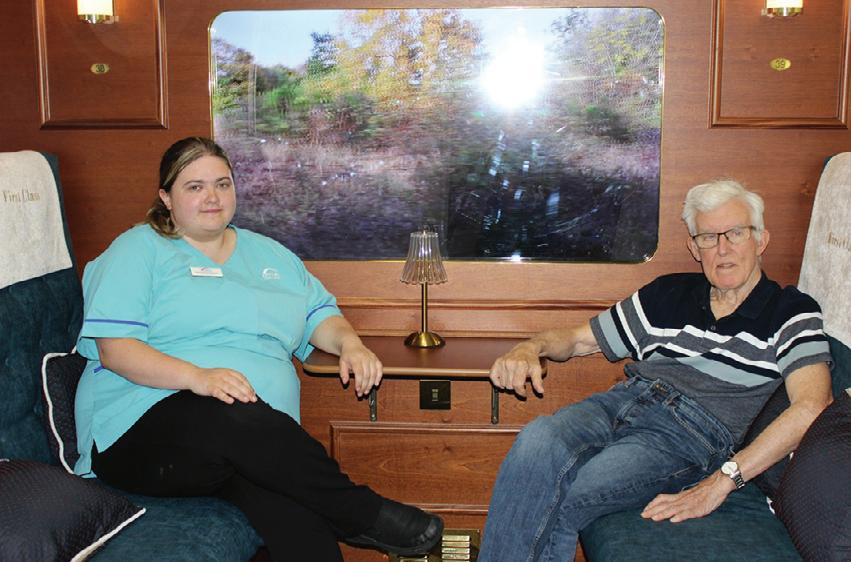
“We have received some great feedback since the experience has been installed.
“Our residents love it, you will often see a number of them sat in the carriage and watching a journey.
“The idea came to me from my area who forwarded it to me, and I decided to look into it.
“I then contacted the team at Little Islands and the whole process took a couple of months from start to finish.
“We are quite privileged here at MHA Glen Rosa, where thanks to the generosity of the local community we are able to provide services such as this for our residents.
“We received a very generous donation via our Legacy Fund which enabled us to go for this experience.
“The location of the experience is really good as it’s in a high footfall area, where both residents and their relatives can sit and enjoy it.
“Alongside the Train Experience, we have also prepared a sensory garden thanks to funds we received.
“I do think this is something other MHA homes can look into having, it’s something quite unique and I
A new study has revealed how NHS waiting lists are pushing patients into risky choices – with some delaying or even avoiding care altogether, despite potential cancer symptoms.
The survey of 2,000 adults found nearly a third (29%) have put off seeking care due to long waits, while more than one in five (22%) admit they have avoided seeking care altogether. Alarmingly, one in five (20%) delayed seeing a doctor even after noticing possible cancer symptoms.
Doctors warn this behaviour could mean hundreds of cancers are going undiagnosed, or being caught later when survival chances are reduced. NHS data shows that more than a third of melanomas are picked up on routine pathways rather than urgent referrals – meaning delays in those lists could be hiding further undetected cancers.
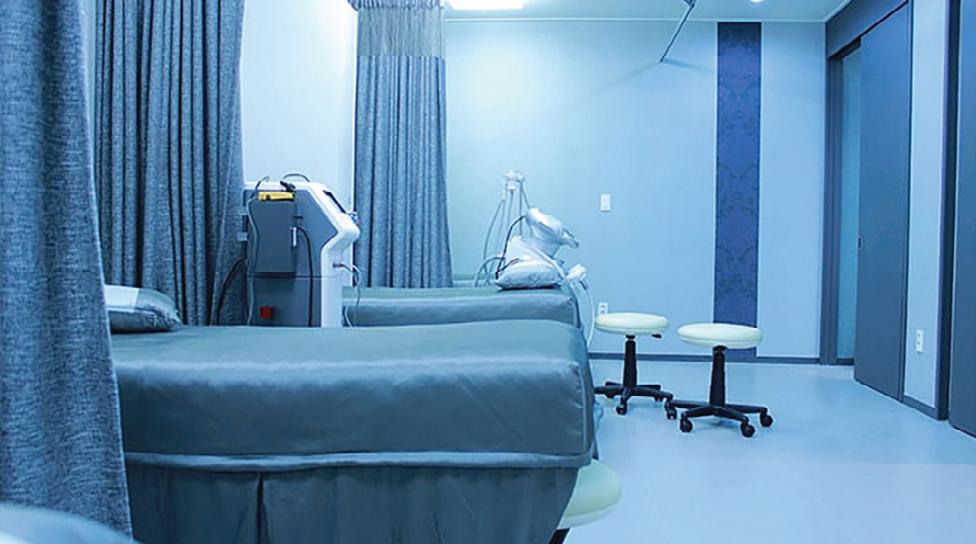
Amid this backdrop, the study also found patients are increasingly open to solutions that speed up access to care. Eight in ten (79%) Britons said they would trust AI in healthcare assessments, nine in ten (92%) said speed is vital, and nearly three quarters (71%) believe regulated AI could help reduce NHS wait times. 73% of respondents said the NHS has a duty of care to deploy technologies that are proven to improve outcomes for patients. The fact that AI won’t suffer from tiredness as a human would (24%) and is more cost effective (21%) were also among the benefits cited.
These views come against the backdrop of record NHS waiting lists, with more than 7.4 million treatments outstanding for 6.25 million patients in England. More than half of those waiting have yet to receive any clinical contact, while more than 1,400 people have been waiting over 18 months to begin routine treatment.
Skin Analytics, the healthtech company behind the research, specialises in AI-driven skin cancer detection and works with 27 NHS trusts across the UK. Its skin cancer detection system, DERM, recently became the world’s first AI legally authorised to detect cancer in patients without a doctor present, after receiving EU MDR Class III certification – the highest level of regulatory approval for a medical device.
Neil Daly, founder and CEO of Skin Analytics, said: “The real danger comes not from technology, but from waiting months for answers while cancer can progress. Too many patients are delaying or avoiding care altogether because they don’t believe they will get seen. AI tools like ours show that regulated technology can safely reduce that risk – giving patients timely answers and freeing up doctors’ time to focus where it matters most. The NHS now has a duty to use proven innovation to protect patients.”
The survey, conducted by OnePoll, did highlight some of the perceived limitations of AI being used in medical settings. A lack of empathy was the biggest concern (27%), followed by a lack of accountability if something goes wrong (24%) and the reliance on the tech meaning a reduction in human skills (17%).

However, trust in AI soars when endorsed by doctors or shown to outperform clinicians, and more than a third of respondents (36%) said they believe that regulated AI will eventually be better at giving medical assessments than human doctors.
For patients, the impact is already real. Lynsey Robertson, a GP practice manager, had ignored a mole for years because she did not want to “waste a doctor’s time” – until the AI flagged it as melanoma. She said: “I’d always put it off, assuming it was nothing. When the AI flagged it and I got a quick diagnosis, I was shocked at how serious it was. Without it, I might still be waiting – or not have gone at all.”
Dr Saleem Taibjee, Consultant Dermatologist (& Clinical Lead) + Consultant Dermatopathologist at Dorset County Hospital NHS Foundation Trust, said: “Skin cancer is now the most common cancer in England, making up more than one in five urgent cancer referrals, and pressure on services means many patients are waiting longer than they should have to, or delaying seeking help.
“For Lynsey, AI meant her skin cancer was detected promptly and appropriately referred for treatment –potentially the difference between an early, highly treatable cancer and a much more serious outcome.
“By helping dermatologists triage referrals quickly and accurately, AI helps us prioritise cases like these and reduce delays. AI will not completely replace clinical expertise, but it is becoming an essential tool to help us manage rising demand, reduce backlogs, and ensure patients like Lynsey get the right care at the right time.”
Neil Daly adds: “What this research shows is that while not everyone fully grasps the risks of delay, people increasingly see the potential for safe, regulated AI to protect patients. Concerns about empathy and accountability are valid, but AI is never about replacing doctors – it’s about supporting them to deliver better, faster care. Crucially, tools like ours can also help build a more sustainable healthcare system by reducing pressure on stretched services and ensuring doctors’ time is focused where it’s needed most.”

By Lucy Craig, founder and Managing Director of dementia care specialists, Craig
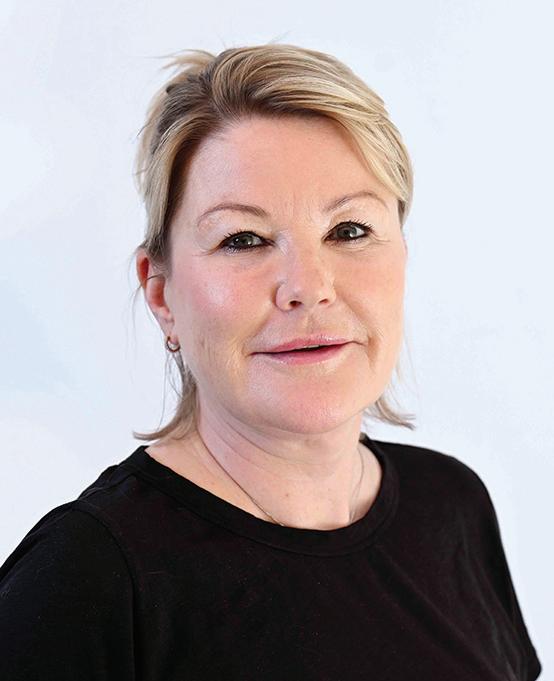
By 2051, it is estimated that over two million people in the UK will be living with dementia. This is a staggering figure that demands our urgent attention. With over 20 years working in the care sector, I’ve witnessed firsthand the profound impact dementia has, not only on individuals, but on families, communities, and the sector at large. Despite the tireless efforts of care professionals across the country, we are facing a crisis of capacity, capability, and compassion. The UK simply does not have enough specialist dementia units to meet the growing demand, and I fear the consequences of inaction will be felt for generations.
Dementia is not a one-size-fits-all condition. It encompasses a wide range of symptoms, behaviours, and progression patterns that vary from person to person. Specialist dementia units are designed to provide tailored care that respects these differences, such as adapted spaces that reduce confusion or agitation, specialist staff training, medical and therapeutic services and family support and education.
These specialist care homes are not just buildings, or a new home for the individuals, in many respects, they are lifelines. They provide dignity, safety, and quality of life for people who might otherwise struggle in generalist settings.
Currently, many people living with dementia are placed in care homes that lack the specialist resources to meet their needs which can lead to several issues including hospitalisation, higher rates of carer burnout, and a reduced quality of life which could lead to a preventable decline in those individuals.
From a financial perspective, the cost of inadequate care is immense. Emergency interventions, prolonged hospital stays, and reactive treatments are far more expensive than proactive, specialist support. Investing in more specialist care units is not just morally right, it’s economically sound and the UK’s ageing population is accelerating this crisis.
By mid-century, it is estimated that one in four people will be over 65. With age being the greatest risk factor for dementia, the implications are clear - demand for specialist care will skyrocket. Yet, the current
infrastructure is nowhere near prepared. According to Alzheimer’s Research UK, there are already over 900,000 people living with dementia today, and many struggle to access appropriate care.
We must act now to expand capacity, train staff, and build facilities that can meet this demographic shift head-on.
At Craig Healthcare, we believe in a future where every person with dementia receives care across our three homes, which are not only clinically effective but emotionally enriching. We need support from the Government to be able to build more specialist units across more urban and rural areas, be able to invest in workforce development with dementia-specific training and create more community partnerships.
We’ve seen the transformative power of specialist care in our own facilities. Residents who once struggled with severe agitation or withdrawal have found peace, purpose, and connection. Families who felt overwhelmed have found support and understanding. This is what good dementia care looks like, and it should be the standard, not the exception.
To achieve this vision, we need more than passion, we need policy. Government support is essential to fund new units, incentivise training, and integrate dementia care into broader health strategies. Collaboration between NHS trusts, local authorities, private providers, and charities will be key. We must build a unified approach that puts people first.
Dementia does not discriminate. It touches every community, every background, every generation. As we look ahead to 2051, we must ask what kind of society we want to be. One that reacts to crisis, or one that plans with compassion and foresight.
More specialist dementia units are not a luxury; they are a necessity. They represent our commitment to care, our respect for those affected, and our belief that every person deserves to live with dignity, no matter their diagnosis.
At Craig Healthcare, we are proud to be part of this movement. But we cannot do it alone. We want to build a future where specialist dementia care is accessible, effective, and deeply human and collectively as professionals in the care sector, we should urge policymakers to recognise dementia as one of the defining health challenges of our time. The numbers are clear; the need is urgent and the opportunity to make a difference is within reach.
£2,195
Residential and care at home provider and registered charity, Care South, has donated £2,195 to The CRUMBS Project.
The Bournemouth-based disability training charity is the latest beneficiary of Care South’s Community Fund, which gives back to community groups, services and organisations which directly benefit Care South’s care home residents, care at home clients or staff. The CRUMBS Project empowers adults with disabilities, neurodivergences, or mental health conditions by providing hospitality-based ‘training for independence’ that creates pathways to employment and inclusion.
Around 25 disadvantaged adults each year undertake practical, immersive training in food production and service, housekeeping, administration, and digital skills, with 90-per-cent of all trainees gaining employment after completing training programmes. Krystal, a housekeeper at Talbot View care home, on Ensbury Avenue, trained at The CRUMBS Project before going on to work at the home.
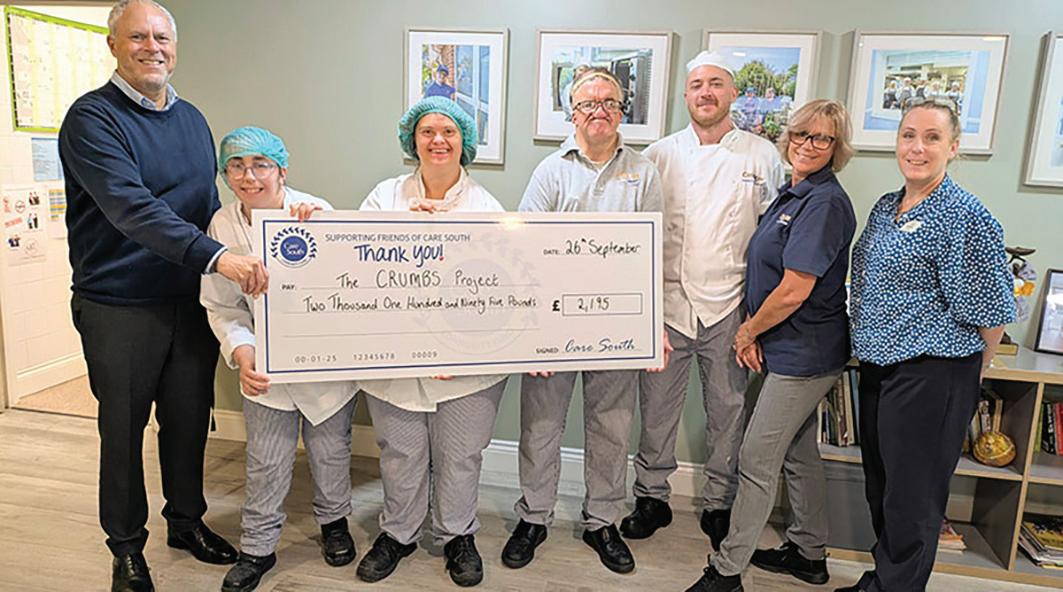
Care South’s Community Fund donation was presented to Ursula Boardman, Head of Centre at The
CRUMBS Project by Simon Bird, CEO of Care South, and Suzanne Kaye, Home Manager at Talbot View care home. The team also took a tour of the facilities and met some of the people who are currently undertaking their training at the centre.
Ursula said: “We are incredibly grateful to Care South for their generous donation which has helped us to purchase tablet computers for our trainees to use during their training programmes, and laptops for our professional trainers. It will make a real difference to the work we do empowering adults with disabilities and helping them gain skills and confidence for employment and independent living.”
Simon Bird, CEO of Care South, said: “We are delighted to support The CRUMBS Project through our Community Fund. Their work aligns perfectly with our ethos of enriching the lives of our amazing care staff teams and through them our residents, as well as supporting and working with the local community. It was inspiring to see how The Crumbs Project provide supported employment and vital social contact for people with disabilities. We are so proud to see former Crumbs trainees like Krystal succeed and make a real difference at Talbot View.”
In April 2025, the Supporting the Provider Market (STPM) team in County Durham published a new report evaluating the use of pobroll® — a waterproof bed-bathing wrap designed to improve dignity, comfort, and ease during personal care.
This evaluation was carried out across 10 care homes with high numbers of residents living with dementia. Each setting was given one or more pobroll® units and invited to share feedback through a structured survey. The findings reveal how even simple tools can make a significant difference in everyday care.
How was pobroll® used?
Most care homes used pobroll® daily or several times per week, showing it quickly became part of regular practice. Staff noted that one of the biggest challenges was not having enough units — all homes requested additional stock after the trial, highlighting a clear appetite for wider adoption.
What did care teams think?
Feedback from the care homes showed strong support for the tool:
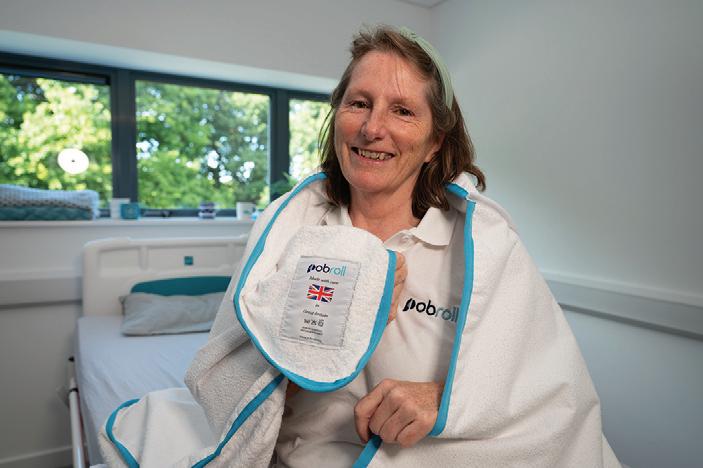
• Ease of use was rated highly, with an average score of 4.4 out of 5. Staff found pobroll® straightforward to incorporate into care routines.
• Training was rated slightly lower, at 3.8 out of 5, suggesting that while the wrap is easy to use, additional training resources could improve onboarding for new users.
Resident response was positive. Three in ten care homes reported improved mood or behaviour during bed
Written by Pat O’Brien of pobroll
bathing for dementia patients.
• Key benefits included greater warmth, coverage, and dignity for residents, especially those who might find conventional methods distressing. Some teams also found it particularly useful for end-of-life care
Would they recommend pobroll® for bed bathing for dementia patients?
Absolutely. Homes rated their likelihood to recommend pobroll® at 4.3 out of 5, with half of respondents giving it a full 5 out of 5. The overall feedback was clear: this is a valued, meaningful addition to personal care.
Would they recommend pobroll® for bed bathing for dementia patients?
The results of this trial reinforce what many professionals already believe — that small, thoughtful design changes can significantly improve care. For residents who are bedbound or living with dementia, personal care can often be a distressing experience. But with the right tools, it doesn’t have to be.
The pobroll® isn’t a complex device. It’s a simple, dual-layered cotton towelling wrap. But its thoughtful design — offering full coverage, comfort, and support — makes a real difference where it matters most.
If you’re part of a care home, hospice, or hospital and would like to explore how pobroll® could benefit your residents or service users, get in touch. We’re here to support compassionate, dignified care — one small change at a time.
See the advert on the facing page for details, or visit www.pobroll.co.uk
Flu and COVID-19 vaccines have been rolled out for all eligible people to help ‘winter-proof’ those most vulnerable and the NHS amid new variants circulating this year.
Vaccination teams across England are working to protect millions most at risk of getting seriously ill this winter by building immunity ahead of December and January, when hospitalisations for respiratory viruses typically rise.
It comes as data shows early signs of an increase in flu cases, and COVID-19 cases have been steadily increasing for weeks, with hospitalisations increasing by 60%.
The increase follows the emergence of the XFG variant in May. UKHSA has also reported a 50% increase in rhinovirus, which causes the common cold – likely driven by the return of schools after the summer break.
The NHS is taking an even stronger approach to winter this year, with 2025 on track to be the busiest on record for A&E and ambulance services.
NHS leaders have been testing the robustness of their winter plans with scenario exercises, as well as delegating more power for local teams to deliver bespoke plans for their populations – with those most vulnerable to winter viruses being identified to provide targeted care and ensure they have appropriate vaccinations.
For the first time, those eligible for winter vaccines have been able to book since 1 September to allow more people to book their flu or COVID-19 vaccine appointments in advance.
Regional teams across the country are working to make it as easy as possible for people to receive their vaccines – like hosting mobile vaccination buses to deliver vaccines closer to home, running family drop-in sessions in the community, and first the first time ever delivering flu vaccines to two- and three-year-olds in some community pharmacies.
Flu vaccines are available for everyone aged 65 and over, under 65s in clinical risk groups, care home residents and carers, close contacts of those who are immunosuppressed, frontline health and social care workers, as well as children and pregnant women.
Following advice from the Joint Committee on Vaccination and Immunisation (JCVI), COVID-19 vaccina-
tions are available to adults aged 75 and over, older adult care home residents, and people who are immunosuppressed.
From October 1 booked appointments and walk-in sessions are now available across local pharmacies, GP practices and community clinic drop-in centres across the country and you can book an appointment via the NHS App, your local GP practice, online at www.nhs.uk/bookflu or www.nhs.uk/bookcovid, or by calling 119.
Dr Amanda Doyle, National Director for Primary Care and Community Services at NHS England, said: “It’s concerning to hear flu and COVID-19 cases are already creeping up ahead of winter – but vaccinations remain our best defence against these viruses and can be lifesaving. I urge everyone eligible to come forward for their jabs as soon as they can, with easy to book appointments or drop-in sessions now available closer to home.
“Teams across the country are working hard to make it as easy as possible to get vaccinated at your local GP, pharmacy, school or other community clinic, and for the first time ever parents will be able to get flu vaccines for their two and three year olds at their high-street pharmacy to help busy families protect their children in a way that works for them.
“Get vaccinated today to protect yourself and others around you, it might keep you out of hospital this winter”.
The NHS has already sent over 12 million invites via email and further invites via the NHS App, text and letters are set to go out across the month – but those that are eligible do not have to wait to receive an invitation to be able to book.
Last autumn/winter, the NHS delivered more than 18.5 million flu vaccinations to adults and children –including over half a million to 2- and 3-year-olds.
Staff also delivered 9.8 million vaccinations to protect those eligible against COVID-19, over a quarter of a million to older adult care home residents.
Despite this, there were more than 450,000 hospital bed days taken up by patients with flu and COVID-19
Anchor’s The Manor House Roundhay in Leeds has been crowned a winner by property giant Knight Frank in their Luxury Care Home Awards 2026.
Situated close to Roundhay Park, The Manor House Roundhay, which was designed and developed by Hadrian Healthcare, is a 65-bed home, offering first class residential and dementia care.
Ursula Furtenbach-Wilson, Director of Anchor Villages & Care Services South, comments: “We are delighted to have been crowned Luxury Care Home of the year, especially as there are some incredible developments
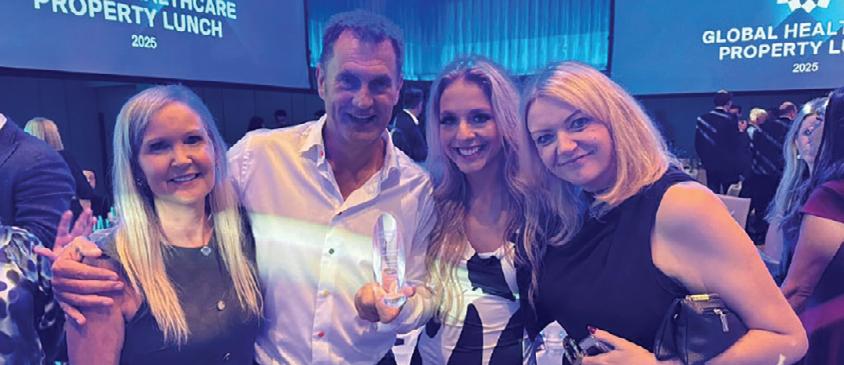
alongside us in this category, of amazing quality and diversity. The care home team should be incredibly proud of this achievement.”
District Manager Sarah Roe added: “Since the Manor House Roundhay first opened its doors in 2024, Home Manager Clare Erskine and the rest of the care team have worked incredibly hard to ensure it feels like home for residents. Their success is demonstrated not only by this achievement, but also by the fact the care home has gone on to receive a 10 out of 10 score in reviews posted on Carehome.co.uk.”
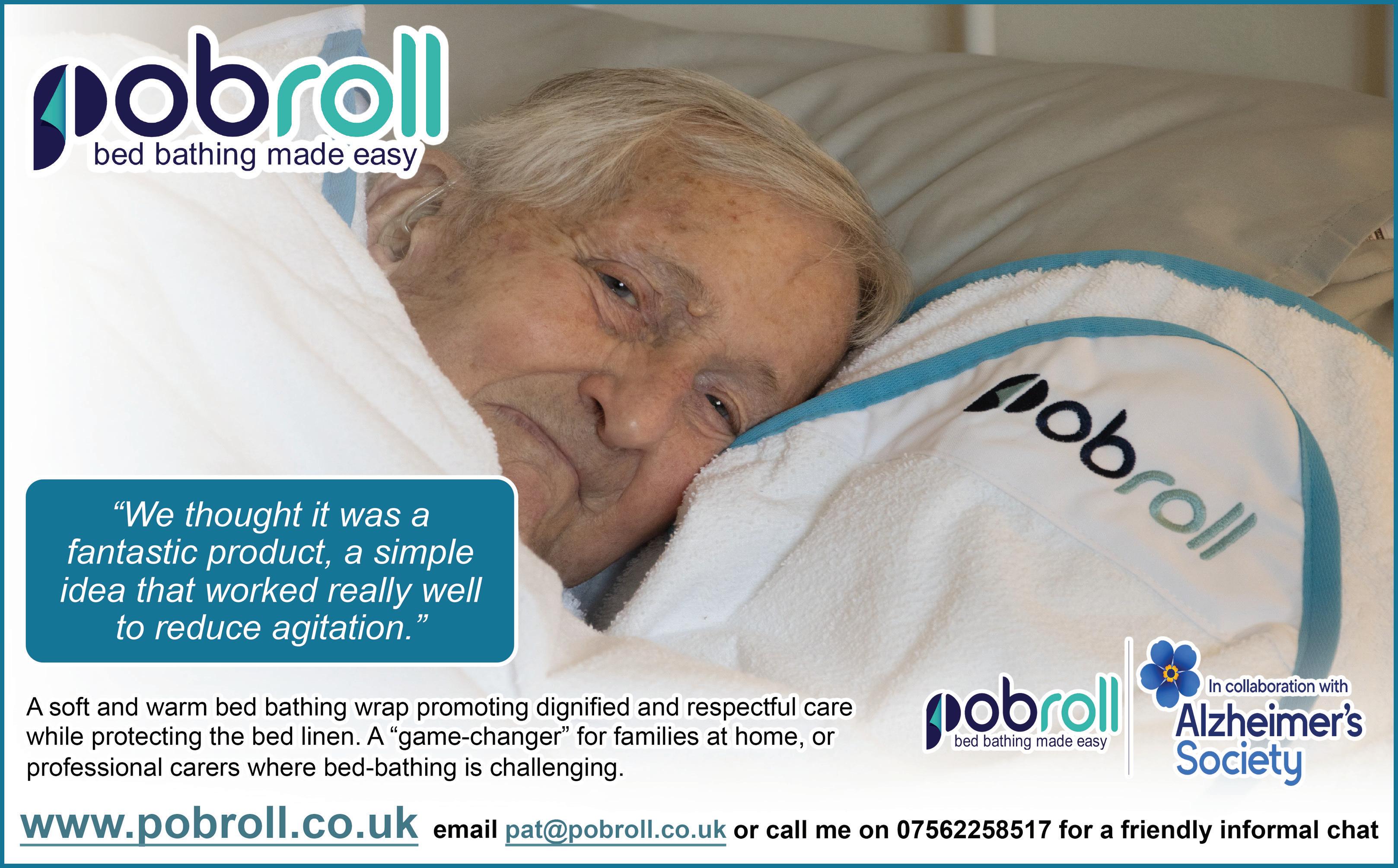
By Karim Nanji, Proprietor, Southcare Homes Group

The latest figures from NHS England show a record 487,432 people in England are now living with a dementia diagnosis. That number represents thousands of families navigating the uncertainty of a life-changing condition – and a social care system struggling to keep up.
The Alzheimer’s Society has rightly highlighted a key challenge: only 29% of care staff in England have received any dementia training, despite dementia care being, on average, 15% more expensive to deliver than standard social care.
This is not just a statistic. It reflects a reality my team and I see every day in our homes. Dementia is complex. It requires specialist skills to deliver compassionate, structured, and effective support. Without proper training and tools, staff are left to cope as best they can, families are left without reassurance, and residents risk missing out on care that could bring joy, dignity, and connection back into their lives. That is why I fully support the Alzheimer’s Society’s call for mandatory dementia training. We cannot expect to meet the rising demand for dementia care without investing in our workforce and equipping them to succeed.
In the UK, the guidance from NICE and SCIE is clear: people with mild to moderate dementia should be offered Cognitive Stimulation Therapy (CST). CST is a non-drug, evidence-based group therapy developed by University College London. It uses themed, structured activities to stimulate different parts of the brain, helping to delay cognitive decline while improving memory, mood, and communication.
The benefits are well documented. In fact, new research from the Alzheimer’s Society found 85% of people with dementia who received a non-drug therapy like CST reported benefits – a higher percentage than those who reported benefits from drug treatments.
Yet CST is rarely delivered in care homes. A recent audit revealed that only 31% of people are ever offered CST, and access varies dramatically, from 0% in some regions to 100% in others. For many families, it comes down to luck – where you live, which services are available, and whether the care home has the time, skills, and confidence to
deliver it.
At Southcare Homes, like many providers, our teams were keen to offer more structured, evidence-based dementia support. But we faced three common barriers:
1. Time pressures and staffing – Our activities coordinators are dedicated and creative, but their days are packed with responsibilities. Running structured CST sessions consistently, while juggling other duties, felt daunting.
2. Training gaps – While our staff had dementia awareness training, few had specialist CST training or felt confident leading therapeutic group sessions.
3. Lack of resources – Traditional paper-based CST resources were timeconsuming to prepare and hard to adapt for different residents’ needs. But then we learned of the dementia innovation programme supported by the NHS and the Alzheimer’s Society. Through this, we were introduced to digital tools designed specifically to support the delivery of CST.
These tools provided rapid training, but also crucially, step-by-step guidance, structured content, and interactive activities that allowed staff, once trained, to follow with confidence. For me, I think the tools are equally important as the training, as we’ve all been on training courses that we then don’t put into practice.
This technology didn’t replace our staff – it empowered them. Our activities team could quickly prepare sessions without hours of planning.
Even staff with little prior CST experience felt supported and capable.
• Sessions became more consistent, structured, and measurable.
Most importantly, it helped us bridge the gap between ambition and delivery. What once felt like a specialist therapy only available in hospitals or clinics became part of daily life in our homes.
The Results: Measurable Improvements and Emotional Impact
We recently measured the impact of delivering CST and the results exceeded our expectations:
47.8% improvement in overall cognitive outcomes
56.5% increase in recognition and memory
66.3% boost in planning and decision-making
These numbers are powerful, but the true story lies in the moments behind them. Tom, one of our residents, remembered his daughter’s name and face for the first time in months; Jean laughed as she recalled a childhood memory she had long forgotten; Our staff reported reductions in distress and anxiety during the day, with calmer moods and fewer challenging behaviours.
One of our activities coordinators told me: “Before, I sometimes felt overwhelmed trying to run group activities for residents with very different needs. Now I feel supported, confident, and proud knowing I’m delivering a therapy that’s making a real difference.”
For families, these changes are equally profound. Seeing a loved one reconnect, even briefly, offers hope and reassurance that they are receiving not just care, but meaningful, person-centred support. WHY THIS MATTERS FOR THE NATIONAL CARE SERVICE
The government’s plan for a National Care Service (NCS) is ambitious and necessary. It aims to end the postcode lottery in adult social care by introducing:
National standards for consistent quality
Workforce development through training, recognition, and safer staffing
Integration with primary care, communities, and technology
Clear governance and measured outcomes
These are the right goals. But without investment in the frontline workforce and practical tools to make change happen, there is a risk the NCS becomes a vision on paper rather than a lived reality.
At Southcare Homes, we’ve seen how technology, training, and innovation can work together to turn national policy into local results. By giving staff accessible training and structured resources, we have delivered NICE and SCIE-recommended therapy to residents who might otherwise have missed out.
This approach also has potential system-wide benefits. When residents are more engaged and supported, we see:
• Reduced reliance on sedatives and other medications
Fewer GP visits and emergency hospital admissions
Improved staff morale and retention, as teams feel empowered and recognised
These are exactly the kinds of outcomes the NCS hopes to achieve.
A CALL TO ACTION
With 70% of care home residents living with dementia, the need for action has never been greater. The Alzheimer’s Society’s figures should be a wake-up call: without specialist training and consistent delivery of therapies like CST, we will continue to see uneven care and missed opportunities for thousands of families.
As a sector, we must work together to make these outcomes universal, not exceptional. With dementia diagnoses at record levels, now is the time to move beyond ambition – and ensure that every person, no matter where they live, has access to compassionate, evidence-based care.
Cecilia Jemitus, resident at St Helen’s Hall, Merseyside, part of Sandstone Care Group, has celebrated her 105th with a western style party with family and friends at the care home.
She celebrated her big birthday surrounded by guests in cowboy hats and boots.
The team at St Helen’s bought her balloons and even a cake with her face on it and received a birthday card from the King and Queen, adding to her collection of royal birthday wishes.
Born on Liverpool’s Dock Road in 1920, Cecilia has lived an extraordinary life.
One of eight children, she served as a fire warden during World War II, bravely throwing sand over incendiary bombs to protect her community and country during the war.
She married Alexander, with whom she had two daughters, Patricia and Anne.
After Alexander’s passing when the girls were young, Cecilia devoted herself to raising her family, never remarrying. Over the years, her family has grown to include four granddaughters, four great-granddaughters, and two great-grandsons, all of whom she speaks to regularly and attended her birthday bash.
Cecila shared that she thinks the secret to old age is her love of broccoli and stressed the importance of eating healthy. She also expressed her happiness at St Helen’s Hall and has called it her home for many years and was made to feel incredibly special and loved on her birthday and wouldn’t have wished to celebrate it anywhere else.
Jackie Smith, wellbeing Co Ordinator at St Helen’s Hall said: “We’re so happy to be celebrating Cecilia’s birthday here at the home. It was so lovely to celebrate such a remarkable woman, and we wish her very happy birthday and many more to come!”
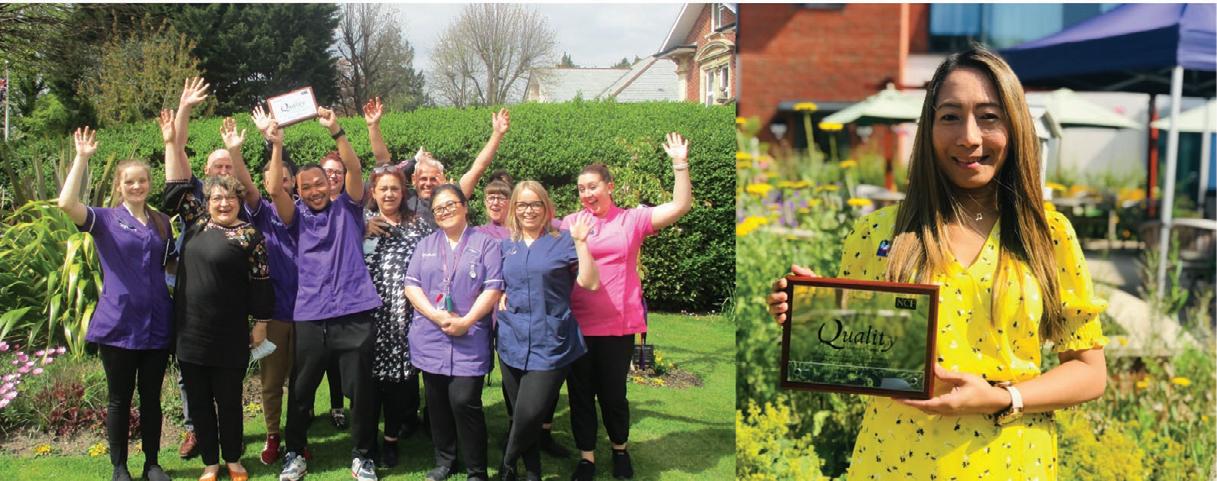
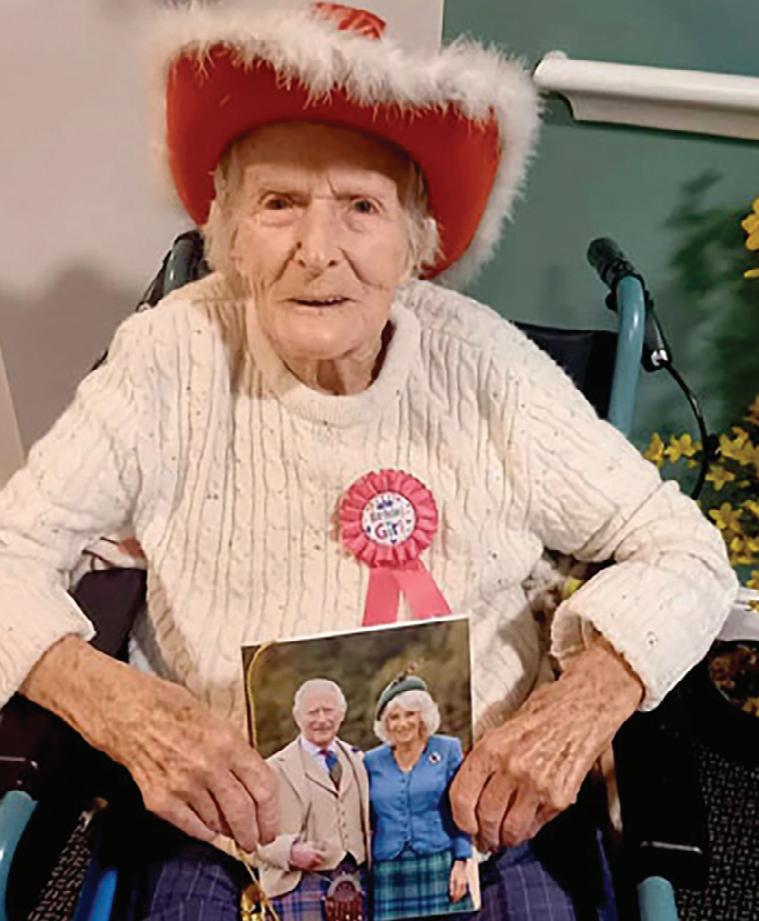
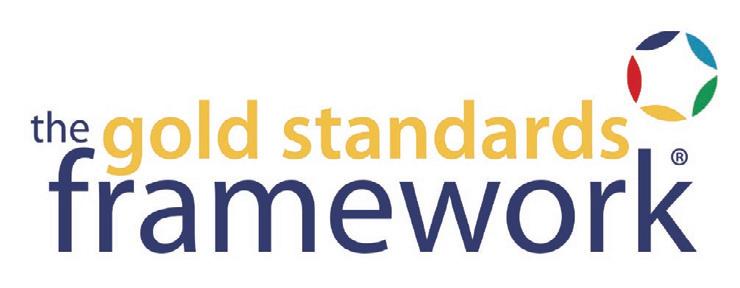
The Casey Commission, set up by the government to explore social care reform in England, should consider the benefits of moving to a national system of assessing people’s social care needs, such as in Australia, Germany and Japan. This is a key recommendation of a new report from The King’s Fund called Fixing social care: the six key problems and how to tackle them.
In the current system, each local authority in England carries out its own assessment of people’s needs and finances, using national criteria, and there is wide variation in the number of people accessing care in different parts of the country.
The report says the Casey Commission should specifically consider the benefits of moving towards national assessment because it might provide greater consistency and would limit the risk of individual authorities ‘rationing’ care because of budget constraints. There may also be the potential for efficiency gains.

The report also says that more people should be entitled to publicly funded social care. Making the current means-tested system more generous, along with introducing a cap on care costs, is the ‘very minimum’ reform needed but alternatives such as free personal care, as in Scotland, or a ‘social insurance’ system such as Germany, where everyone in need receives support though may have to contribute towards the cost, are potential alternatives.
The recommendation is part of an analysis of key problems in social care: access, quality, workforce pay,
market fragility, disjointed care and the ‘postcode lottery’ in access and performance. It includes an assessment of options for improvement in all these areas.
OTHER KEY RECOMMENDATIONS FROM THE KING’S FUND INCLUDE:
• The cost of providing care should be more of a partnership between the individual and the state than it currently is, with the state bearing most of the cost but the individual contributing if they can afford it.
•The government’s proposed £500 million as part of the Fair Pay Agreement for the care workforce is a welcome first step on a long-term solution. However, it will not solve long-standing issues of recruitment by itself.
• It is not sustainable for social care providers to regularly face cost rises that are far in advance of the fee increases they receive from local authorities.
• A review of NHS continuing healthcare, which plays an overlooked role in social care, is overdue.
Simon Bottery, Senior Fellow, The King’s Fund and author of Fixing social care: the six key problems and how to tackle them, said: ‘It would be a major change to shift away from the principle that people’s social care needs and finances should be assessed by local authorities. However, it works well in other countries and now is the time to explore whether it would be an improvement here as well.
‘The Casey Commission should consider this and other ideas in this report. However, there is also much that the government could do in the meantime ahead of the commission reporting, including ensuring that local authorities have the finances they need to run the current system fairly and effectively.’
At Elm Bank Care Home, they firmly believe that age is just a number when it comes to keeping fit. The residents are fully embracing the importance of keeping an active lifestyle with a firm favourite of the life enrichment programme being the fantastic fortnightly armchair exercise sessions, led by the wonderful Toms’ G Fitness.
The benefits of staying active both mentally and physically, are vital for health and wellbeing at any age, and are especially crucial in later life. Elm Bank Care Home are so thrilled by the very popular seated exercise sessions.
These sessions are expertly adapted to suit all abilities, making sure everyone can take part and enjoy the numerous health benefits without any
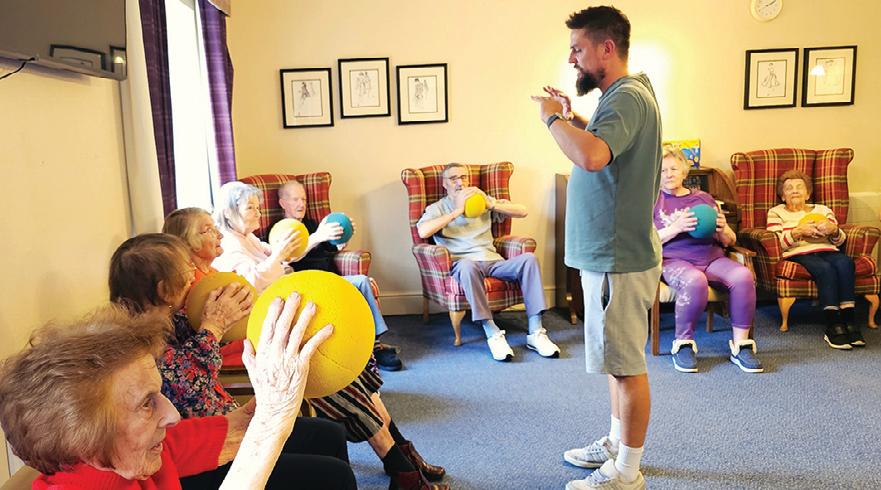
undue stress on joints and muscles.
Tina, Activities Co-ordinator said, “The sessions are very popular with our residents and in the summer if the weather is not to hot we love to hold the sessions outside.
It really helps our residents in boosting their strength and mobility, improving their balance and confidence as well enhancing mental well-being. It is lovely to see our residents come together as the sessions also promote social connection for all”.
Our varied life enrichment programme keeps residents active, and provides a daily choice of engaging physical, mental and spiritual activities tailored to residents’ interests and abilities.
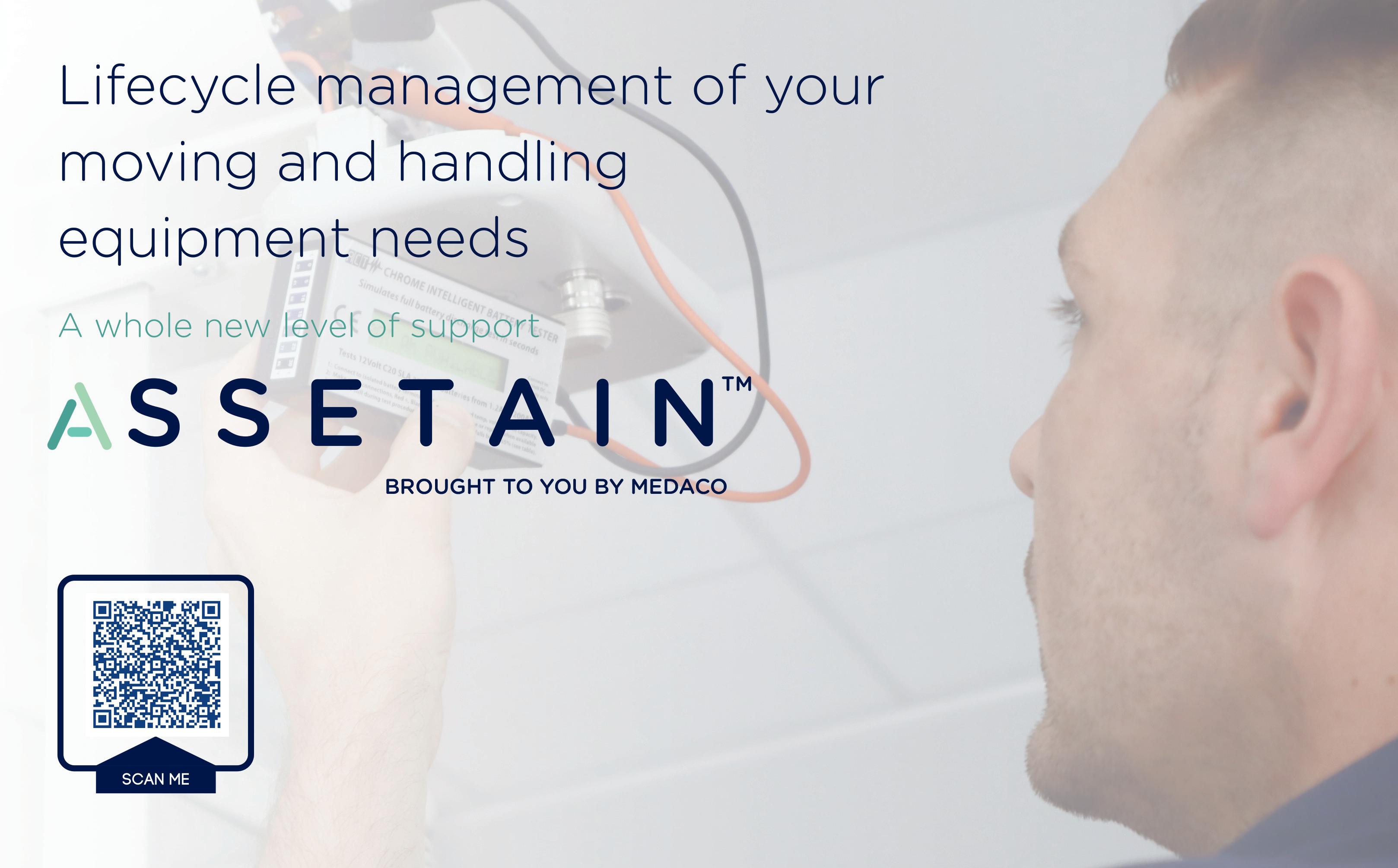
Article authored by Jonathan Cooper, Director and Founder of The Director’s Helpline and The Director’s Choice

The UK’s care sector is under enormous pressure. Rising costs, regulatory demands, and the uncertainty of the upcoming Autumn Budget are creating the toughest environment many providers have ever faced.
The latest Care Provider Alliance survey illustrates this stark picture, with 22% of providers planning to close entirely, 77% expecting to draw on reserves, and 64% saying they will have to make staff redundant. Against this challenging backdrop, it’s no surprise that insolvencies and restructuring activity are expected to rise.
But while the challenges are daunting, there are steps care home directors can take to protect their business, their staff, and the people they care for. The key lies in spotting the warning signs early, understanding the risks that affect the sector, and seeking support before issues escalate.
Most care home directors didn’t enter the sector to run a company, they came to run a business centred on their expertise – care. Many are former carers or social workers whose businesses grew from a passion for supporting others, not managing balance sheets. That passion is the sector’s greatest strength.
But a company is a formal entity, very different from the of craft itself. Care home owners aren’t expected to be experts in finance, corporate structures, or regulation, their focus is rightly on people. That’s why surrounding themselves with trusted advisors, accountants, and financial specialists is so important – helping to spot risks early, put safeguards in place, and de-risk the director.
Cashflow remains one of the sector’s biggest pressure points. Local authority contracts can take more than 60 days to pay, while providers still need to cover wages for dozens of staff. To bridge the gap, many fall back on reserves, but HMRC debts can escalate quickly, and with HMRC’s increasingly zero-tolerance approach, enforcement often feels sudden and severe.
The warning signs are usually visible – mounting arrears, repeated reliance on reserves, or struggles meeting payroll. But addressing them early can make all the difference.
One end-of-life care home we encountered was pushed to the brink when unpaid invoices left it unable to cover tax bills. HMRC moved to shut it down, but with impartial guidance, a Company Voluntary
Arrangement was secured. While the outcome was positive, the important lesson is that it should never have reached that point.
It’s vital for directors to review their company structure and CQC licences regularly. Ensuring the business is correctly set up and fully accredited is more than compliance, it provides a safety net if financial or operational challenges arise.
HMRC arrears are one of the most common, yet least spoken about, challenges in the care sector. Many directors feel isolated and intimidated by HMRC communications. Cashflow pressures can quickly push PAYE behind schedule, and ignoring the issue only makes matters worse.
There is nearly always a more manageable outcome if handled effectively. Time-to-pay arrangements can provide breathing space, and sometimes the solution is as simple as funding outstanding invoices and engaging proactively with HMRC.
The crucial point is that care providers don’t have to face this alone – leaning on trusted advisors who understand both HMRC and the sector can make what feels impossible much more manageable. Being aware of the options available can make the difference between a situation becoming a problem.
Good financial management in care is about more than balance sheets, it’s about protecting jobs and sustaining services, so being realistic about growth is key.
This means not taking on contracts that can’t be financed, and avoiding using company reserves as a long-term solution to fund daily operations. Reserves are better used for strategic priorities and growth, whereas for bridging cashflow gaps, tools like invoice finance can help smooth over delays in local authority payments.
The key is to understand how the company is financed and plan accordingly. Acting cautiously, seeking support, and exploring available tools can help directors navigate turbulent times.
The truth is that running a care business can be a lonely place. Directors carry the responsibility of paying dozens of staff and keeping services running, and debt often feels daunting. HMRC’s aggressive approach can stop owners from speaking out, but silence is the real risk.
It’s crucial for directors to recognise that debt is not a personal failing, it’s a financial challenge that can be managed with the right support. Acting early, whether with HMRC or other creditors, opens up more options to protect staff, sustain services, and safeguard the people who rely on them.
The pressures on the sector are real, but they are not insurmountable. With early action, openness, and the right advice, care providers can build a stronger, more sustainable foundation for the future.
Over 100 staff from Milford Care gathered on Friday 26th September for a spectacular Alice in Wonderland-themed awards evening at Ashbourne Lodge – celebrating the dedication and achievements of colleagues across the group as part of its 40th anniversary year.
The annual event recognises the remarkable contributions made by individuals and teams working across Milford Care’s six homes in Derbyshire and Nottinghamshire. Staff from all departments – including nurses, carers, managers, wellbeing facilitators, housekeeping, maintenance, catering and central support – came together for an evening of celebration, camaraderie and appreciation.
This year’s ceremony took inspiration from Alice in Wonderland, with staff transported to a whimsical world of teapots, top hats and playing cards. The theme created a vibrant backdrop for the awards, which highlighted the passion, creativity and commitment of those who go above and beyond to make a difference in residents’ lives.
Pierre Falleth, Director of Milford Care, said: “This year is particularly special as Milford Care marks its 40th anniversary – four decades of delivering high-quality, compassionate care across our communities. The awards evening is our way of saying thank you to our amazing staff, who every day embody the values of kindness, respect and dedication that Milford Care was built upon. We are incredibly proud of every single one of them.”
MILFORD CARE’S 2025 AWARD WINNERS
The following individuals were honoured for their exceptional con-

tributions to Milford Care::
•Molly Gregory
• Tina Freeman
Elly-May Chambers
• Chris Woodrow
• El Dudley
• James Horton
• Blessing Choodzai
• Tyra Wren
• Haritha Ajay
• Vicky Russell
• Charlotte Bream
• Emily Pearson
• Precious Ugbesia
• Josephine Morones
• Karl Coleman
• Georgia Jowitt
• Karen Huggins
• Donna Stanton
• Kachi Ahuaza
• Jack Wilmott
SPECIAL RECOGNITION AWARDS
The Special Recognition Awards acknowledged the outstanding work of the following staff members:
• Mary Brogdale (20 years of service)
• Zoe Coleman (20 years of service)
• Gina Straw
• Joy Nash
• Alison Osbourne
• Karren Cheriton
• Shane Falconbridge
• The Milford Accounts Team
SPIRIT OF MILFORD AWARD
The evening culminated in the presentation of the prestigious Spirit of Milford Award, recognising an individual who truly reflects the core values of Milford Care. This year’s winner was:
• Joe Rollitt
Croner-i was founded in 2017 as a proud part of the Peninsula Group. Since its beginning, it has supported thousands of care providers across the UK to stay compliant with Care Quality Commission (CQC) requirements and wider regulatory obligations, setting a standard in the industry.
Through their Navigate-Care platform, Croner-i specialises in providing practical, accessible and easy-to-understand guidance that enables care services to exceed their compliance responsibilities. From residential care homes, and domiciliary care agencies to supported living providers and other care services, thousands of care providers rely on Croner-i’s resources to maintain quality, safety, and best practice across their operation.

“We understand that compliance can be a challenging and time-consuming process for care providers,” said Andrew Murphy, Head of Content at Croner-i. “Our mission is to take the complexity out of CQC and regulatory requirements, giving providers the clarity and confidence they need to deliver outstanding care.”
With Croner-i’s Navigate-Care platform, care services have access to a comprehensive library of policies,
toolkits, and expert guidance written by industry and care specialists. This includes practical step-by-step advice on preparing for CQC inspections, meeting the new Single Assessment Framework (SAF) and implementing robust quality assurance processes.
Being part of Peninsula Group allows Croner-i to benefit from decades of experience in employment law, HR, and business compliance. This ensures the advice and support given is both legally and operationally practical.
With the care sector under increasing scrutiny and public pressures, Croner-i remains committed to empowering providers with the tools they need most, to operate efficiently, protect service users, achieve inspection success and grow their care service.
Look out for more details from Croner-i in the coming weeks.
For more information about Croner-i Navigate-Care, get in touch with the partnership team at partnerships@croneri.co.uk.
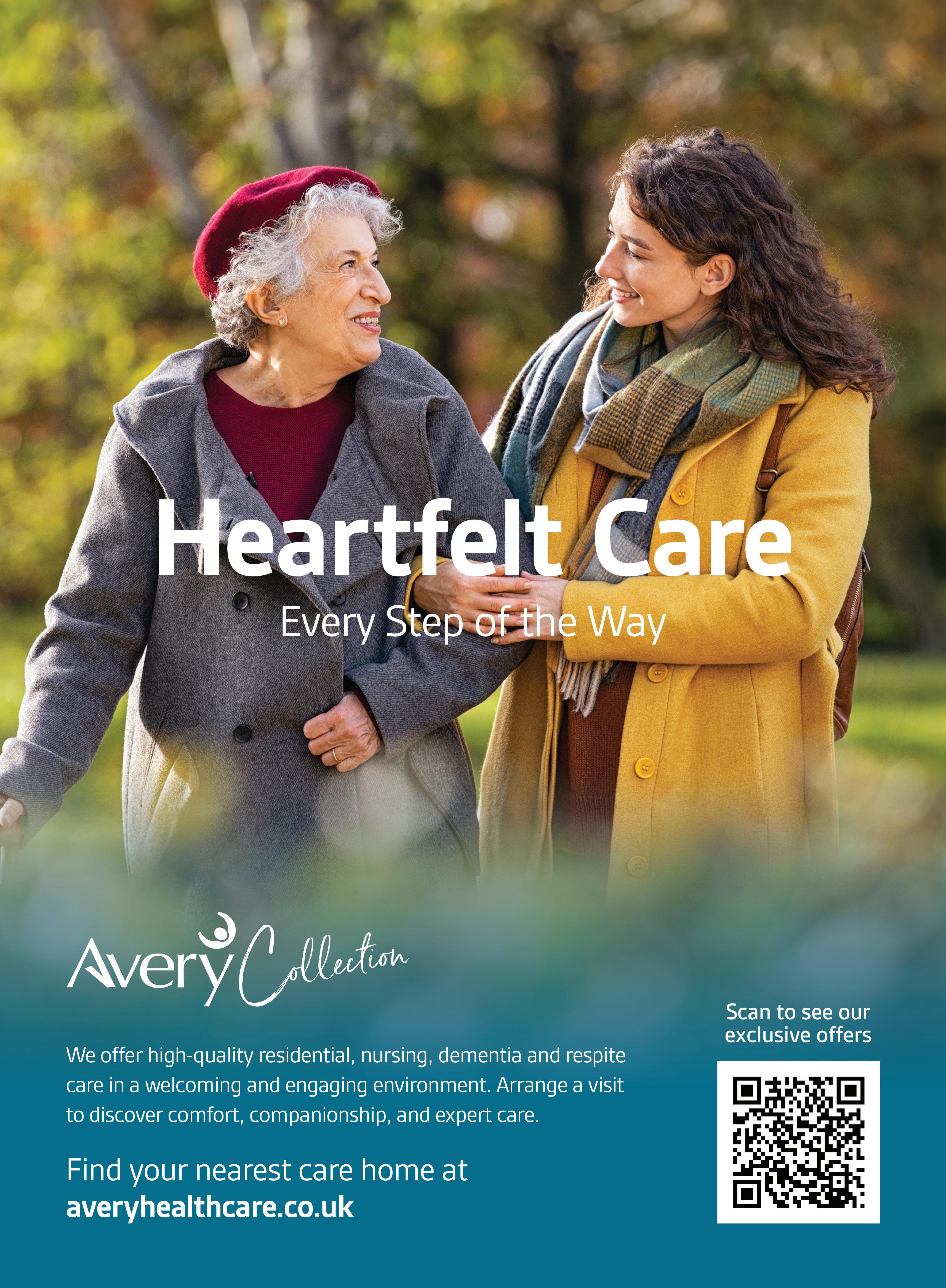


By Sunita Poddar, Founder and Chief Executive Officer of Oakminster Healthcare

New research revealing that 28% of the UK population will be pensioners by 2075 should stop us in our tracks. It’s more than a statistic; it’s a glimpse into our collective future. As a nation, we are living longer, but we’re not planning smarter.
While most of us diligently invest in our pensions, far fewer are thinking about something just as critical: how we will finance our care if we need it in later life.
The uncomfortable truth is that as we age, many of us will require some form of support, whether in our own homes or within residential care. And it can be costly.
Too many of us assume the government will “step in” when needed, only to discover that eligibility thresholds are strict and personal contributions are often unavoidable. For families caught off guard, the emotional and financial toll can be devastating.
Over the years, I have spoken to countless people who believed they were “set” for retirement, only to realise that their savings that were carefully built to fund holidays, hobbies and time with grandchildren, are quickly eaten away by unexpected care bills.
I’ve also seen the heartbreaking pressure placed on families
suddenly forced to choose the level of care for their loved one, based on finances. This is the reality we must confront now, before it’s too late.
We need a mindset shift.
Retirement planning shouldn’t stop at pensions, it must also account for the possibility, and in many cases the likelihood, of care needs.
Investing early, whether through tailored savings plans, long-term care insurance, or financial strategies designed to protect assets, can make all the difference when the time comes.
And it’s not just about money.
Planning for later life also means having open, honest conversations with our families about preferences for care. It means thinking ahead about wills, powers of attorney, and how best to safeguard dignity and choice as we age.
Avoiding these discussions doesn’t make the reality go away, it only makes it harder when the time comes. The government also has a role to play. With nearly a third of the population projected to be over 65 within 50 years, elderly care funding and policy reform must move higher up the national agenda and realistic social care funding is critical.
We all have a stake in preparing for the future – for ourselves, our parents, and our children. The earlier we start, the more options we preserve and the greater peace of mind we gain.
Britain’s ageing population is a reality we can’t ignore.
The good news?
By planning today, we can protect not only our finances but also our dignity tomorrow. The time to act is now.

Mulberry Court Care Home, part of the Runwood Homes Group marked a very special milestone on 11th August 2025, celebrating resident Ethel’s 100th birthday with a joyful ABBA-themed party.
The home’s conservatory was beautifully decorated, and residents, staff, and Ethel’s family enjoyed a lively performance by a talented singer performing classic ABBA hits. The entertainer’s multiple costume changes and engaging performance had everyone singing and dancing along.
Katie Jones, Lifestyle Coordinator at Mulberry Court, explained, “We wanted
to celebrate this incredible milestone and make Ethel feel truly special. The performance brought so much joy to residents, staff, and family alike.”
Ethel’s family added, “Thank you very much, the entertainment was lovely, and Ethel seemed to enjoy it.”
The celebration highlights Mulberry Courts’ commitment to marking residents’ key life moments, ensuring they feel valued, celebrated, and part of a vibrant community. The atmosphere was described as full of singing, dancing, and joyful memories that residents and their families will cherish for years to come.
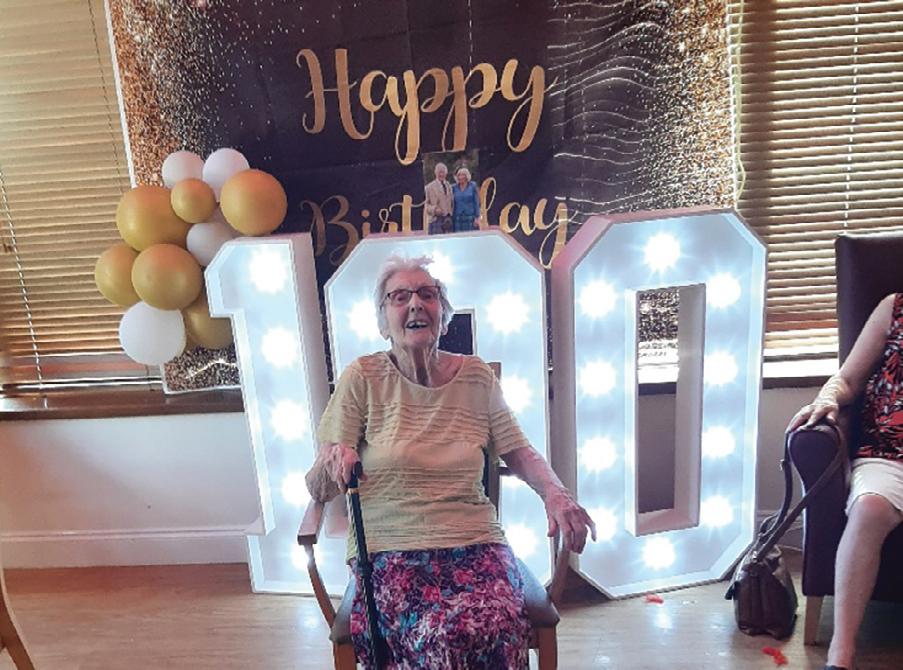
A Nottinghamshire based care group is celebrating a major milestone, 20 years since acquiring its first home, having provided outstanding care and a place to call home for thousands of people in the community ever since.
Church Farm Care was founded by Lucy and Patrick Atkinson in 2005, growing from a single site into a thriving business with five homes across the region – Church Farm at Cotgrave, Field House, Skylarks, Rusticus and most recently, Wren Hall. And, based on their success, the team now has plans underway to develop a sixth site which will be the group’s first new-build project.
Church Farm at Cotgrave was where it all began, with many of the original team still part of the home today. Already working at Church Farm 20 years ago – and still actively involved across the group –was Maria Atkinson, Patrick’s sister and current deputy manager at Skylarks, and her husband John Spollin who was the home’s first manager.
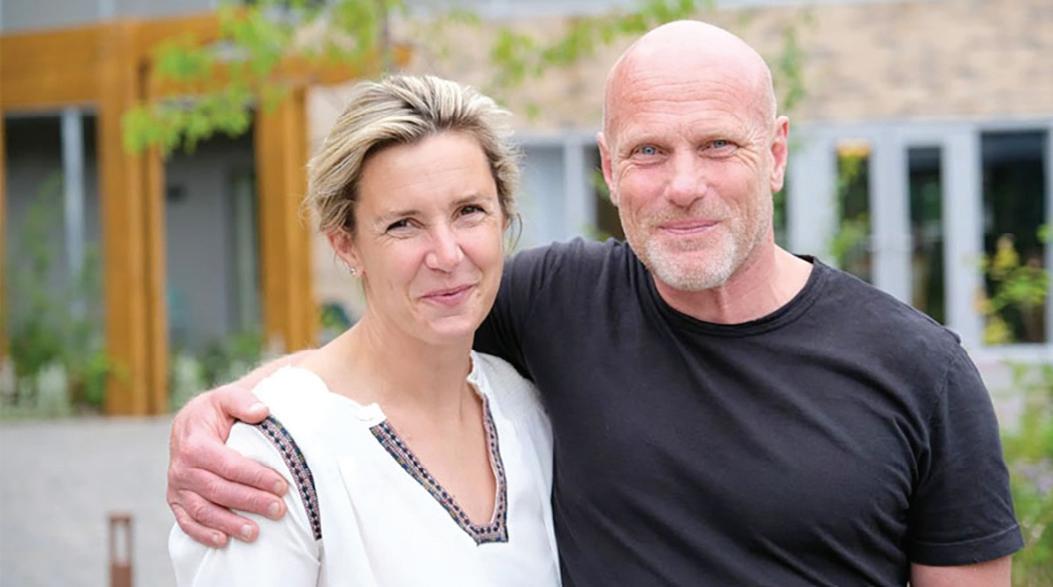
Other longstanding team members include: Anne Benke, Head Chef at Cotgrave, who’s celebrating 28 years, Jane Hernandez, now House Leader at Rusticus who has been with Church Farm Care for 24 years, Cassie Qevani, who started at Cotgrave aged 15 and is now House Leader at the same home, Janet Maiella, who has been working as a nurse at Cotgrave for nearly 40 years, and Wynne Williams who has been working for Church Farm as a nurse for over 36 years. And at Field House, Debbie Croucher has worked at the home since Lucy’s parents owned it, a connection going back over 40 years.
Over the last two decades, Church Farm Care has developed a reputation for delivering high-quality, person-centred care, particularly for people living with dementia. From the outset, the group adopted the Butterfly Approach, moving away from traditional care models to create more engaging, responsive and home-like environments.
Strong links with the wider community has – and remains – an important part of the ethos of Church Farm Care, with all homes regularly welcoming schools, local groups and performers through their doors. The trust established amongst healthcare professionals is also clear, with GPs and social workers regularly choosing to place their own relatives in Church Farm homes.
Since conception, the group’s efforts have been widely recognised, including winning the sought after titles of Care Home of the Year at the National Care Awards in 2021.
“This anniversary is a chance to celebrate our team, our growth and the families who’ve trusted us with their care. We’re proud of how far we’ve come – from buying our first home to now employing 480 members of staff and 68 nurses, each of whom contribute so much to our family members’ lives and make a true difference every day. Our focus for the future is to continue providing the best care and building on our reputation at Church Farm Care.”
Patrick Atkinson, co-founder and director, added: “Our success has come from consistency, strong values and a great team. The loyalty of our staff speaks volumes and we’re proud to have grown while staying true to our principles.”

The Chairman of Saint Cecilia’s Care Group has welcomed the Government’s announcement of a Fair Pay Agreement (FPA) for the social care sector, unveiled at this week’s Labour Party Conference. But warns that delaying its implementation until 2028 risks undermining the very benefits the policy promises.
Mike Padgham who is Executive Chairman at Saint Cecilia’s Care Group and also Chairman of the Independent Care Group (ICG) joined fellow providers and colleagues in Liverpool on Monday for the Care Providers Unite March – a peaceful demonstration held outside the Labour Party Conference.
Mr Padgham said: “Introducing a Fair Pay Agreement is an historic step forward, and I take my hat off to the Government for recognising the skill, value and vital role of care staff. But the workforce crisis is happening now – not in three years’ time. Staff shortages are leaving families without care today, and unless urgent action is taken, the damage could be irreparable.”
PEACEFUL DEMONSTRATION HIGHLIGHTED SEVERAL PRESSING CONCERNS:
• Recruitment crisis today: In North Yorkshire alone, vacancy rates in some services exceed 10%, with homecare particularly hard hit. Rural care homes face additional recruitment challenges, leading to closures that impact entire communities.
• Funding gap: The £500m earmarked for the FPA falls short of delivering parity with NHS pay. Without proper central government funding, providers risk financial collapse.
• Commissioning pressures: Years of underfunding mean councils are forced to commission care at the lowest possible rates. Unless local authorities are resourced to fund services properly, providers will struggle to meet fair pay obligations.
• Overseas recruitment cuts: Restrictions on international recruitment, combined with delayed fair pay, risk deepening the workforce shortage.
Mr Padgham stressed that while the FPA is welcome, it must form part of a wider programme of reform, including the creation of a National Care Service to provide long-term sustainable funding and integration with the NHS.
“You cannot fix the NHS without fixing social care,” Mr Padgham added. “Social care is already broken – but done properly, reform will not only save money for the economy and reduce pressure on the NHS, it will give people the quality of life they deserve. This must be actioned today, not in 2028. We have waited decades through successive governments for meaningful reform,” Mr Padgham said. “Our staff, our families, and our communities cannot wait another three years. We need urgent action – and we need it now.”
Stowe Mount Care Home took to the streets of Lichfield to hand out Willy Wonka–themed chocolate bars in celebration of Roald Dahl Day.
The chocolate bars were created in honour of the much-loved author, whose stories have inspired generations of children and adults. One lucky bar contained a Golden Ticket – with the finder set to win a £30 National Book Token.
Stowe Mount resident Rae Fry, who volunteered to help hand out the chocolate bars, said,
“It was lovely to meet the Lichfield community, and I was enthusiastic to talk about the great author Rohld Dahl and explain the exciting chance to win the Golden Ticket!” Lifestyle Manager, Jayne Yeats, accompanied Rae and added, “Roald Dahl Day gave us the perfect opportunity to do something a little bit different whilst also getting to know our community even better.
“We hope the Golden Ticket brings a smile to someone’s face, inspires them to pick up a new book and enjoy the world of stories that Roald Dahl loved so much.”
You can find out more about life at Stowe Mount at the home’s weekly Coffee Morning, every Wednesday from 10:00 at the home on Scotch Orchard, Lichfield, WS13 6DE. All are welcome to join the residents and staff for homemade
refreshments and friendly conversation.
For more information call 01543 622 642, email hello@stowemount.co.uk, or visit the Stowe Mount website.
Stowe Mount is designed to make a positive impact on everyone who lives in and visits the home. With 66 ensuite bedrooms, extensive communal spaces, and landscaped gardens, Stowe Mount offers an all-inclusive, ‘Crystal Clear’ care package – no hidden extras and no surprise bills.
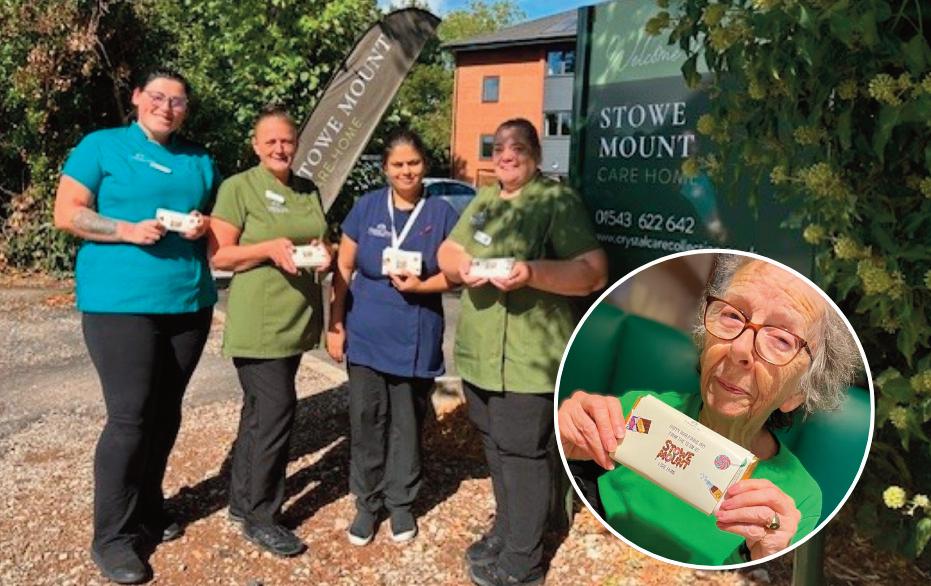



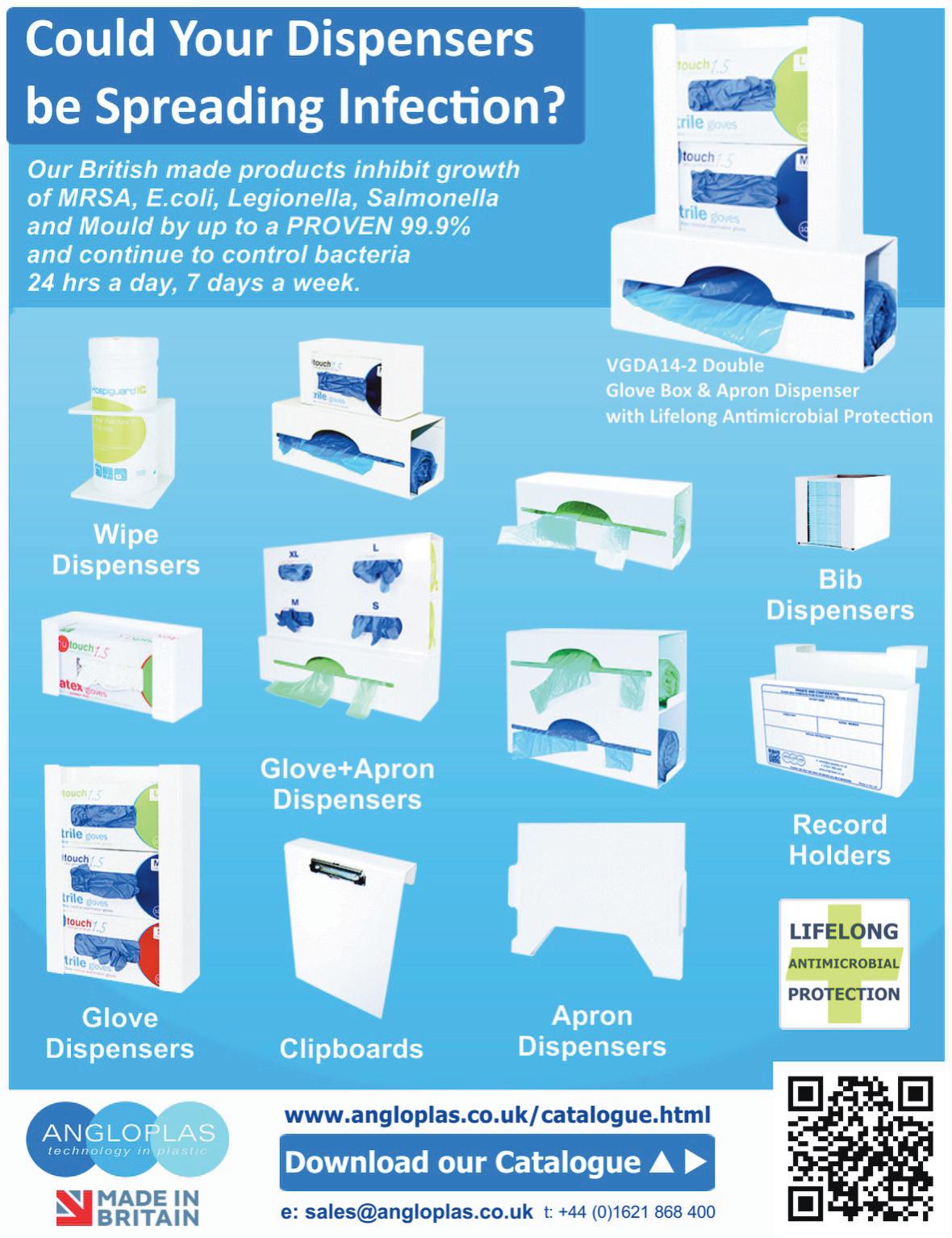
PLMR, Social Care Institute for Excellence, and the Homecare Association brought together leading voices from across the sector at this year’s Labour Party Conference.
This year’s Labour Party Conference saw a host of MPs and social care leaders come together for a heartening discussion about the role of social care in delivering the 10-year health plan.
The fringe event was jointly hosted by PLMR, the Social Care Institute for Excellence (SCIE), and the Homecare Association in PLMR’s Policy Hub inside the conference secure zone.
THE PANEL INCLUDED:
• Sojan Joseph, MP for Ashford, and co-chair of the Adult Social Care APPG
• Ben Coleman, MP for Chelsea and Fulham, and former Hammersmith & Fulham Council Cabinet Member for Health and Adult Social Carw
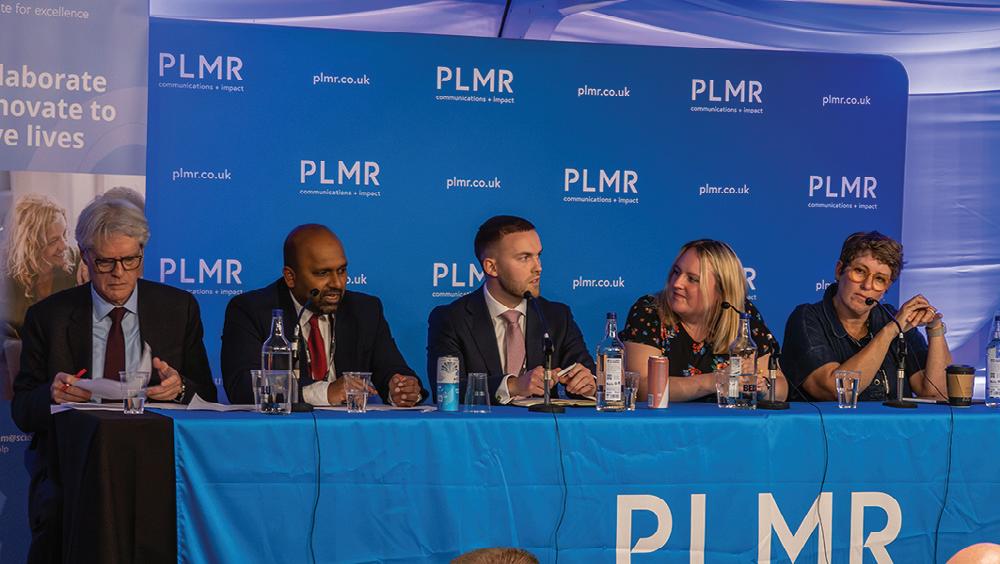
• Jess McGregor, President of the Association of Directors of Adult Social Services (ADASS), and current Executive Director of Adults and Health at London Borough of Camden
• George Appleton, Head of External Affairs at SCIE
•Daisy Cooney, Head of Policy, Practice and Innovation at the Homecare Association.
Together, the sector experts explored themes in the Government's health plan, including shifting healthcare from hospital to community; integration at local and national level; and how to unlock ‘early wins’ for the social care sector.
Almost 100 conference attendees joined to hear the panellists’ suggestions and insights, which focused on solutions and ideas not just barriers.
Talking about the opportunities available for social care, George Appleton from SCIE said “social care can help shift the measure of success of the ten-year health plan towards achieving outcomes for people and away from activity levels. Social care, done well, transforms lives, enabling people to live with greater independence, dignity, and purpose, while also reducing pressure on the NHS.”
Ben Coleman MP for Chelsea and Fulham described the panel’s consensus that “the new neighbourhood approach could present a real opportunity if it was produced in the right way, and part of that means Local Authorities recognising the power that they have and demanding a seat at the table to make sure that they’re fully involved in shaping the new systems alongside the likes of NHS Trusts and primary care.”
Jess McGregor, President of the Association of Directors of ADASS, also commented on the neighbourhood approach, saying “Both the NHS and social care face financial challenges – but we’ve got to find different ways of working together, particularly by putting residents and communities at the centre of the work as
we design neighbourhoods, in order to build something different that works for local people.”
Sojan Joseph MP for Ashford and co-chair of the Adult Social Care APPG emphasised that the new model described in the ten-year health plan is “a great opportunity to work together with GPs, hospitals, schools, pharmacies, community services… that is what we need to see, because social care has a role to play in all sectors not just when somebody is ready to leave hospital. That can be brought about by the Government’s National Care Service, which will take time but is something we can work towards with the publication of the report by Baroness Casey later this year which I hope will identify more solutions.”
Chair of the panel, Daisy Cooney from Homecare Association, summed up the discussion, saying: “The 10-Year Health Plan barely mentions social care, yet our services sit at the heart of community support. Providers and councils deal daily with more complex needs, but government excludes us from shaping plans, keeps funding locked in hospitals, and assumes staff exist while recruitment and retention worsen. Integration still reads as rhetoric, not reality. The Minister for Care rightly said at the Conference that the government’s three shifts cannot happen without social care, and we stand ready to play our full role when government listens, recognises and values us as equal partners.”
Reflecting on the event, Lucy Taylor Diaz, Associate Director and Deputy Head of Health and Social Care at PLMR said: “It was fantastic to bring a diverse panel of expert voices in social care into PLMR’s Policy Hub at Labour Party Conference. Too often, care is left on the margins of health debates, but this panel showed just how central the sector is to the success of the 10-year health plan. Creating space for MPs and sector leaders to discuss solutions side by side was invaluable, and part of PLMR’s commitment to help ensure that social care is heard at the heart of political decision-making.”
As part of PLMR’s wider support for the sector, the communications agency also hosted a number of other healthcare events in their Policy Hub, including the Royal Society for Blind Children for a drop-in breakfast and VR experience exploring how policy can improve access, inclusion and long-term outcomes.
PLMR is a full-service communications agency that has specialised in supporting organisations in the social care sector for over 19 years. The agency provides PR, reputation management, local and national government engagement, corporate communications, the full suite of digital marketing and online promotion (websites, videos, social media) services.
Residents at Penwortham Grange and Lodge Care Home in Preston were transported back in time for a spectacular 1920s-themed celebration, complete with live music, vintage games, and plenty of dancing.
The home was buzzing with excitement as residents arrived to find a beautifully decorated lounge, complete with a glamorous backdrop, feather boas, headbands, and top hats. Glasses of fizz and Schloer were raised as the festivities began.
A highlight of the day was a live vintage performance from singer and entertainer Poppy Holiday, whose love for the 1920s shone through every note. Her set, filled with nostalgic classics, had residents clapping, toetapping and even dancing along.
The laughter continued with a lively “Name That Tune” competition, where residents Joan and Marjorie proved to be the ultimate musical detectives. Joan was thrilled to win a handmade teddy bear, lovingly created by Poppy herself – a sweet keepsake from a special day.

In a spirited round of the “guitar” challenge, resident Bill faced off against fellow resident Mary in a lighthearted musical duel. Bill claimed victory and was all smiles as he accepted his prize: his all-time favourite treat: Turkish Delights.
The dancefloor belonged to Vera, who once again showed off her signature moves and got everyone up
on their feet. “She’s our queen of the dancefloor,” one member of the care team laughed. “The party really starts when Vera starts dancing!”
The afternoon also featured a touching solo performance from Dorothy, who held the microphone proudly as she sang her favourite tune, “Daisy Doo,” with a big round of applause from fellow residents.
Jayne, Activities Coordinator at Penwortham Grange and Lodge and one of the event organisers, said: “Days like this are what it’s all about – seeing our residents smiling, dancing, and enjoying themselves together. Everyone made such an effort, and Poppy Holiday’s performance really brought the magic. These moments stay with us all.”
The team at Penwortham Grange and Lodge Care Home continues to create vibrant, joyful experiences for residents, bringing connection, creativity, and plenty of fun into everyday life.
The home located on Martin Field Road is part of the Orchard Care Homes group, which operates 23 care homes in the Midlands and North of England.
Organising events of this nature is typical of both the home and the group’s dedication to enriching its residents' lives, with a commitment to crafting personalised and meaningful experiences that cater to each resident’s unique needs, wants and preferences.
In today’s highly regulated health and social care environment, providers face the dual challenge of ensuring compliance while striving to deliver safe, high-quality, and commercially sustainable services. Care Inspections UK Limited (CiUK) has emerged as a trusted partner in this landscape, providing a professional and independent inspection service that goes beyond the standard requirements of the Care Quality Commission (CQC), The Care Inspectorate Wales (CIW) and the Care Inspectorate (Scotland), collectively “The Inspectorates”
What sets CiUK apart is its status as a registered inspection body, operating with the highest levels of professionalism and governance. This official recognition imbues care providers with confidence that inspections are carried out with rigour, objectivity, and an unwavering focus on evidence. Every report is underpinned by validated, research-based methodology, ensuring the outcomes are credible, balanced, and practical.
BEYOND CQC/ CIW/ CI STANDARDS
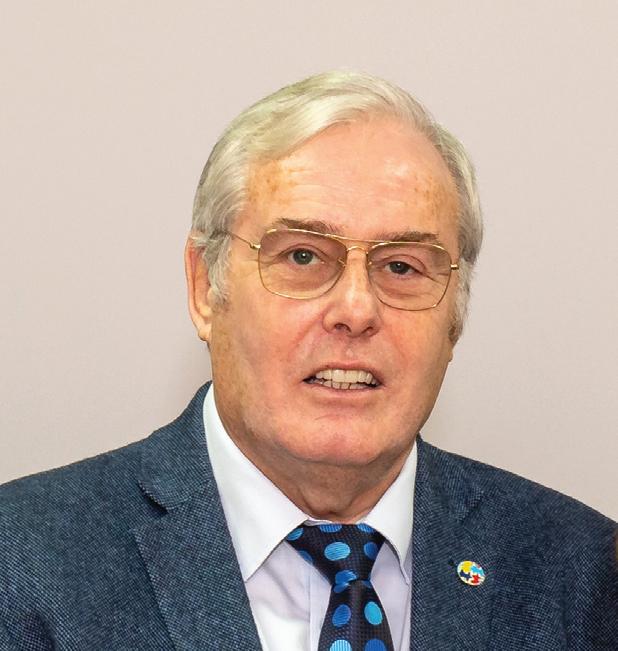
• Operational risk management involves identifying risks before they become incidents, reducing exposure for service users and providers.
• Quality enhancement: Assessing opportunities to raise standards in care delivery, staff engagement, and governance.
• Commercial sustainability: Offering insight into how operational practices influence financial performance, helping providers balance compliance with business viability.
The result is an inspection report that is not only regulatory-ready but also a strategic tool for improvement.
Professionalism is at the heart of CiUK’s ethos.
Inspections are conducted by highly experienced professionals who bring frontline expertise from clinical, managerial, and governance roles in the care sector. This depth of knowledge allows CiUK to deliver meaningful feedback that resonates with staff at every level, from frontline carers to boardroom directors.
Care providers today operate in an environment of heightened scrutiny and rising expectations. CIUK’s inspections do more than highlight compliance gaps; they provide a clear roadmap for reducing risk, enhancing quality, and driving organisational improvement.
By identifying weaknesses early, providers can take corrective action before issues escalate. At the same time, CiUK’s focus on strengths and opportunities supports a culture of positive development. This balanced approach ensures that inspection outcomes are constructive, not punitive, fostering continuous organisational improvement.
SUPPORTING COMMERCIAL
One of the most overlooked aspects of care provision is its commercial dimension. Poor compliance and weak governance inevitably carry financial consequences, from reputational damage to contract loss. CiUK recognises this and integrates commercial insight into every inspection. CiUK helps providers achieve operational excellence and commercial resilience by aligning care quality with business performance.
THE CIUK DIFFERENCE
While CQC/ CIW/ CI inspections focus on fundamental areas such as safety, effectiveness, responsiveness, and leadership, CiUK’s approach extends further. Each CiUK inspection covers all the domains CQC/ CIW/ CI would expect, but also incorporates additional layers of analysis essential for continuous improvement. This Includes:
Independence is equally vital. As an external registered inspection body, CiUK reassures providers that its findings are unbiased and transparent. In a sector where credibility matters, this impartiality is invaluable in preparing for CQC inspections and demonstrating accountability to commissioners, investors, and the wider community.
Choosing Care Inspections UK Limited means selecting a partner committed to professionalism, independence, and comprehensive excellence. CiUK inspections do more than prepare organisations for regulatory visits—they empower providers to deliver safer, higher-quality care while protecting their reputation and commercial future. CiUK delivers evidence-based assurance and actionable insight for providers who want more than compliance.

The National Care Forum (NCF) – the leading association for not-for-profit social care, together with headline sponsors, Marr Procurement, are pleased to welcome senior leaders from across its diverse membership to join them for the Leadership Summit on Tuesday 14th October at Convene on Bishopsgate in London. The event will have a strong focus on creating a clear pathway for care and support providers towards care for the future that meets the needs of the sector around staff efficiencies and cost savings.
The event agenda brings together an illustrious range of speakers from across government, academia, technology providers, social care providers and international experts.
Speakers include Amy Carmichael, Head of Digital Strategy, Innovation and Skills Adult Social Care Tech and Emma Donnelly, Strategy Lead for Adult Social Care Tech Policy at the Department of Health and Social Care. Also speaking at the Summit are Liz Ashall-Payne, Founder of
The Organisation for the Review of Health and Care Apps (ORCHA), Dr Annemarie Naylor, Director of HealthTech and Innovation Growth at the University of Liverpool Civic Health Innovation Labs and Katie
Thorn, Digital Project Lead at Digital Care Hub.
Vic Rayner OBE, CEO of NCF commented: “Together with the NCF team I’m looking forward to getting together with our not-for-profit care and support provider members to visualise the digital future of care and support. We have spent many years building partnerships with technology suppliers and developing international connections to help us understand how the digital agenda is transforming care across the globe. These connections are essential in understanding what future opportunities for care and support might look like for us here in the UK. We have included many of these insights into the programme for the Leadership Summit which will help our members visualise their organisation’s digital transformation, or to expand on the digital plans they may have already started.
“We’re delighted to have so many expert speakers joining us and are particularly excited to be welcoming Liz Ashall-Payne, founder of ORCHA. Liz will deliver an exciting session where she will share practical strategies for building confidence in digital and AI solutions and help providers explore how transparent evaluation, ethical data use, and clear communication create a chain of trust that drives adoption, improves outcomes, and unlocks the full potential of technology.”
Christoph Marr, Managing Director of Marr Procurement said: “We are proud to be headline sponsors for the National Care Forum’s Leadership Summit. This follows an extremely rewarding 10 year relationship with NCF. NCF’s Annual Conference is well attended by a large number of care and support sector decision makers and this year’s event is vital as providers visualise the digital future of care and support. Given the significant cost pressures facing care providers, we will be sharing practical ways to reduce operating costs without compromising on care or quality”
A MAJOR milestone for a leading Scottish housing provider has been marked at a community event in Bishopbriggs, celebrating forty years of support in the local community.
Bringing together tenants, employees and local friends of the organisation, the event celebrated the strong community spirit that has defined Hanover Court, a housing development managed by Hanover Scotland, since 1984.
The celebrations were headlined by a performance from local favourite Mark Walton, who provided live entertainment, alongside a surprise set from an employee-led tribute group, Abbacadabra, whose costumes and upbeat energy brought a party atmosphere to the day.
Angela Currie, Chief Executive of Hanover Scotland, said: “It’s inspiring to see how our tenants and employees work together to make communities like ours flourish and grow.
“As we look to the future, we’re determined to keep evolving our services, ensuring we remain a trusted and credible provider of excellent, affordable and modern housing across Scotland.
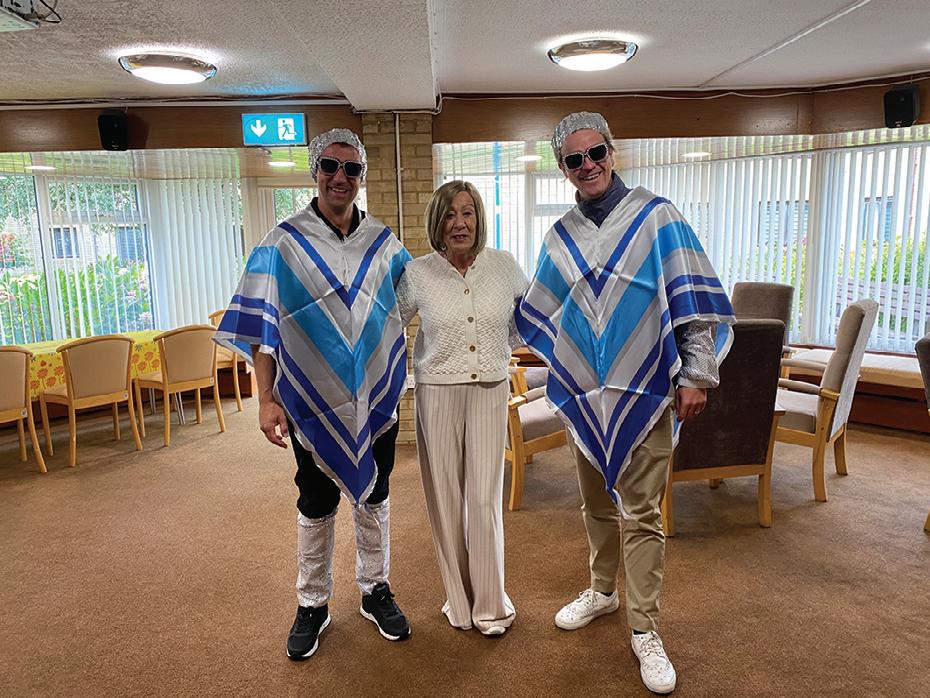
“This 40th anniversary is not only a celebration of Hanover Court, but also a recognition of our continued relevance as a place where older people live well, and are supported by inclusive design, local links and meaningful relationships.”
Since 1979, Hanover has been a pioneering provider of social housing for older people. Today, it manages more than 4,500 homes across Scotland, offering a wide range of tenure options tailored to the diverse needs of its residents.
With a not-for-profit model and a firm commitment to its core values of respect, accountability, collaboration and inclusion, Hanover continues to develop innovative housing and care solutions, creating vibrant communities where older people can thrive.
Annmarie Considine, Development Manager at Hanover Court, said: “This event was a chance to reflect on what makes Hanover Court so special. For 40 years it has been a place where people can live independently while being part of a warm, connected and safe community.
“That balance of independence and support is at the heart of everything we do at Hanover. We know how vital it is for people to not simply have somewhere to live, but a place to call home, and to have the choice and confidence to enjoy later life on their own terms.”
Guests at the event were treated to a generous spread of refreshments and home baked goods, with many taking time to reflect on their memories of the past four decades. Staff and long-serving colleagues were thanked for their contributions, highlighting the dedication behind the day-to-day operations of the development.
Hanover Court is one of the earliest developments in Hanover’s portfolio. Its original purpose, to provide older people with high-quality, affordable housing with support on hand, remains central to Hanover’s approach today.
With a growing focus on innovation and sustainability, Hanover continues to build on its legacy by developing new models of housing and care that meet changing societal needs, while ensuring long-term value for money.
Repose Furniture is one of the UK’s leading manufacturers of bespoke seating solutions, with a reputation built on craftsmanship, innovation, and a strong commitment to improving the quality of life for its customers. Established in 1999 and based in the West Midlands, the company has grown from a small family business into a trusted supplier to both the domestic and healthcare markets. Every chair produced by Repose is handmade in the UK, with an emphasis on quality, durability, and comfort, ensuring that each product meets the specific needs of its user.
Whether for home use or demanding healthcare environments, Repose combines skilled upholstery techniques with modern engineering to create chairs that provide postural support, pressure management, and ease of use. Their wide product portfolio includes rise and recline chairs, hospital and care home seating, bariatric solutions, and specialist products designed to address particular medical and lifestyle needs. An essential element of their offering is flexibility: customers can choose from a range of back styles, seat cushions, mechanisms, and fabrics, allowing each chair to be tailored to the individual. Interchangeable parts mean that a chair can adapt as a user’s requirements change, extending the product’s longevity and ensuring value for money. The healthcare sector is a particular area of expertise for Repose. They strive to design chairs that balance comfort with clinical functionality. Features such as tilt-in-space mechanisms, adjustable cushioning, and pressure relief options make their healthcare seating particularly suited to long-term use in hospitals,
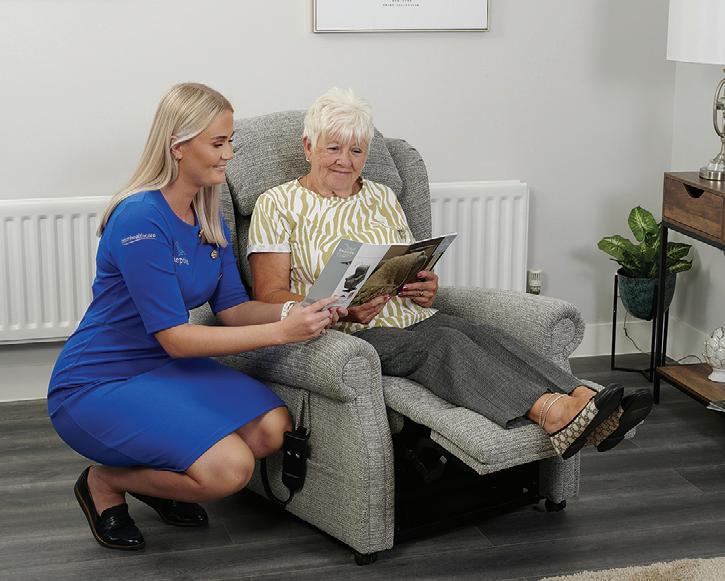
hospices, and care homes. The company’s bariatric range demonstrates the same careful attention to detail, offering robust yet comfortable solutions for larger users.
While customisation is the centre of the Repose offering, they also recognise the urgency often faced in healthcare settings. To address this, Repose have developed their Healthcare Express Chairs, designed to deliver high-quality healthcare seating at speed. The models in this range can be despatched within just five working days. The Multi Bari Express and bestselling Boston Express, for example, are available on this five-day lead time, offering care providers a rapid solution without sacrificing quality or functionality. For less specialist needs, some homecare models are even available on faster turnaround times, demonstrating Repose’s ability to balance responsiveness with craftsmanship.
Repose’s reputation is further reinforced by its after-sales support, 5-year manufacturing warranty, and commitment to ethical and sustainable practices. With a UK-based factory, a dedicated distribution network, and close relationships with healthcare professionals, the company continues to be a trusted partner in multiple sectors throughout the country and beyond.
In combining bespoke design with reliable express options, Repose Furniture stands out as a manufacturer that truly understands the diverse needs of its customers. For over 25 years, it has delivered not just chairs, but comfort, dignity and independence — values that remain at the core of everything it does. For further information, see the advert on the facing page or visit www.reposefurniture.co.uk
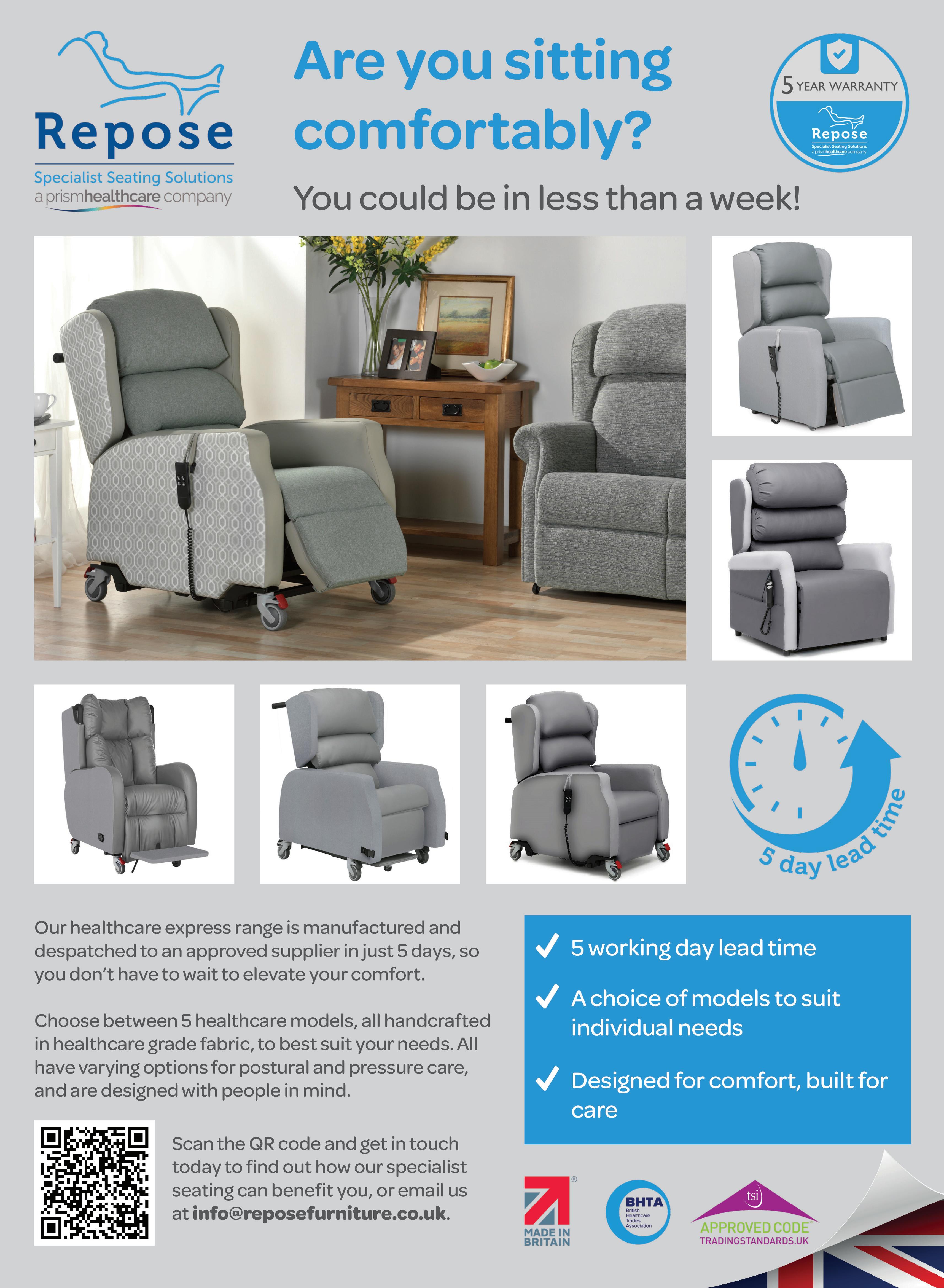
Specialist dementia nursing charity Dementia UK has launched a new Admiral Nurse Clinic to specifically support families affected by dementia from Black, African and Caribbean communities.
One in two of us will be affected by dementia in our lifetime – either by caring for someone with the condition, developing it ourselves, or both. It’s a huge and growing health crisis yet many people living with the condition continue to face barriers to specialist care and support.
Dementia rates are 20% higher among Black adults compared to the UK average1, yet families from Black, African and Caribbean communities often face challenges when accessing dementia care due to a variety of reasons including language barriers, stigma around the condition and a lack of culturally sensitive support and advice.
Dementia UK is the only charity dedicated to helping families face dementia through their specialist dementia nurses called Admiral Nurses, who provide life-changing support and guidance for families affected by all forms of dementia.
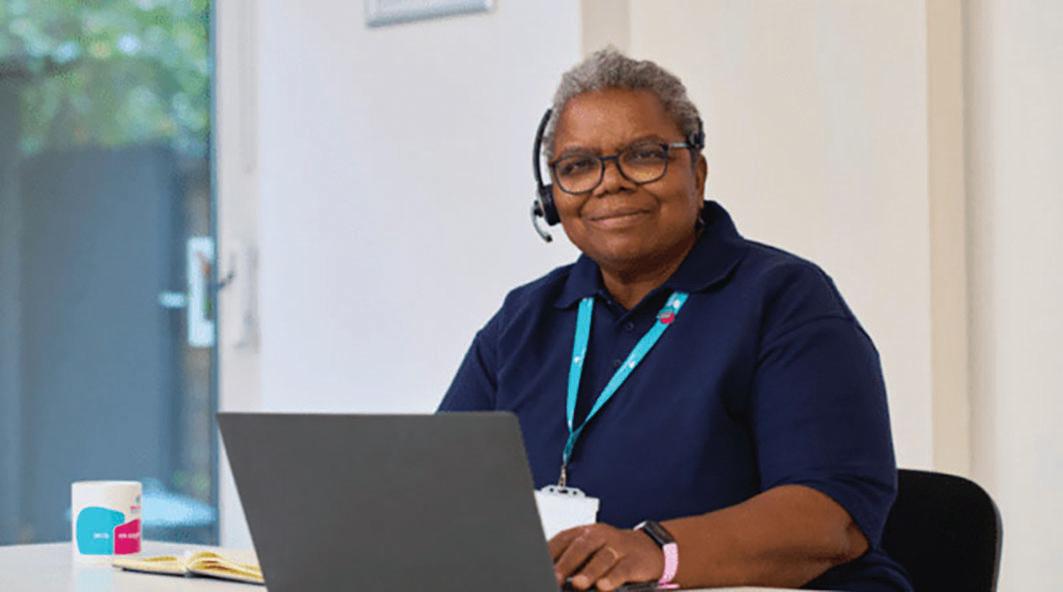
Black, African and Caribbean families who are impacted by dementia can now book a free video call or telephone appointment with a specialised Admiral Nurse for expert, confidential and culturally sensitive dementia support and advice.
Dr Hilda Hayo, CEO, at Dementia UK said: “We are thrilled to launch a brand-new Admiral Nurse Clinic to support families from Black, African and Caribbean communities.
“Families from underrepresented communities often experience delays when seeking a diagnosis of
dementia and face barriers when accessing information and guidance on living with the condition.
“At Dementia UK, we are committed to ensuring all families with dementia have equitable access to the care they need through specialised Admiral Nurses.”
Admiral Nurses Mutsai Hove Bird and Safia Seini are leading the service. Mutsai has been an Admiral Nurse for 10 years, most recently working on Dementia UK’s national Helpline and Clinics service, where she supported families across the UK. Safia has worked in the field of dementia since 2019 and in her previous role, was a Diverse Communities Admiral Nurse, where she provided specialist advice and support to families from underrepresented communities.
Mutsai Hove Bird, Admiral Nurse, said: “Working alongside my colleague Safia, I am humbled by the opportunity to provide specialist dementia advice, support and guidance to people from Black, African and Caribbean communities who are living with dementia, their family members and carers.
“There are many unique challenges that people affected by dementia from Black, African and Caribbean communities might face, including the various perceptions of what the condition is.
“I look forward to offering families in these communities a trusted space to access person-centred, culturally sensitive dementia advice and support.”
To find about more about the Black, African and Caribbean Admiral Nurse Clinic and to book an appointment visit: dementiauk.org/bacc
Chief Commercial Officer of orchard Care Homes Deborah Johnson, has been named the winner of the Business Transformation Award at the Yorkshire Finance Leaders Awards 2025.
The award recognises finance leaders who have successfully led major change initiatives and delivered tangible improvements within their organisations. Deborah’s win reflects her exceptional leadership in driving Orchard Care Homes through a significant period of strategic transformation – enhancing operational performance and accelerating commercial growth across the group.
The Yorkshire Finance Leaders Awards celebrate the region’s most innovative and influential finance professionals. This year’s winners were announced at a ceremony in Leeds, recognising those who have made a lasting impact in their sectors.
In their comments, the judging panel praised Deborah’s long-standing contribution to the organisation: “Deborah Johnson has led a remarkable transformation at Orchard Care Homes, guiding the business through challenging times to become a trusted provider of specialist care across the North and Midlands. Her steady leadership, financial acumen, and commitment to operational improvement have been pivotal in reshaping the organisation and securing its long-term future.”
“We are incredibly proud to see Deborah’s vision, dedication, and hard work acknowledged by such a respected awards programme,” said Hayden Knight, CEO of Orchard Care Homes. “Her strategic leadership has been vital to our growth and continued delivery of high-quality, person-centred care”
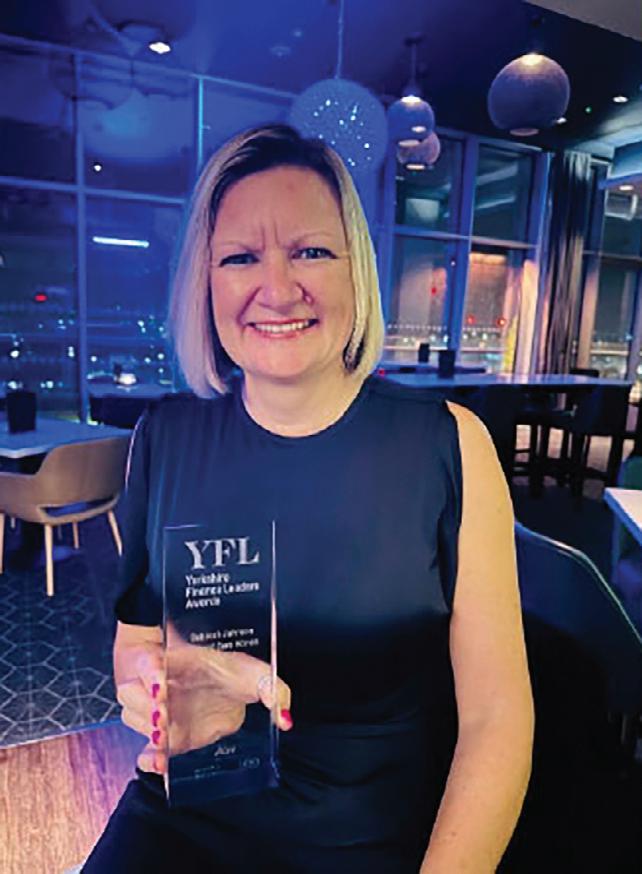
According to data from carehome.co.uk, there are approximately 441,479 people residing in care homes across the UK.
For these individuals, the supported, structured environment of a care facility affords them a degree of independence and autonomy, alongside the medical and professional assistance needed to lead a healthy, safe, and fulfilling life.
Yet care homes are not without risk. Research suggests care home residents are three times more likely to experience a fall compared to those living in their own homes. Fortunately, advancements in technology, engineering, and facility design are actively tackling these risks, increasing the safety for those living in supported environments.
Pinpoint’s P2 alarm system is one of these solutions.
Enabling care home residents to summon professional support instantly, the Pinpoint System establishes a clear line of communication between residents and care staff.
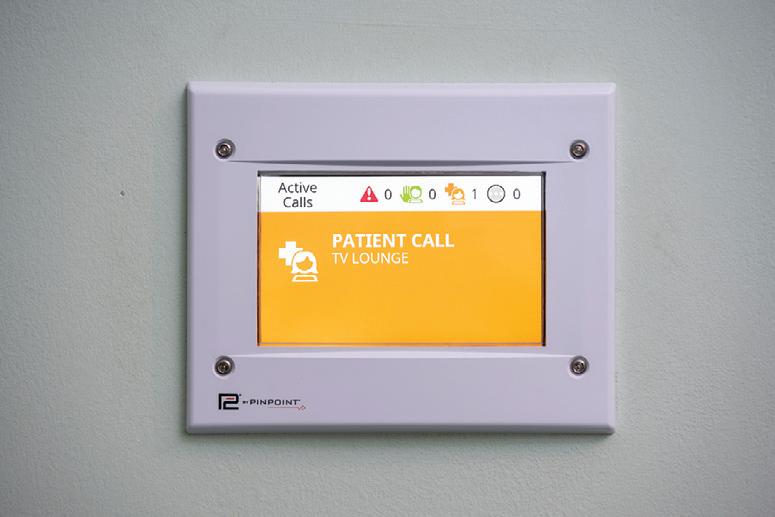
By pressing a button on a Patient Call Button, the user alerts staff members to the need for help and the exact location of an active call. This information, displayed on a staff communication device, elicits an immediate response to deliver the required support.
For individuals more vulnerable to falls or accidents, the Pinpoint System ensures that medical assistance is readily available, offering reassurance to care home residents and their families that help is always at hand and that high-risk incidents are handled efficiently.
On a day-to-day basis, the Patient Call Buttons are used by residents in need of extra assistance, such as when using the bathroom, to get out of bed or to access certain rooms within the facility. In this way, the Pinpoint System gives individuals a greater degree of control over their routine and avoids the need for 1-1 supervision, enhancing their quality of life.
The Pinpoint Patient Call Buttons come in various forms, including Wrist PITs, which are worn on the wrist of the individual, and wall-mounted alarms. Wander Leads of up to 2 metres in length can also be plugged into wall-mounted alarms to allow resident with limited mobility to activate the alarm from their bed or armchair.
Biomaster technology provides 24/7 antimicrobial protection for all devices, preventing the spread of bacteria in care facilities, while an Ingress Protection rating of 67 allows Patient Call Buttons to be installed in bathroom and kitchen facilities where residents may be more vulnerable to slipping.
The presence of the Pinpoint System gives care home residents the chance to maintain a level of independence, while being safe in the knowledge that professional assistance can be accessed quickly and easily. This balance between site security and individual autonomy instils residents and their families with confidence that support is always available, and the peace of mind that the wellbeing, safety and health of the individual is the care home’s top priority.
Please see the advert on the facing page or visit www.pinpoint.ltd.uk
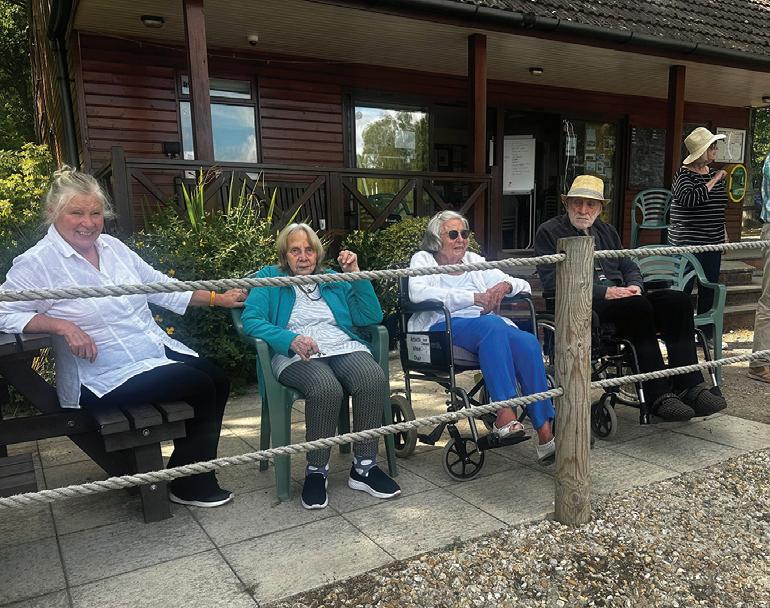
Residents from HC-One’s Charters Court Care Home in East Grinstead, West Sussex, recently enjoyed a special trip to Hedgecourt Lake, thanks to an exclusive invitation from the Commodore of the Crawley Mariners Yacht Club.
The Crawley Mariners Yacht Club, located at Hedgecourt Lake, is a private sailing club dedicated to promoting sailing and a community spirit among its members.
The private visit offered residents a unique opportunity to experience the beautiful lake and its tranquil surroundings. The venue, which is not typically open to the public, is just a five-minute drive from the care home, making it a perfect local escape.
Residents David Stevens, Wendy Jones, and Mary Perris were the first to visit, and they had a wonderful time relaxing and taking in the breathtaking views and local wildlife. The group enjoyed a delicious picnic and cherished the peaceful atmosphere.
Julie Harper, HC-One Charters Court Care Home’s Home Manager said: “It's such a beautiful place to sit and relax. We are incredibly fortunate to have been invited by the Crawley Mariners Yacht Club. This kind of community partnership is invaluable for providing our residents with new and enriching experiences."
With more trips already planned, the care home team is hoping the good weather continues so that more residents can enjoy this special outing.
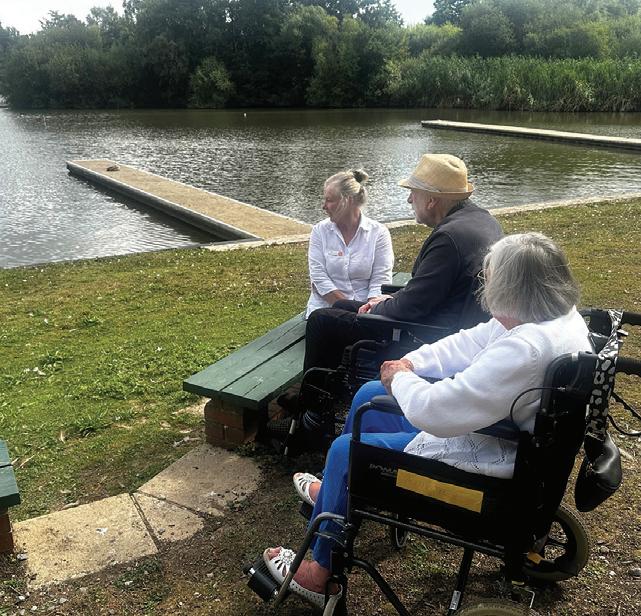
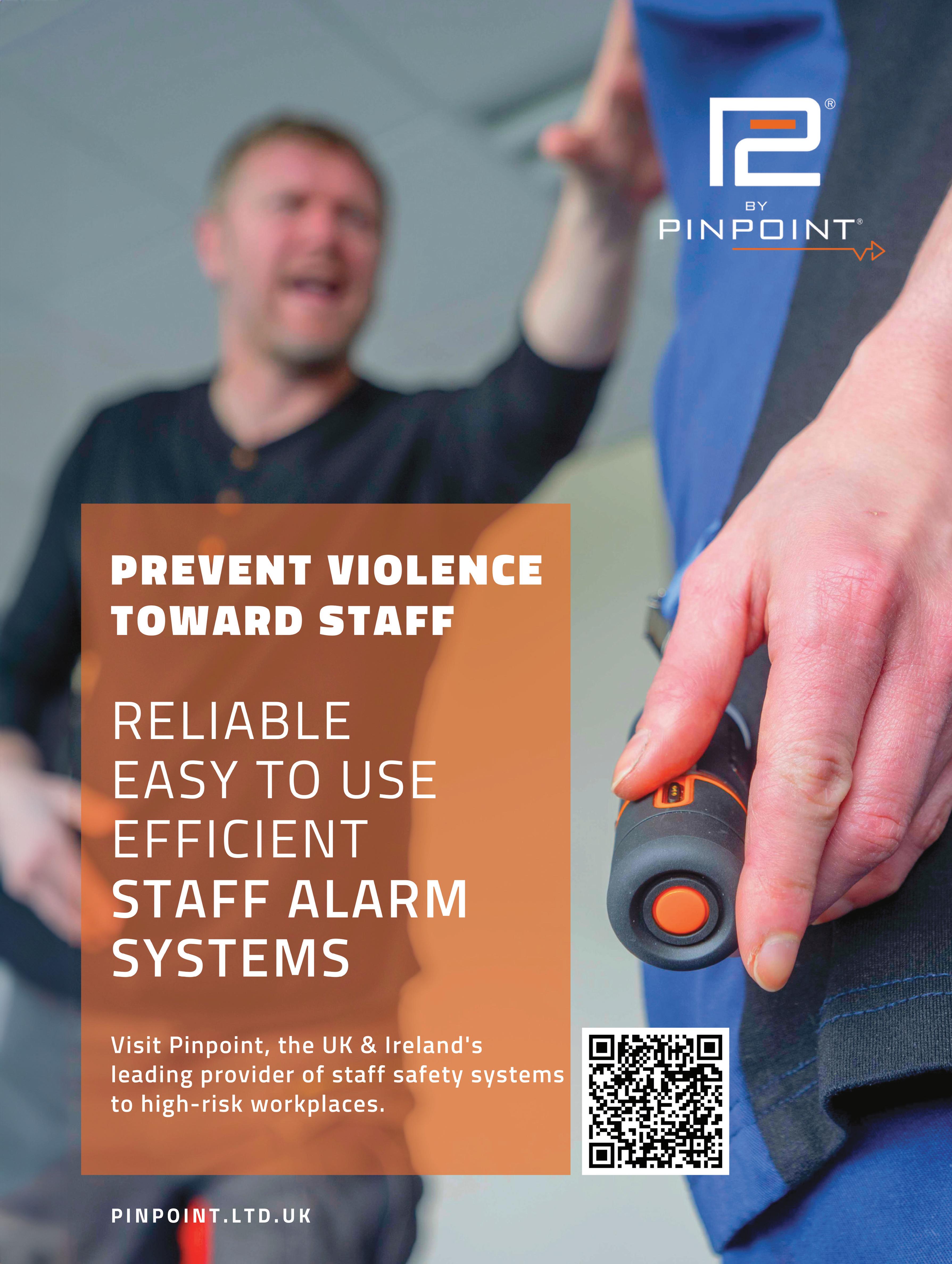
By Nikki Walker - CEO of QCS, an RLDatix Company (www.qcs.co.uk)
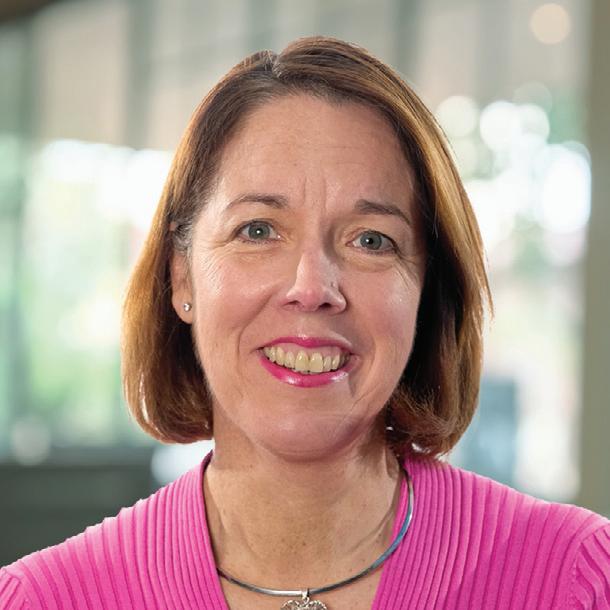
The social care sector stands at a turning point. With rising demand, increasing regulatory scrutiny, and ongoing staffing pressures, providers are being asked to do more, with less. In this environment, the way forward isn’t just about working harder it’s about working smarter.
One of the most transformative shifts on the horizon is the move towards truly integrated care systems: digital platforms that bring together compliance, care planning, risk management, training and quality monitoring in one unified place. More than just a convenience, this integration is fast becoming essential.
Currently, many providers juggle multiple systems or rely on a mix of digital tools and paper-based processes. Information is scattered. Teams duplicate effort. Vital data goes unnoticed.
The result? Frustration, inefficiency and risk.
A connected system solves this by creating a single source of truth, where care delivery and compliance are not just stored, but actively linked. Changes in a policy can automatically update associated risk assessments. Notes in a care plan can prompt training needs. Audit trails are clear and accessible. For staff, it means less time on admin. For managers, better visibility. For individuals receiving care, more consistent, safer support.
Adding artificial intelligence (AI) into the mix elevates this even further. AI can help spot patterns in care records, prompt best practice actions and reduce the burden of documentation. Crucially, AI isn’t there to replace human decision-making it’s there to support it. By giving frontline teams real-time, intelligent guidance, it helps ensure nothing is missed and quality remains high.
Of course, technology alone isn’t enough. These systems must be built on deep sector knowledge and shaped by those working in care. Platforms like QCS, for instance, combine expert-backed content with intelligent tools to provide not just data, but insight. It’s this fusion of trusted information and digital innovation that’s beginning to change how care is delivered.
But a connected future is about more than software. It’s a cultural shift towards a care environment that is proactive rather than reactive, where data drives improvement, and where teams feel confident and supported.
In a sector where every moment counts, integrated systems offer more than efficiency, they offer the chance to focus on what matters most: people. When technology works seamlessly in the background, it frees carers to do the deeply human work that technology can’t replicate.
The future of care is not just digital. It’s intelligent. And most importantly, it’s integrated.
To see how QCS are integrating care planning, rostering. audits, mock inspection, surveys, training, compliance, dementia care and more into one integrated system backed by AI technology, follow the link. www.qcs.co.uk/what-we-do/
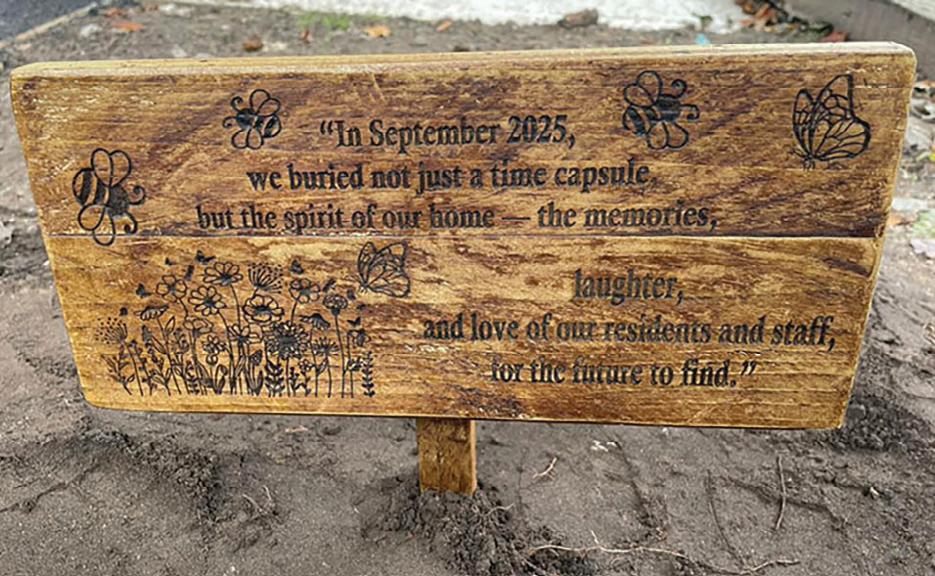
Residents and staff at an Altrincham home have planted a time capsule in the back garden with items such as coins and covid tests.
MHA Handsworth decided to plant a time capsule in their back garden after it was suggested to them by a resident.
The idea came as the home has just completed renovating their back garden, with plans for a summerhouse to be installed in the next few months.
The home bought a time capsule online and filled it with items such as newspaper cuttings showing prices of items in 2025 as well as average salaries, various coins, a covid test and pictures of residents and staff from various day out and activities at the home. They invited Connor Rand MP for Altrincham and Sale who buried the capsule and helped to plant it before the home put a plaque on top which shows where the capsule is and when it was planted. Charlotte Fowke, activity coordinator said: “One of our residents suggested the idea and wanted to plant beneath where we have just tarmaced the garden, but we felt that would be a challenge for anyone to ever discover it.
“Therefore we decided to utilise the space next to where the new tarmac has been laid, which is soil and easy to dig up.
“We then shared the idea with residents and staff, who were all very keen and then we all went away to think about what we wanted to plant.
“I went online and found a time capsule and with the help of other staff and residents started filling it up.
“I feel it’s a great idea and something we can hopefully help to spread across our MHA homes.
“The capsule contains various coins, letters from residents and the home manager explaining what MHA Handsworth is, a covid test, photos of activities as well as a letter I found at home from when the outbreak was announced back in 2020.
“Our MP got stuck in by planting the capsule and putting soil over it, he really enjoyed the task and the residents enjoyed spending time with him.
“We hope whoever discovers it can look back on what we did here at MHA Handsworth, what MHA Handsworth was and can keep the tradition going by replanting it.

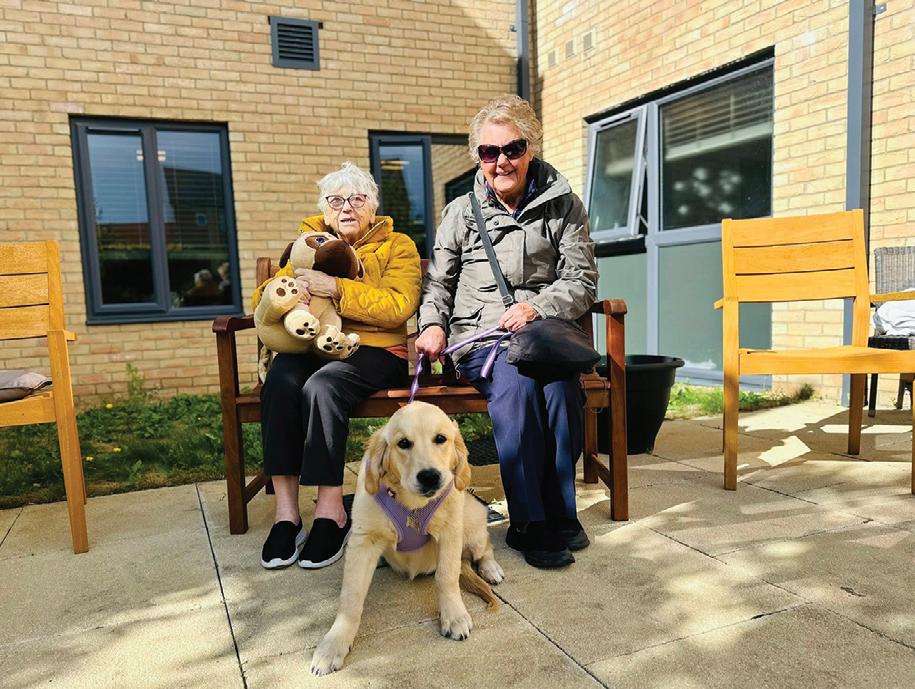
Melbourn Springs Care Home was transformed into a lively arena of wagging tails and joyful cheers as it hosted its first-ever community dog show, drawing an enthusiastic crowd and raising vital funds for All Saints Church, Melbourn.
The event, held on the care home grounds, welcomed residents, families, and local dog lovers for an afternoon of fun and furry competition. Categories included “Waggiest Tail,” “Best Trick,” and “Most Handsome Hound,” with prizes awarded to the judges’ favourite canine stars.
The judging panel featured two beloved residents of Melbourn Springs, Pam and Audrey, alongside Elizabeth Freeman, Deputy Mayor of Melbourn, and Lisa Thompson from Arthur Rank Hospice. Their thoughtful choices and warm presence added a special touch to
the day’s festivities.
“We were thrilled to see so many people come together to support a great cause,” said the Acting General Manager at Melbourn Springs. “Our residents absolutely loved meeting the dogs, and the atmosphere was full of laughter and joy. It’s wonderful to know that we’ve also helped support our local church.”
A raffle and refreshments added to the festivities, with all proceeds going to All Saints Church in Melbourn and Holy Trinity in Meldreth. The generosity of attendees and donors made the event a meaningful success.
One resident shared, “It was the best afternoon I’ve had in ages. I used to have a spaniel, and seeing all the dogs brought back such lovely memories.”
A visitor from the local community added, “It’s fantastic to see the care home so involved with the community.
Everyone was smiling, and the dogs were clearly loving the attention. We’ll definitely be back next year.”

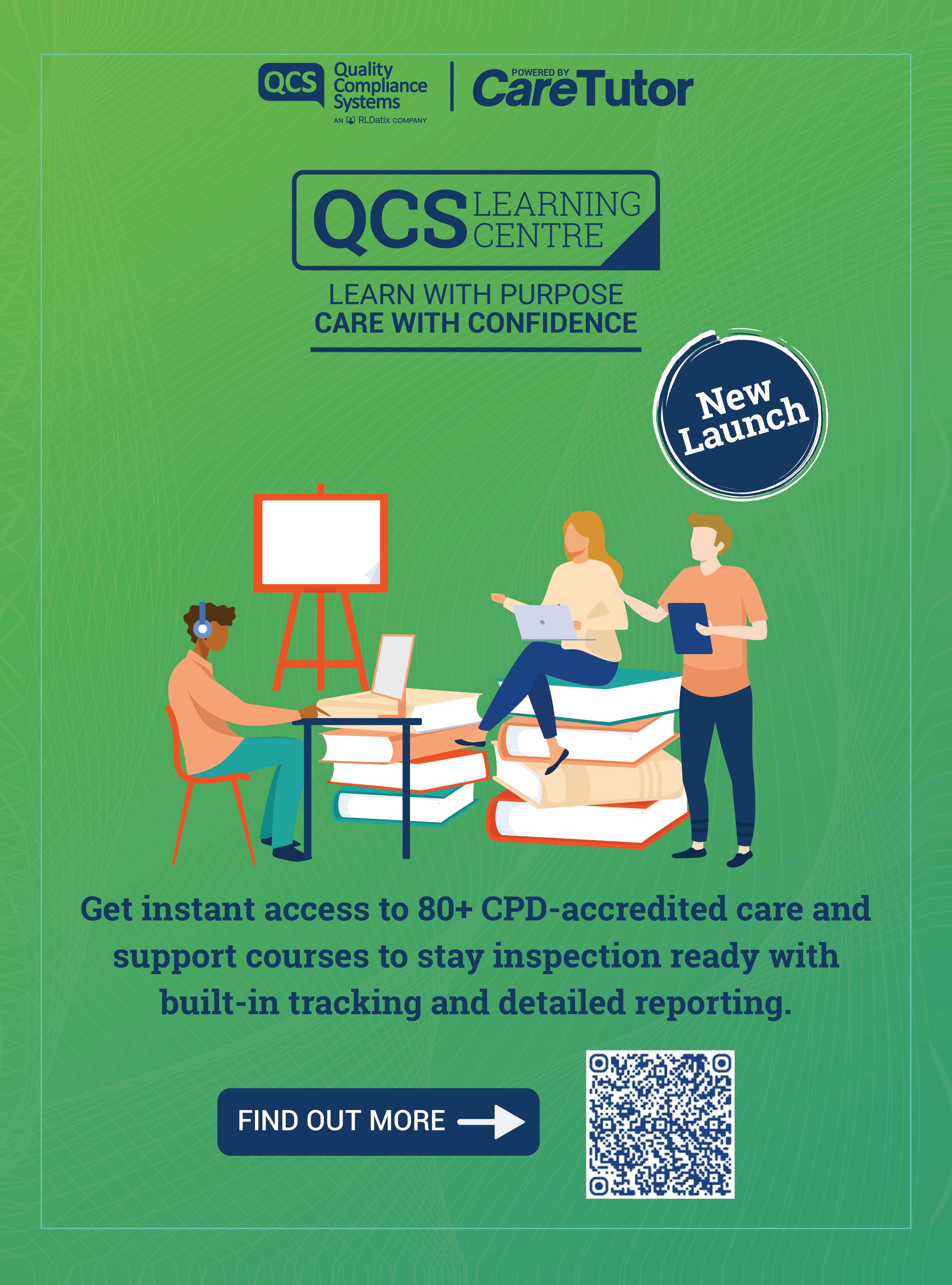
SEE US ON STAND J20 AT THE CARE SHOW
Annual figures for detentions under the Mental Health Act in England, covering April 2024 to March 2025, have today been published by the NHS.
Under the Act, people with mental health problems can be detained in hospital (or ‘sectioned’) for treatment, including by the police. Once discharged from hospital, some people may be put on a Community Treatment Order (CTO) which places conditions on their discharge and allows them to be recalled to hospital.
THE DATA SHOWS:
• The total number of detentions is slightly higher, at over 52,000
• Racial disparities in detention rates increased. Black people are detained at 4 times the rate of white people, up from 3.5 the previous year
• The number of new CTOs increased by 17% – in 2023/24 there were 5,618 new CTOs, but in 2024/25 there were 6,575 new CTOs
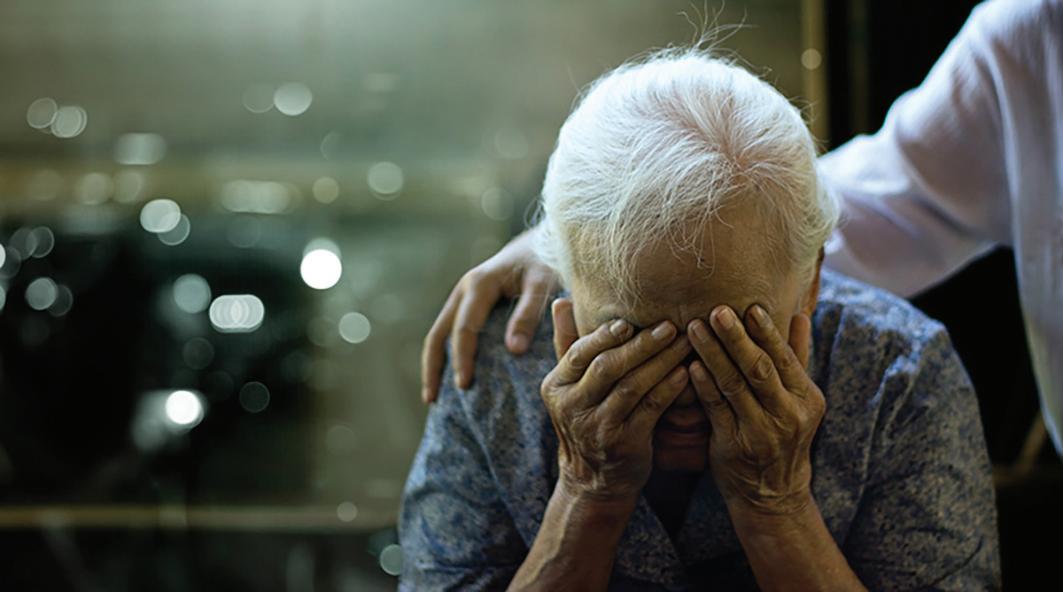
• Racial disparities in the use of CTOs also increased – the previous year, Black people were issued them 7 times more than white people, and this year it is up to over 8.5 times
• Detentions were highest in the most deprived areas of the country. People in the most deprived areas were more than 3.5 times more likely to be detained than those in the least deprived areas
• The length of stay in hospital for under 18s was longer than that for most adult groups.
The Labour government introduced the Mental Health Bill, which would reform the Mental Health Act 1983, in its first King’s Speech last year. The road to reform officially started in 2018 with an independent review of
the Act, followed by a White paper in 2021 and a final parliamentary joint committee report in 2023 before the Conservatives dropped the Bill.
Mind is calling for amendments that put time limits on CTOs, tackle racial inequalities at a local and national level, give young people more say in their treatment and end the use of out-of-area placements or adult wards for children.
Dr Sarah Hughes, Chief Executive of Mind, said: “These shameful figures show the human cost of inaction on mental health.
The racial inequalities in mental health crisis care are longstanding but the fact they are worsening is a shocking indictment of the UK government. Mental health services are failing Black people. Mind is calling for urgent interventions to tackle the over detention of Black people and culturally appropriate care.
“The UK government has acknowledged the toxic impact of health inequalities. Today’s statistics show why it must eradicate racism in healthcare.
“MPs will soon have a final chance to vote through bold, transformative amendments to the Mental Health Bill, to make the Mental Health Act fit for the 21st century. Mind stands ready to work with politicians to deliver a new deal for mental health that tackles racism head on and strengthens the rights of people at their most unwell.”
Aria Care is celebrating a huge achievement in care catering, with two of its leading hospitality professionals recognised at the prestigious National Association of Care Catering (NACC) Awards 2025.
Janos Csavas, Head Chef at Oaken Holt Estate, has been awarded the Bev Puxley Award, recognising outstanding contribution to care catering.
Paul Wright, Group Hospitality Manager at Aria Care, has been named Catering Manager of the Year for his exceptional leadership and innovation across the group’s portfolio of homes. Both awards are among the highest accolades in the care catering sector, celebrating individuals who go above and beyond to enhance resident wellbeing, empower teams, and drive meaningful improvements in care hospitality.
The dual wins at this year’s NACC Awards reflect Aria Care’s continued investment in hospitality as a cornerstone of quality care, and indicate the growing culture of excellence.
“We are immensely proud of both Janos and Paul,” said James Clear, Hospitality Director. “Their passion, innovation and leadership are transforming what hospitality in care can and should be. These awards are testament to their commitment, and to the meaningful difference they make in the lives of our residents.”
Bev Puxley Award: Janos Csavas, Head Chef, Oaken Holt Estate

With over six years’ experience in care catering, Janos has dedicated his career to transforming mealtimes into meaningful moments for residents, particularly those living with dementia. His award-winning work includes:
Texture-modified meals that preserve dignity and flavour for those with swallowing difficulties. Nostalgia-driven menus designed to stimulate memory and emotional connection. Person-centred mealtimes, developed in collaboration with care teams to reflect residents’ individual preferences and cultural backgrounds.
reduced food waste, and enhanced mealtime enjoyment.
CATERING MANAGER OF THE YEAR: PAUL WRIGHT, GROUP HOSPITALITY MANAGER
Paul’s leadership has redefined excellence in care sector hospitality. With a background in hotels, restaurants and long-term culinary development roles at Unilever Foodsolutions, Paul brings deep expertise, vision and compassion to his Group Hospitality Manager role at Aria Care.
His achievements include:
Implementing CaterCloud technology in partnership with EF-group to optimise allergen management, reduce waste, and enhance compliance.
Unifying catering and housekeeping into a single ‘whole-home’ hospitality approach to streamline operations and elevate resident experience.
Mentoring chefs and care teams, delivering training programmes on mealtime experience, nutrition, and hydration.
AMONG PAUL’S MOST IMPACTFUL INNOVATIONS:
Aqua Burst: A sugar-free, vitamin-rich sweet supporting hydration in dementia care, now demonstrating measurable health outcomes.
Food is Medicine: A chef-led course training care teams to use nutrition to actively improve resident health—reducing falls, boosting immunity, and enhancing wellbeing.
Wise Up on Waste: A hands-on course empowering teams to reduce food waste while increasing flavour and nutritional value.
Paul mentors chefs across the business and has developed career pathways in partnership with schools and colleges. He is currently leading the creation of the Aria Cookbook, celebrating resident stories and favourite recipes.

The team at HC-One’s Lauren Court Care Home in Blacon, Chester, Cheshire, have completed an inspiring 100-mile sponsored bike ride from Lauren Court Care Home to Llandudno, raising vital funds for a cause close to their hearts.
The challenge was inspired by Deputy Manager, Kelly Morgan, whose son McKenzie was diagnosed with a brain disorder at just eight months old. Claire House Children’s Hospice provided exceptional care and support to McKenzie and his family until he sadly passed away at the age of three. Kelly suggested the idea of a sponsored ride to raise money in McKenzie’s memory, donating funds to Claire House and the resident’s comfort fund.
Home Manager Racheal Ashman, Deputy Manager Kelly Morgan, and Senior Administrator Marta Kaczmarek set off from Lauren Court Care Home at 12pm on Friday 5th September, cheered on by supporters. The trio cycled 37 miles to Abergele, where they stayed overnight in a caravan. On Saturday, they travelled 16 miles to Llandudno and back, before setting off on
the final 37-mile journey back to Lauren Court on Sunday afternoon.
Along the way, the team shared laughter, created unforgettable memories, and took in some stunning views, with a highlight being the sunset over Prestatyn beach.
Speaking after the event, Home Manager at HC-One’s Lauren Court Care Home, Racheal Ashman said:
“This wasn’t just a bike ride; it was a journey. It brought us closer together as a team, created memories that will last a lifetime, and allowed us to raise money that will make such a difference. Kelly had her son McKenzie as her inspiration, and Marta and I had Kelly as ours, she is the strongest woman we know.”
The Lauren Court Care Home team are delighted with the support they’ve received and are proud to have honoured McKenzie’s memory while supporting a charity that continues to provide life-changing care to families in need. The 100-mile sponsored bike ride raised a total of £1,100.

Three leading care organisations in Calderdale and Kirklees – Overgate Hospice, The Kirkwood and The Kirklees and Calderdale Care Association (KirCCA) – have come together to launch a bold new strategic collaboration –Caring Together: A Voice for Local Care.
The initiative marks a significant step forward in uniting the voices of nonstatutory care providers across the region. By working collaboratively, the partnership will seek to protect and enhance the health and care experience for everyone who accesses care, as well as for those who work within the services.
The launch of the Caring Together strategic plan comes at a crucial time. Care providers across the region – from hospices providing specialist palliative care to care homes – face multiple challenges, including concerns over longterm funding and ever-rising demand for services.
The newly formed partnership aims to champion non-statutory social care providers across Kirklees and Calderdale, addressing the growing pressures facing hospices, care homes, and community-based services, and advocating for a fairer, more inclusive and sustainable care system.
At the heart of the collaboration is a shared belief: that everyone deserves access to high-quality, compassionate care in their own community – and that those who deliver this care deserve recognition, respect, and fair reward.
Michael Crowther, Chief Executive for The Kirkwood, believes that the newly formed partnership can become a strong voice for social care across the region.

“The Kirkwood are delighted to be campaigning with KirCCA and Overgate Hospice. Although the level of services we offer are different – we share many critical experiences when it comes to funding challenges and the valued role of our frontline colleagues. Collaboration is vital if we are to build a stronger, fairer health and care system, and we believe hospices and care providers have a unique role to play in that journey.
“By joining forces, we can amplify our impact, share expertise, and ensure that people and families receive the care and compassion they need, when they need it most.”
Tracey Wilcocks, Chief Executive at Overgate Hospice is pleased to be standing alongside colleagues from the social care sector.
“Overgate Hospice is proud to be collaborating with KirCCA, standing alongside colleagues from across Kirklees and Calderdale. By working together, we can strengthen the health and care sector and ensure the very best support for the people in our communities.”
WHY NOW?
The launch comes at a time of mounting concern across the sector. Rising costs, including the recent uplift in the national minimum wage, inflation, and increasing demand for services, are placing unprecedent-
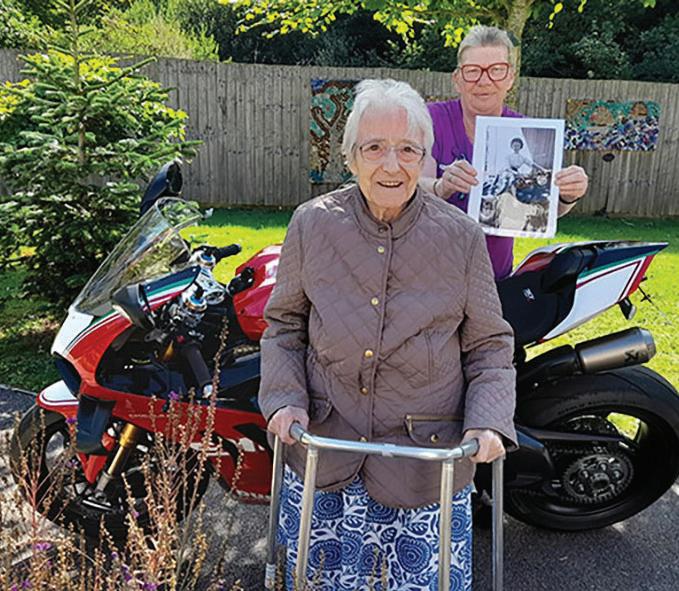
A resident at a care home in Eye has had her wish for a thrilling afternoon on two wheels granted.
Care UK’s Hartismere Place, on Castleton Way, was treated to the roar and excitement of a motorbike visit after the team learned about 92-year-old resident Aurora Soriano Romero’s heartfelt wish, shared through her daughter.
After enjoying the many models on display at the home’s motorbike festival in August, Aurora’s daughter, Luisa Castle, was inspired to bring in a treasured photo of her mum perched on a motorbike in her youth to trigger memories of her younger years.
Aurora, who is originally from Spain, said: “I remember the photo being taken when I was in my late 20s. It wasn’t my bike; it belonged to a friend.
“I wouldn’t have ridden a bike myself, as it
wouldn’t have been safe. It was too dangerous in the city where I lived – Barcelona.”
Upon hearing Aurora’s story, the husband of a care worker at Hartismere Place, who rides a red Ducati Panigale, brought their motorbike in for Aurora to see and relive her memories.
Aurora said: “I loved seeing the motorbike as it reminded me of my youth and living in Spain with my family.”
Aurora’s motorbike visit was part of Care UK’s Wishing Tree initiative, which helps residents revisit old hobbies and passions or even try something new. Whether it’s a fish and chip supper, a skydive or watching a football match, no wish is too big or small for the team to try to make come true.
Claire Martin, Home Manager at Hartismere Place, said: “We had a wonderful afternoon sharing Aurora’s passion and learning more about her love of motorbikes.
“Our Wishing Tree initiative is a wonderful way for residents to share their ambitions and it’s hugely rewarding to be able to make these a reality.
Aurora loves to look back at photos of her younger years, so it was an incredibly special moment to see her face light up when she saw the motorbike.
“Reminiscence and helping to keep memories alive are so important in later life.
Recreating this experience meant the world to Aurora; it wasn’t just about the motorbikes but also rekindling cherished memories, feeling the excitement and reliving a little piece of her youth.”
ed strain on care providers. With many providers operating outside the NHS, they face a series of unique challenges in sustaining vital services.
The Caring Together: A Voice for Local Care plan seeks to speak with one voice – to system partners, policy makers, and the public – and to campaign for urgent reform. The strategic plan outlines three core goals:
1. CHAMPION FAIRER FUNDING FOR LOCAL CARE
• Advocate for transparent, long-term funding models that reflect the true cost of care.
• Engage with local, regional, and national decision-makers to present evidence and lived experience.
• Highlight the impact of underfunding on care quality, recruitment, and health inequalities.
2. PUSH FOR EQUITY AND RECOGNITION FOR THE CARE WORKFORCE
• Promote parity of pay, terms, and conditions between statutory and nonstatutory care workers.
• Evidence the impact of workforce instability on service sustainability and care outcomes.
• Campaign for greater respect and visibility for care professionals across all settings.
• Strengthen strategic collaboration with statutory partners.
• Seek representation in key health and care decision-making forums.
• Promote shared values and objectives across sectors to ensure joined-up care delivery.
James Creegan, Chief Executive Officer for KirCCA, believes the partnership will open up vital opportunities to advocate for a fairer, inclusive and sustainable care system. “This is more than a collaboration – it’s a united call for change. ‘Caring Together a Voice for local Care’ brings together the voices of those who deliver care every day, often under-recognised, to demand a system that values compassion, sustainability, and fairness. We’re proud to stand alongside our hospice partners to champion a future where local care is not just heard, but truly respected.”
A Call to Action
Caring Together is calling on MPs, councillors, system leaders, and the public to support its mission. The partnership believes that real change is possible – but only if care providers are recognised as equal partners in shaping the future of health and care.
The full strategic plan and updates from the collaboration is available via the group’s LinkedIn page: www.linkedin.com/company/caring-together-a-voice-for-local-care


• We specialise in the sale and purchase of quality
vehicles and ambulances.
• They can be bought as seen or refurbished and sign-written to your own requirements.
• Fully serviced, new mot & warranty
• Engineers inspection supplied if required.
•
•
•
•


Following the first meeting of Baroness Casey’s cross-party Social Care Commission last month and the International Day of Older Persons today, the Local Government Information Unit (LGIU) and Chartered Institute of Public Finance and Accountancy (CIPFA) have announced a series of research briefings on the approaches of the Scottish, Welsh, and United Kingdom (UK) Governments to building National Care Services (NCSs).
The Casey Commission (launched in July) has followed many seemingly endless attempts to address systemic issues in adult social care and lay the foundations for a National Care Service.
In the past 27 years, there have been numerous separate white papers, reviews, and commissions on adult social care.
With Chair Louise Casey keen to take forward improvements for the sector, time will tell whether the new commission will deliver the desperately needed answers.

However, with UK nations at different points on their social care reform journeys, there are lessons to be learned. LGIU and CIPFA’s new research series aims to help inform the work of the Casey Commission by bringing together key sector voices from Scotland, Wales and England to explore themes around the NCS’s progress in those areas from policy inception to present, lessons learned from each country’s journey and the wider implications of adult social care reform and an NCS in each country.
The first research briefing (launched on 29 September) looks at the story so far across the three nations and draws some broad conclusions about the success or otherwise of each approach.
Jonathan Carr-West, Chief Executive of LGIU said: “Addressing the social care crisis is fundamental to placing local government finances on a sustainable footing.
Our annual State of Local Government Finance research consistently highlights the cost of delivering
social care as one of the most pernicious long-term threats to council finances. In recent years, we’ve seen National Care Services crop up in each nation as a potential solution, but not as much work comparing what these might look like or the lessons the nations can learn from one another.
I am delighted that the LGIU is working with CIPFA to explore the progress of establishing National Care Services in Scotland, England, and Wales so far, including lessons learned and how these can be adopted across the UK going forward.
Our key organisational focus on local government and CIPFA’s expertise on finance will allow us to tackle the thorny questions of who will be delivering care in a National Care Service and how we will pay for it.
Our hope is that this series of three briefings can help inform the work of the Casey Commission and will contribute to debates around the experience and future of adult social care reform in Scotland and Wales.”
Owen Mapley, Chief Executive, CIPFA said: “Reform of adult social care is one of the most pressing financial and policy challenges facing the UK. Through this joint research from CIPFA and the LGIU, we want to bring the financial realities to the fore and ensure that any future National Care Service is not only ambitious in scope, but also deliverable in practice.
Looking across Scotland, Wales and England, it is vital that we learn from the progress – and the pitfalls –of each approach to build a model of care that is equitable, financially sustainable and capable of meeting the needs of our ageing population.
We hope this work will support the Casey Commission in driving forward meaningful reform that finally secures a fair and lasting solution for adult social care.”
CareZips® Classic are patented, easy dressing unisex adaptive pants designed for older and disabled people suffering with problems associated with continence, mobility, mental function and cognition. Suitable for persons living in care institutions, receiving care at home or living independently at home, CareZips® Classic enable people to dress themselves or with assistance from carers.
CareZips® Classic feature patented 3-zipper system, which opens the front of the pants from the waist to the knees for quicker access during toileting, continence pads changes and personal hygiene. The forward positioning of the two side zippers lessens pressure on sensitive hip areas, helping to eliminate discomfort. The third zipper facilitates simple full frontal opening for faster more dignified diaper changes, catheter adjustments, personal cleansing and hygiene routines.

cal functionality and versatility of the CareZips® Classic, all day comfort and easy garment care.
• People dependent on assisted dressing appreciate quick easy dressing process with less stress, embarrassment and greater dignity offered by CareZips® Classic.
• CareZips® Classic offer practical gains to the carers, helping them to provide better care, whilst reducing physical efforts and saving valuable time.
CareZips® Classic are unisex, available in 6 sizes and 3 practical colours (i.e. black, charcoal and navy). Tapered fit at the ankles gives a tidy appearance. Made from breathable moisture-wicking 4-way stretchy crease-free and easy-care durable fabric, CareZips® Classic are comfortable, practical and conveniently functional.
In today’s care sector, where equipment failure can directly impact patient safety and service quality, proactive asset management is non-negotiable. Enter Assetain, Medaco’s pioneering solution designed to manage the complete lifecycle of patient-handling equipment - from first supply to planned obsolescence.

assessments, which are promptly linked to each record. This approach adds both accountability and immediate insight for stakeholders.
CareZips® Classic have many benefits for the older and disabled users and their carers:
• People dressing themselves enjoy the practi-
For more information, contact Win Health Medical Ltd - 01835 864866www.win-health.com
See the advert on page 3 for further information on Win Health’s product range.
Angloplas are a UK manufacturer who specialise in producing dispensers for the health and hygiene industry. Although these are designed to keep the workplace tidy and uncluttered they are, more importantly, built knowing the control of healthcare-associated infections (HCAIs) are a priority for healthcare providers, and who are employing a combination of infection prevention and control strategies, including hand hygiene, cleaning, training and the adoption of new technologies, to tackle the problem.
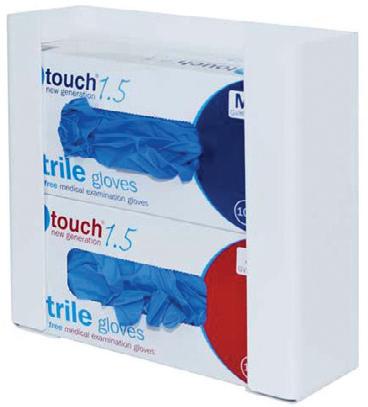
As a result, a wide range of infection control products and technologies are emerging on the market, including antimicrobial technology. Angloplas’ range of dispensers are produced in the world’s first
proven Antimicrobial PVC with silver ion technology and which is exclusive to Angloplas. This helps reduce the risk of cross infection by stopping the growth of bacteria and mould and works continuously for the lifetime of the product, reducing levels of bacteria such as MRSA, E Coli, Legionella, Salmonella and mould by up to 99.99%. For non-clinical environments Angloplas has recently launched its new Budget Range of products which are made to the same exacting standards as the antimicrobial protected ones but with lower price tags.
You can order Angloplas products directly from its website at www.angloplas.co.uk See page 17.
Launched in August 2025, Assetain delivers three core benefits: comprehensive asset visibility, budget-wise maintenance, and strategic replacement planning. Rather than reactively repairing faulty devices, care homes, NHS Trusts, and SEND schools can now oversee the health of all moving and handling equipment with confidence and clarity.
At its heart lies a meticulously maintained, datarich register. The programme initiates with a full audit of existing assets; each entry is ported into a dynamic system setting tailored maintenance thresholds, repair-vs-value benchmarks, and clear end-of-life triggers.
Field engineers play an essential role - capturing photographic evidence of faults and functional
Timely alerts are a standout feature. When equipment approaches “no-longer-manufactured” status or reaches its recommended service term, Assetain sends clear notifications - empowering teams to anticipate challenges before they arise. Regular updates of the full asset register ensure stakeholders remain fully informed of the condition and availability of their entire fleet.
Assetain isn’t just maintenance - it’s strategic careasset stewardship that saves time, reduces costs, and safeguards patient well-being. A smart, forwardthinking programme like this helps care providers shift from reactive firefighting to purposeful planning.
In short, Assetain elevates care facility operations into a new era of efficiency and confidence - where every asset is seen, scheduled, and systematically sustained.
www. medaco.co.uk/solutions/assetain/
Consort Claudgen now offers Wi-Fi-enabled low surface temperature heaters that can be controlled through a digital control panel on the heaters or the Consort Connect app. Features include a 7-day timer with 24 daily heating periods, a lock function, open window detection, custom automation, and energy consumption statistics.
Additionally, LST heaters with Wi-Fi and occupancy sensor have a self-learning control ability which uses inbuilt occupancy sensors to detect and learn a

user’s weekly presence in a room. It then creates a heating schedule and automatically warms the room according to the detected or predicted occupancy. When the space is unoccupied, the heater will conserve energy by switching to a setback temperature or frost protection mode.
Consort's website also offers BIM objects for download.
See page 17 or 01646 692172 | sales@consortepl.com | www.consortepl.com
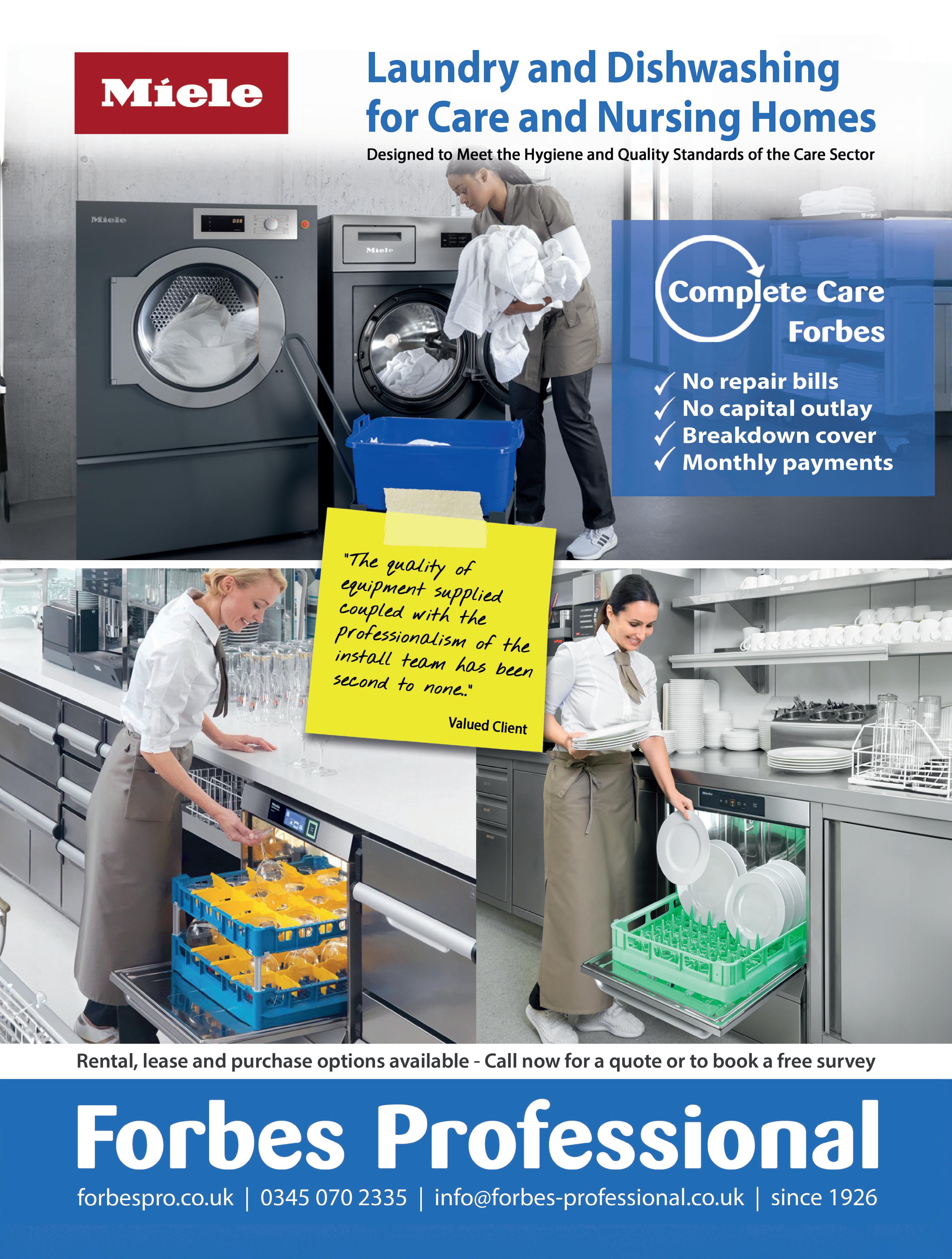
Care Show Birmingham, returning to the NEC Birmingham on 8-9 October 2025 has announced its conference programme, featuring an impressive 120+ sessions, 8 focused theatres, and 200+ expert speakers. With ongoing policy changes, regulatory developments, and increasing financial pressures facing the sector, there’s never been a more important time for senior leaders and care professionals to stay informed and connected.
The 2025 programme has been thoughtfully curated to tackle the biggest challenges in care, offering vital updates on government policy, CQC changes, and sector innovations. Whether attendees are new to the care sector or leading teams at the very top, Care Show Birmingham will be the place to grow, connect, and lead change.
SESSIONS INCLUDE:
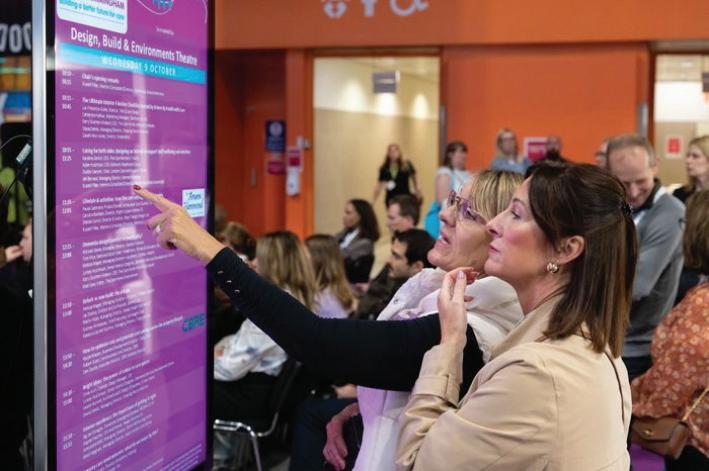
updates: what will the fair pay agreement look like 15:10 – 15:40 | Business Theatre | How to prepare care staff for a CQC inspection
Care Show Birmingham is also getting a vibrant makeover with a brandnew funfair theme, bringing fun, celebration, and community spirit to every corner of the event. Plus, there will also be an official Care Show After Party on the evening of Wednesday 8 October, open to all registered delegates, exhibitors, and speakers. Attendees can expect live music, food, drinks, and entertainment in a night of unmissable networking and celebration.
Care Show Birmingham is free to attend for care and healthcare professionals, those working for a social care provider, allied healthcare, NHS, public sector professionals, chefs and caterers, architects and interior designers. It's the place to be for the most up-to-date knowledge and guidance around policy and regulation changes to support you in providing the best quality of care possible in the changing climate. The only social care event you need to attend The full conference programme can be viewed at: www.careshow.co.uk/conference-programme The 2025 edition of Care Show Birmingham takes place on 8-9 October at NEC Birmingham. Delegates can register to attend for free at: www.careshow.co.uk/carer

Introducing Access Smart Notes for Care Planning.
We’re excited to introduce the upcoming release of Access Smart Notes - A new AIpowered tool designed to reduce admin, saving time and money for care providers like you.
Smart Notes helps you create accurate, detailed notes, using AI to write up forms in moments and and deliver them directly into Access Care Planning. That means less time writing, and more time with the people who matter most.
Access Smart Notes key features and benefits:
• Save thousands of pounds every year on Care Assessments without a drop in quality.
• Capture detailed notes quickly and efficiently in the moment.
• Reduce errors and missed details with templates customised to your service
• Integrated with Access Care Planning for real-time updates saving hours of admin time.
• Built-in AI accuracy to streamline the documentation process to reduce risks and improve the quality of your notes
• Full audit trail for peace of mind and transparency
Visit www.theaccessgroup.com or see us on Stand H40 at The Care Show.
Satellite Finance Limited will be exhibiting at the Care Show Birmingham 2025 on the 8th-9th October at the NEC on Stand: K70.

Since 2008, Satellite Finance has been a trusted commercial finance broker specialising in funding solutions for care homes and healthcare providers. Based in Newport, Wales, Satellite Finance has a range of tailored business finance services from asset finance, business loans, and mortgage funding to support care home acquisitions, refurbishments, and equipment purchases.
If you’re looking for Asset Finance to help grow your business, new equipment is a must. Satellite Finance can help you to get all the equipment you need, without making large dents to your cashflow. With Asset Finance you don’t have to pay for everything upfront, you can

spread the cost of your equipment over the period of time its expected to be used for which can be from 12-72 months, allowing you to spend more money on higher standard equipment without feeling the economic pinch.
Perhaps you’re looking for a loan for a new building, or to make a refurbishment in a care home or surgery? Satellite Finance works with you to choose the best loan for your project. Choose from either a Business, Professional, Personal, or Corporate & VAT loan, and because Satellite Finance has access to over 40 specialist lenders that have facilitated over £100 million in funding for more than 4,500 clients, you know you’re in good hands.
For a Mortgage Loan, Satellite Finance can help you to request a loan for anything between £50,000 – £40 million. With rates starting from just 2.25% above Bank of
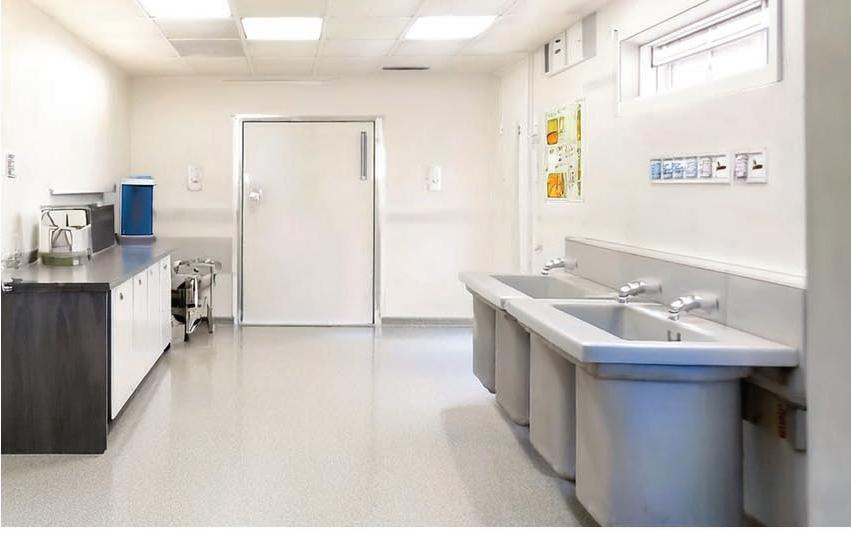



England base rate, your repayment period can be anywhere between 5 and 30 years. Unlike other finance companies, Satellite Finance’s terms won’t feel like a burden, as they’re both competitive and flexible, ensuring you get an arrangement that is affordable and convenient for you. Having close relationships with over 40 high street banks, challenger banks, and regional lenders all over the UK, Satellite Finance is experienced and up to date with the best lenders who offer the best rates to the healthcare sector.
Come and meet the team at the Care Show Birmingham and explore their comprehensive range of financial solutions.
Every day, care organisations are working tirelessly to deliver essential support in the face of growing needs and rising costs. However, too many providers are stuck balancing tight budgets, having ‘just enough’ to stay afloat. The hard truth is, just enough isn’t enough—not for the providers, not for the employees, and certainly not for the clients who depend on them.
Rising operational costs—from wages and the Fair Pay Agreement to energy bills—compound historic underfunding and financial pressures. And demand for care continues to increase, creating a widening gap that organisations are often forced to fill with limited resources.
Providers then end up in survival mode, unable to invest in improving their services for today and the future.
THE NEED TO RETHINK FINANCIAL STABILITY
Care providers need to have healthy finances in social care, and that doesn’t come at odds with delivering compassionate care.
A financially strong organisation has the breathing room to improve services, retain employees, and innovate to make a meaningful difference to the lives of people they support. And having this financial security means providers can actually plan for the future rather than constantly reacting to the present.
BENEATH THE SURFACE

Social care organisations face a web of financial intricacies. Local authority support often comes with layers of red tape. Managing aged debt and resolving invoicing errors take a significant amount of time that few organisations can spare. Regulation and compliance require meticulous reporting, and the sheer volume of admin work to manage all these leaves teams stretched thin. At the same time, there’s an expectation for providers to keep doing more. But without the right tools and systems in place, these compounded financial struggles threaten to overwhelm this indispensable sector.
Social care providers aren’t just keeping their organisations alive; they’re safeguarding the wellbeing of countless individuals and families.
Providers need to be able to prioritise long-term financial resilience. And part of this means having the tools—including robust financial management softwaresimplify manual processes, optimise resources, and reduce inefficiencies. By championing financial sustainability, we’re creating conditions where employees can thrive, where clients receive the quality of care they deserve, and where the sector can confidently meet future challenges.
Find out more at: www.oneadvanced.com/ai
See the advert on the facing page or visit OneAdvanced on

We’re excited to be heading to the Care Show in Birmingham on 8–9 October – and we’re bringing something brand new with us.
At this year’s event, we’ll be launching the Data Policy Builder, a powerful new tool designed to make data protection policies simple, practical, and meaningful for your organisation. Too often, policies sit on a shelf, written in complex language that no one reads. The Data Policy Builder helps you create living documents that reflect your service, speak to your staff, and actually shape day-to-day practice. By guiding you step by step through the process, the tool ensures your policies are DSPT-compliant and tailored to your unique risks and needs. Whether you run a single care home, a homecare service, or a larger group, this tool will help you write policies that your team can understand and use – supporting safer care and better data security.
LIVE DEMO – DATA POLICY BUILDER
Join us at stand B11 to get a first look at the Data Policy Builder in our live demo session. We’ll be focusing on Bring Your Own Device
(BYOD) policies, an area many care providers struggle with. You’ll learn:
• The risks of staff using personal devices for work
• What should be included in a robust BYOD policy
• How the tool can generate a clear, easy-to-read document for you –in minutes
We’ll also be sharing which other policies we’ll be adding to the tool in the future, so you can start planning ahead.
DROP-IN HUB – YOUR QUESTIONS ANSWERED
Throughout the Care Show, the Digital Care Hub team will be running a drop-in hub where you can ask all your questions about digital technology, data protection, and cyber security. Whether you need help with the Data Security and Protection Toolkit (DSPT), want advice on cyber security risks, or just want to sense-check your approach to data sharing, we’ll be there to support you.
Come and have a conversation with us – we’d love to hear about the challenges you’re facing and the solutions you’ve found.
LIVE SESSIONS
We’re also hosting four short, interactive sessions across the two
days. Here’s what’s on:
Day One – Tuesday 8 October
11:00 – Data Policy Builder live demo
See our brand-new tool in action and walk away ready to create customised, DSPT-compliant policies that strengthen security and save you time.
14:00 – Multi-Factor Authentication (MFA) & Passwords
Find out how strong your password really is and learn why long passphrases and MFA are your best defence. Includes password challenges and quick memory games.
Day Two – Wednesday 9 October
11:00 – Talk to an Ethical Hacker
Meet Cyber Sam, our in-house ethical hacker. Ask your questions about real-world cyberattacks and take away practical tips to stay safe.
14:00 – Phishing Emails & Social Engineering
Take our phishing quiz and scavenger hunt to learn how scammers operate – and how to protect your organisation from being caught out.
Visit us at Stand B11 – whether you want to watch a live session, try out the Data Policy Builder, or simply talk through your digital questions, we’re here to help.

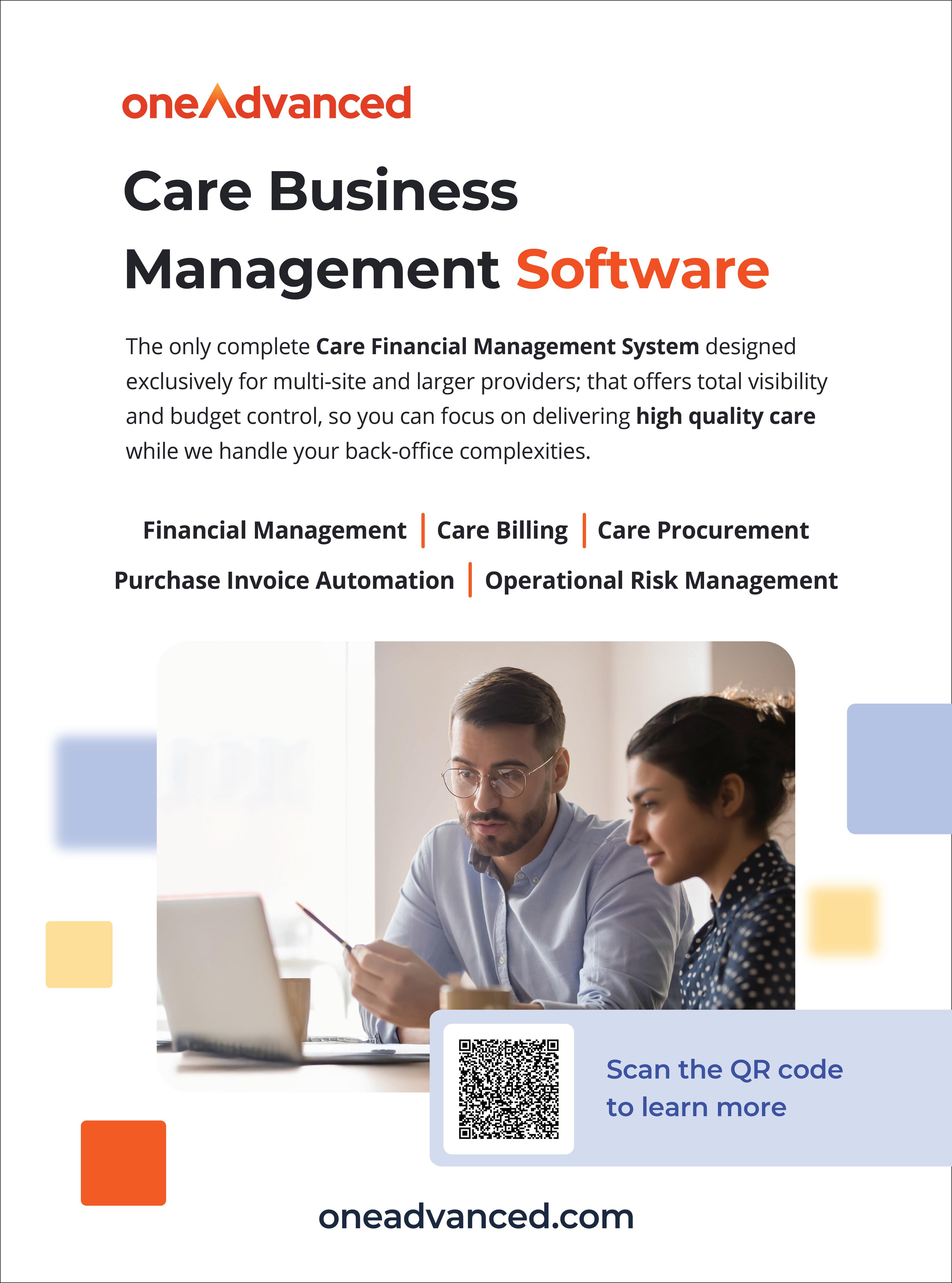
SEE US ON STAND L50 AT THE CARE SHOW


with real-time pressure mapping
visit stand M35 at Care Show Birmingham & stand J42 at OT Show

Sensore launches a smart pressure ulcer prevention system, a breakthrough technology combining a smart fabric sensor mat with an intuitive app and powerful AI analytics.
Today’s best practice is reactive: manual checks and frequent repositioning. Sensore flips the model - continuously monitoring pressure distribution in real-time and providing simple preventative alerts, so users stay protected while easing the daily vigilance demand on users and carers.
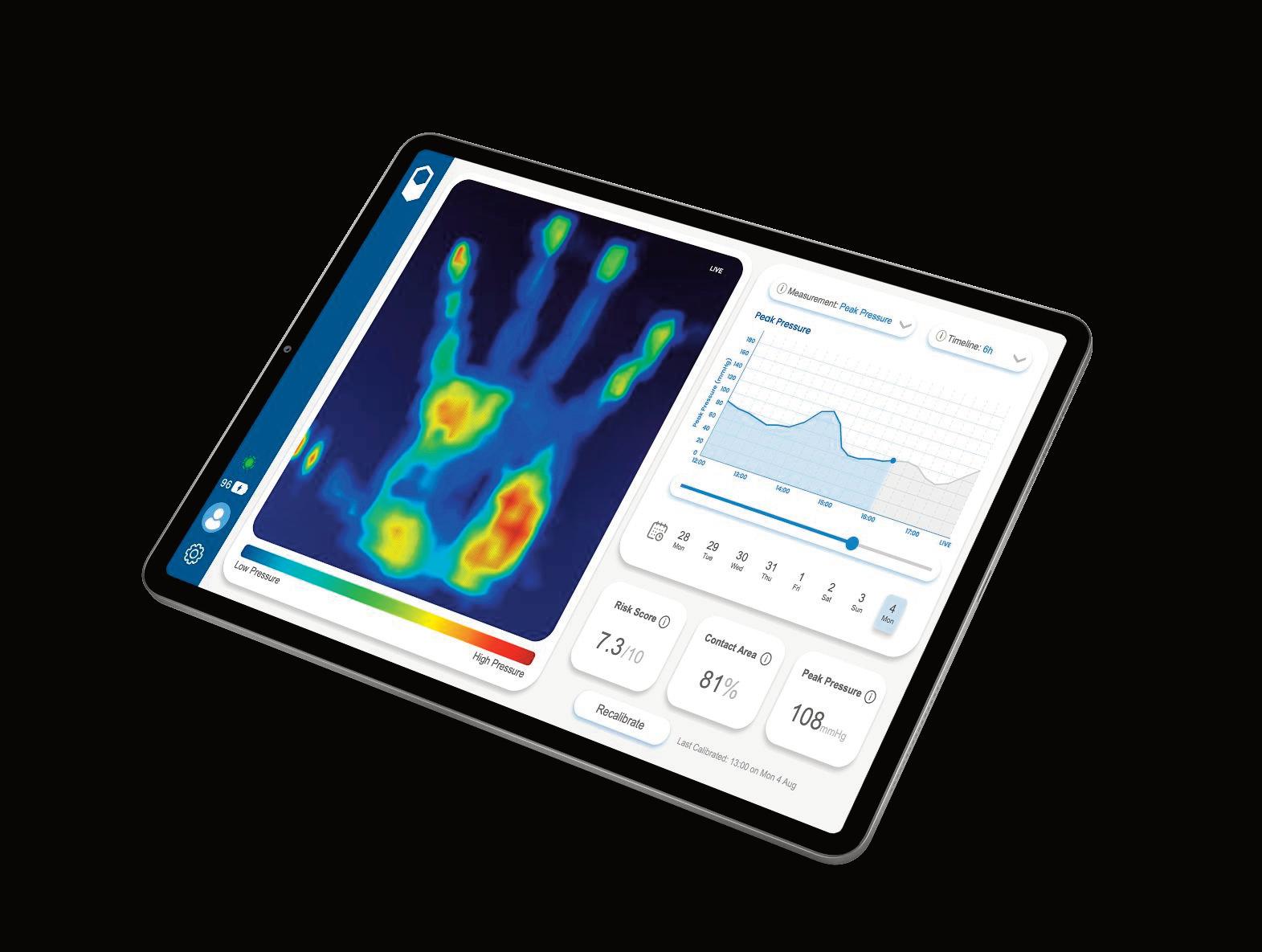
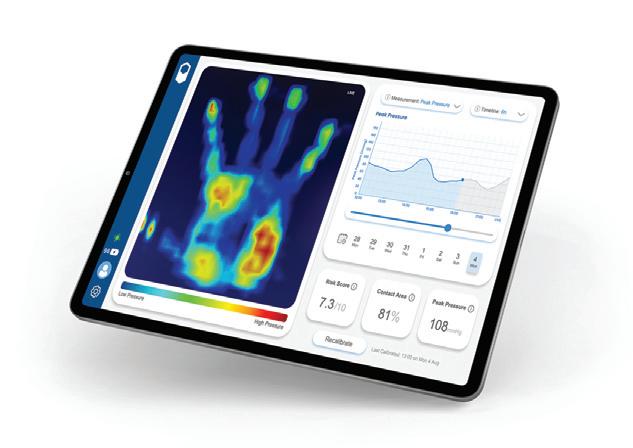
A personal early-warning system that integrates seamlessly into any wheelchair or bed, Sensore is built for elegant simplicity - restoring peace of mind for wheelchair users and supporting higher-quality, more consistent care. For care providers, Sensore can help
standardise prevention workflows and contribute to meaningful cost savings, while building a unique dataset to advance pressure-injury research.
Sensore is supported by clinical experts: "We believe Sensore’s continuous pressure monitoring will have a transformational impact on our ability to prevent and manage pressure ulcers effectively, while driving measurable improvements in patient care quality" - NHS Consultant Clinical Scientist Specialist in Clinical Biomedical Engineering
Visit www.sensore.health for more information, to sign up for early access and book a free demo. See us on Stand M35 at The Care Show
For over 60 years, Fowler UK has been proud to support the care sector with dependable commercial laundry and catering equipment, backed by expert service that puts people first. As a family-run business, we understand the pressures care providers face, and we’re committed to delivering solutions that keep vital operations running smoothly.

with comprehensive compliance and maintenance services such as gas safety inspections, preventative maintenance visits, duct cleaning and kitchen deep cleaning. This all-in-one approach provides peace of mind for our customers, ensuring they can focus on delivering high standards of care while we take care of the rest.
From supply and installation of equipment, ongoing servicing and repairs, detergent packages, right through to our in-house CAD design team, we offer a ‘one-stop-shop’ solution for all of our clients laundry and kitchen facilities.
Reliability and customer service the heart of what we do. Our fast response times and high first-time fix rate mean care providers can trust us to minimise downtime and keep essential services running without interruption. By stocking a vast range of manufacturer parts on our vans and in-house, we’re able to resolve issues quickly and effectively.
Beyond equipment sales, we support care facilities
“Supporting the care sector has always been central to our business,” said William Fowler, Director at Fowler UK. “We know how important reliable equipment is for both residents and staff, and we’re proud to play our part in helping care homes provide safe, efficient, and welcoming environments.”
With a proven track record, family values, and a commitment to service, Fowler UK remains a trusted partner for care providers nationwide.
We’d be delighted to discuss how Fowler UK can support your facility. Visit our stand - G02 at The Care Show, NEC, on 8–9 October, or contact our team today to find out more.

Each year Skopos launch new fabric collections, developed specifically with Care interiors in mind. Specialists in key attributes which help keep homes looking fresh and stylish (soil resist, antimicrobial) interior schemes can easily be pulled together using a mixture of prints, textures and plains. Leading the way at this year’s show, Skopos will be highlighting their new range of printed designs, from the Skopos STUDIO. Available on basecloths for upholstery, bedding and curtains, the fabric choices have grown, to include a waterproof and antimicrobial velvet upholstery and a textured woven upholstery. Designs from the STUDIO are split into different categories, including stripes, florals, geometric and textures.

Skopos can offer a fabric-only service or a full service; with site measure, product manufacture and installation. The Skopos team produce approximately
25,000 made-up items each year, including bed-throws, cushions and pairs of curtains, all manufactured by a highly-skilled team of machinists, cutters and pattern makers; items that are delivered and installed into different contract environments.
As with all Skopos prints, the lead-times are under one week and everything is produced locally, in Yorkshire.
Skopos also offers a Bespoke design service, for statement interiors that require something different. Our design team will work alongside you to develop ideas which can make your caring interior personal, branded and unique. For samples of any of our collections visit www.skoposfabrics.com and we look forward to catching up at the NEC on 8th and 9th October on Stand B50
PASS by everyLIFE Technologies, UK and Ireland’s leading digital care management platform, will be showcasing its award-winning software at this year’s Care Show in Birmingham.

Used by over 1,200 services and supporting more than 85,000 care professionals every day, PASS brings care planning, medication management, rostering and finance together in one simple system. The platform helps providers save time, reduce risk, and improve compliance - giving care teams more time to focus on the people they support.
Visitors to the Care Show will also be able to see PASSgenius™, the suite of AI-powered insights now built directly into the platform. PASSgenius™ analyses care notes and rostering data to highlight risks, changes, and trends that may otherwise be missed. From punctuality dashboards to health note summaries, it turns everyday information into clear, actionable insight. Robin Batchelor, CEO at everyLIFE Technologies, said: “The Care Show is always a fantastic opportunity to meet providers, share ideas, and demonstrate how digital tools can make a





The NHS Long Term Plan is reshaping healthcare to make it more personal, preventative, and accessible. At the heart of this transformation are three strategic shifts: delivering more care in the community, embracing digital solutions, and focusing on prevention rather than treatment. For patients and carers, these changes mean more support at home, fewer hospital visits, and better tools to manage health.
One innovation helping to make this vision a reality is Evondos—an automated medication dispensing service and virtual care platform designed to support safe, timely, and consistent medicine use at home.
SUPPORTING INDEPENDENCE AND SAFETY
Evondos Anna Medicine Dispensing Robot is installed in the patient’s home and dispenses pre-packed doses at the right time. It provides spoken instructions and visual cues, making it easy to use for people of different ages and abilities. If a dose is missed, the medication is stored safely and securely inside the device until a carer or healthcare professional can follow up. This is especially important for patients with time-sensitive or multi-dose medication schedules, such as those managing diabetes, Parkinson’s, or heart conditions. Evondos ensures that every dose is delivered as prescribed, helping prevent complications and hospital admissions.
PEACE OF MIND FOR CARERS
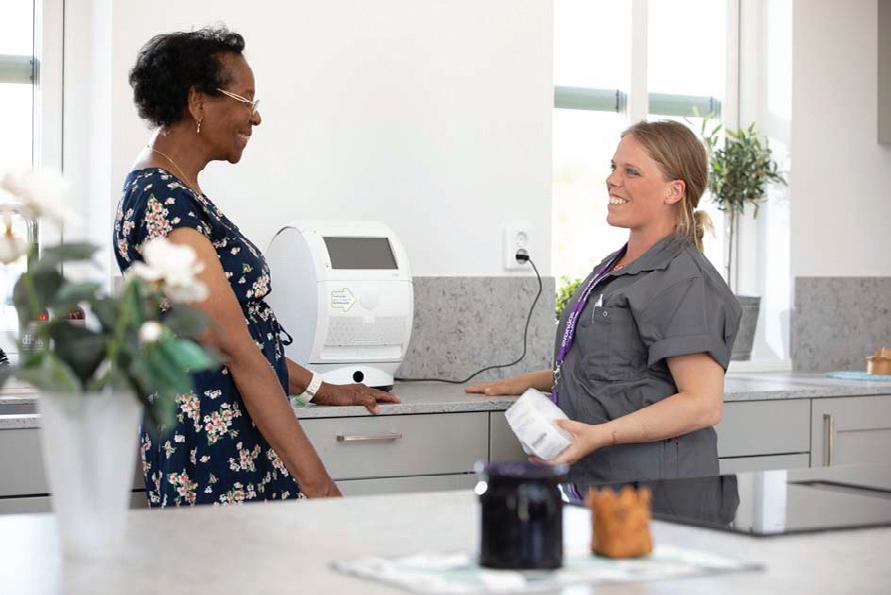
For carers—whether family members or professionals—Evondos offers reassurance. You don’t need to be present for every dose, and you’ll be notified if a dose is missed. This reduces stress and allows carers to focus on other aspects of support, knowing that medication is being managed reliably.
Evondos also supports virtual care through its built-in two-way video camera, allowing care professionals to check in with patients remotely. This adds a personal touch to digital care and helps maintain strong relationships between patients and their carers.

Care home residents, new staff and visitors can all benefit from clear way-finding signage, which is why the Care Quality Commission places great importance on a well thought out signage scheme – especially where memory care needs demand specialist input. Add the need to reflect a group's branding objectives whilst working within interior design guidelines, and the challenge for managers tasked with sourcing signage is knowing who to call. With nationwide coverage, Taylor and Pickles have a reputation for well thought out signage schemes which effectively and discreetly direct people around care homes for many of the UK’s leading care providers.
Starting with a client’s briefing, Taylor and Pickles carry out a comprehensive site survey and develop
Evondos includes a built-in roaming cellular SIM card, which means it connects automatically—no home internet or technical setup is required. Patients don’t need to understand or manage any digital connectivity. This makes Evondos accessible to everyone, including those who are not confident with technology or live in areas with limited digital infrastructure.
TRAVEL MODE FOR FLEXIBILITY
Evondos also includes a travel mode, allowing patients to take their medication with them when away from home—whether visiting family, going on holiday, or staying in respite care. This keeps routines consistent and supports independence, even when life changes temporarily.
EQUALITY
Evondos is built with equality at its core. Its intuitive design, secure medication handling, automatic connectivity, and virtual care features make it accessible to people from all backgrounds. Whether you’re living alone, supported by carers, or part of a busy household, Evondos fits into your life and helps you stay well.
Evondos supports the NHS’s three strategic shifts by delivering smarter, safer, and more accessible care. For patients, it means more independence and better health. For carers, it means peace of mind and less pressure. With support for complex medication schedules, secure storage, travel flexibility, virtual care, and no need for internet knowledge, Evondos is helping bring the future of healthcare into everyday life.
If you or someone you care for could benefit from help with medication, speak to your local care team about Evondos. It’s a powerful solution designed with real people in mind.
See the advert on the facing page for details or see Evondos at The Care Show on Stand C32.
detailed design proposals. Often working with a client’s interior designers, the team at Taylor and Pickles create options for bespoke signs which provide clear directions and are sympathetic to the client’s creative concepts. This custom approach prevents signs looking out of place, or like “off the shelf” stock items.
Of course, there are times when greater visual contrast is essential. Residents with memory care needs require a bold and sometimes bright scheme which might seem heavy handed elsewhere. When the special needs of these residents are added to the brief, clients can be confident that Taylor and Pickles’s approach, guided by leading academics and their experience of helping many homes through the Care Quality Commission signage inspection process, will pay off. Often a multi-tiered approach allows signs across different zones in a development to have a cohesive look yet serve differing care needs.
Taylor & Pickles also recognise a client’s commercial needs. Timely, unobtrusive surveys – effective design and tidy installation by in-house teams make Taylor and Pickles the chosen signmaker for many of the UK’s leading care home groups.
See the advert below for details or see us on Stand F72
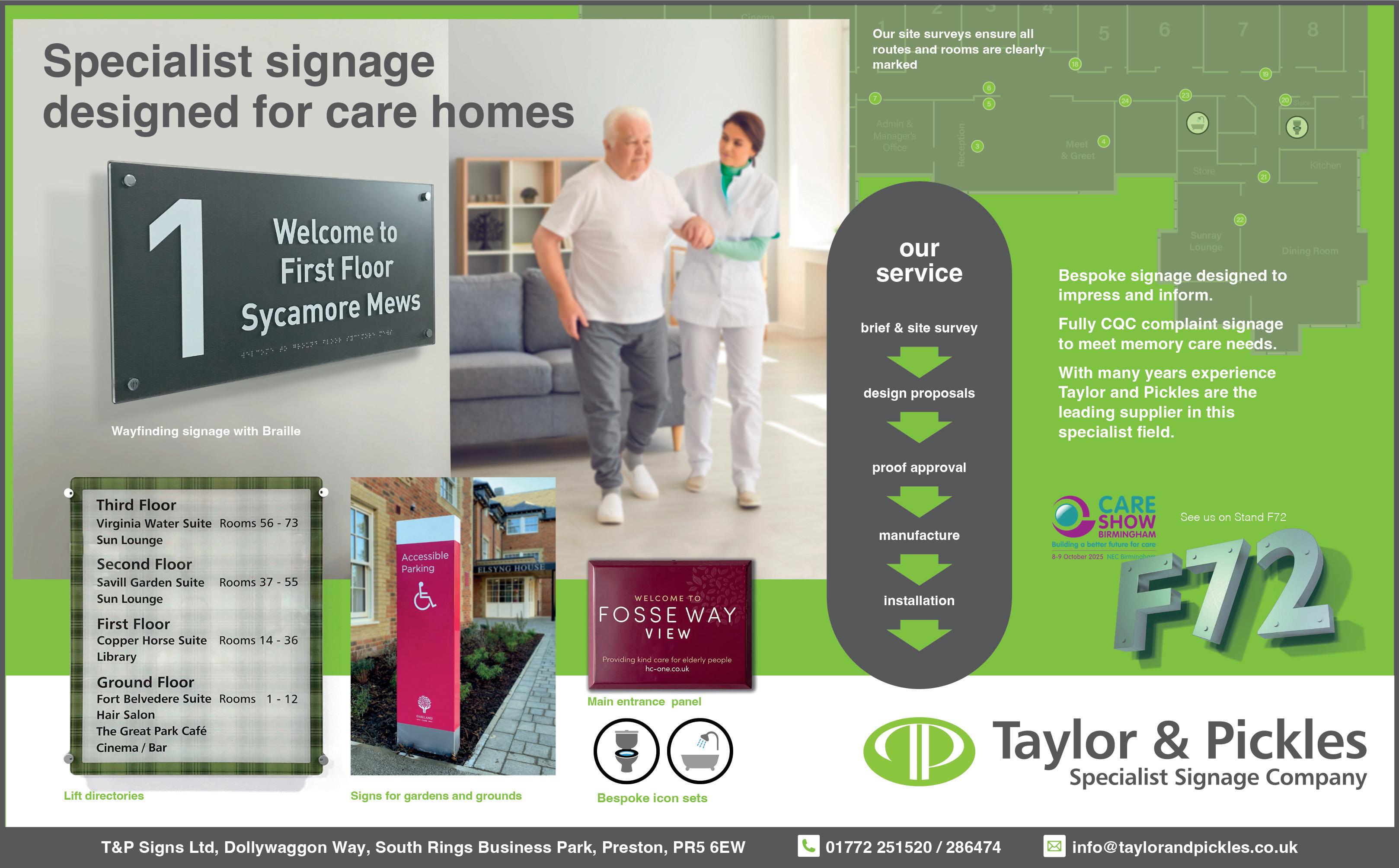
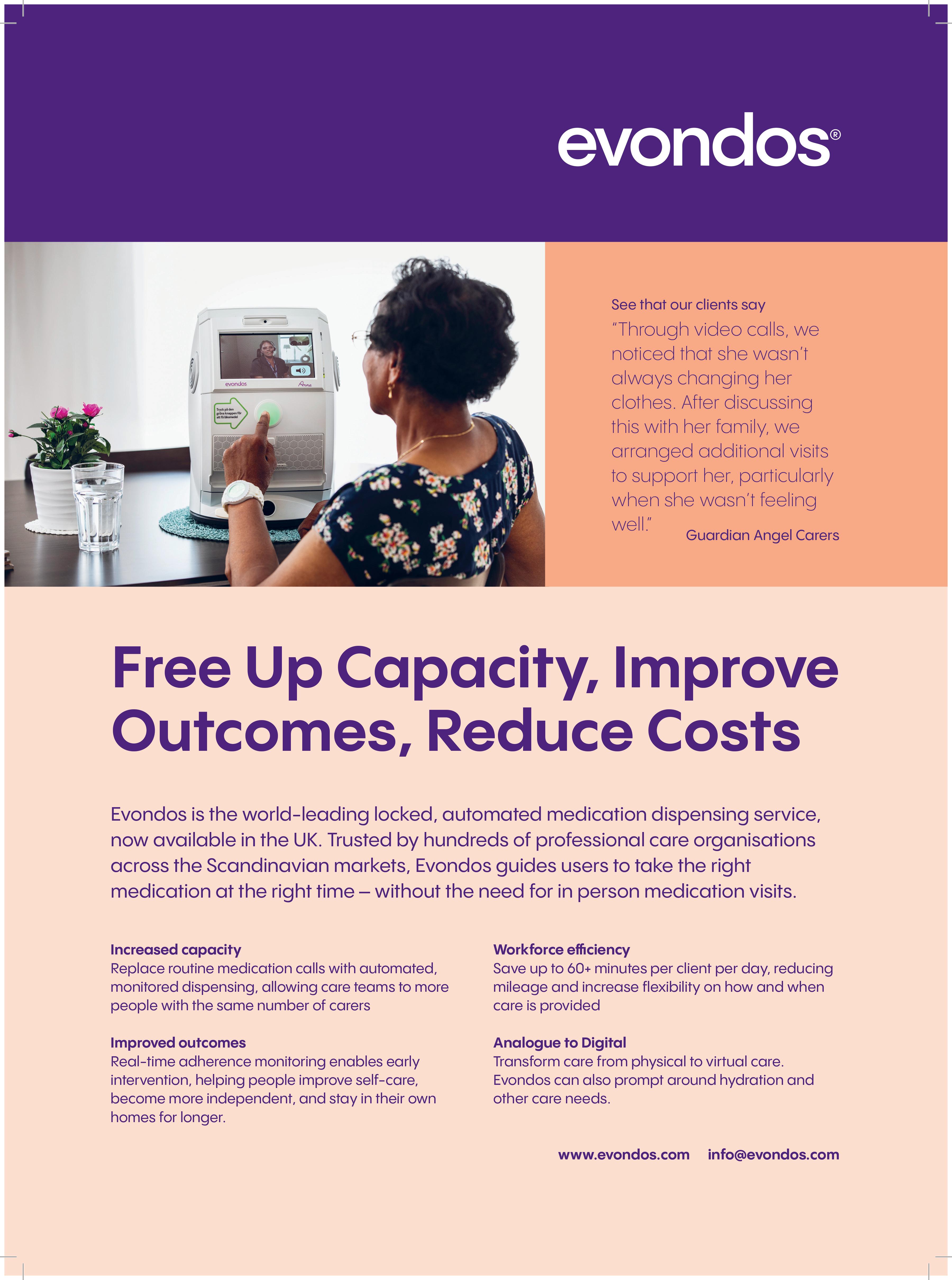
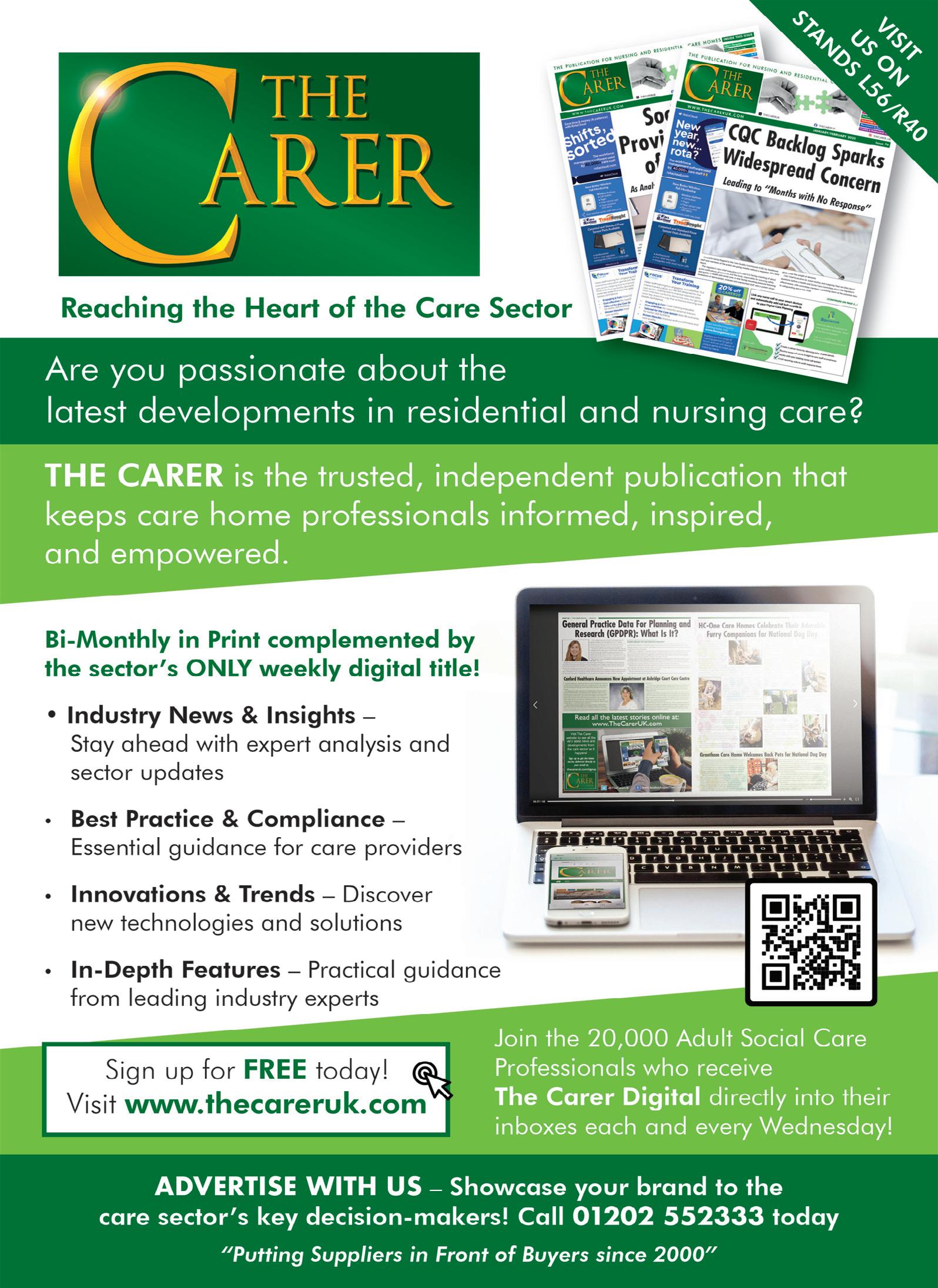

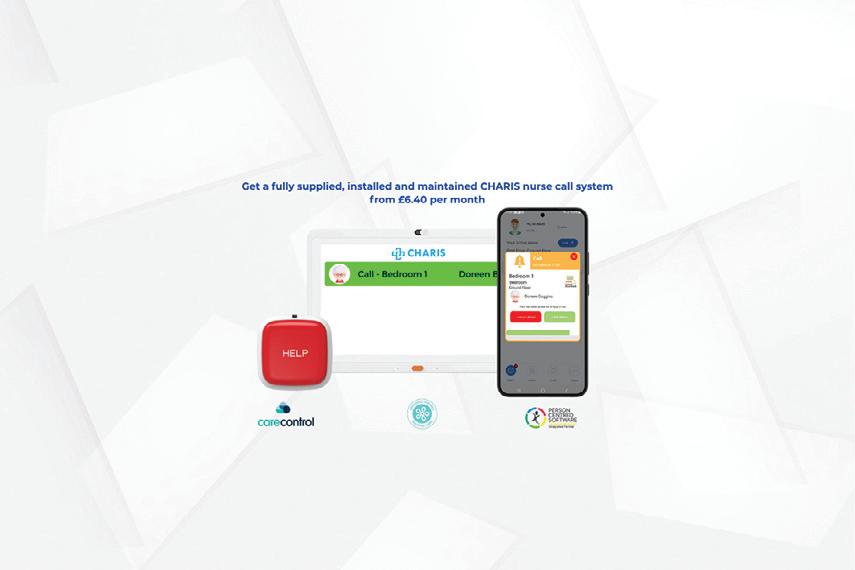



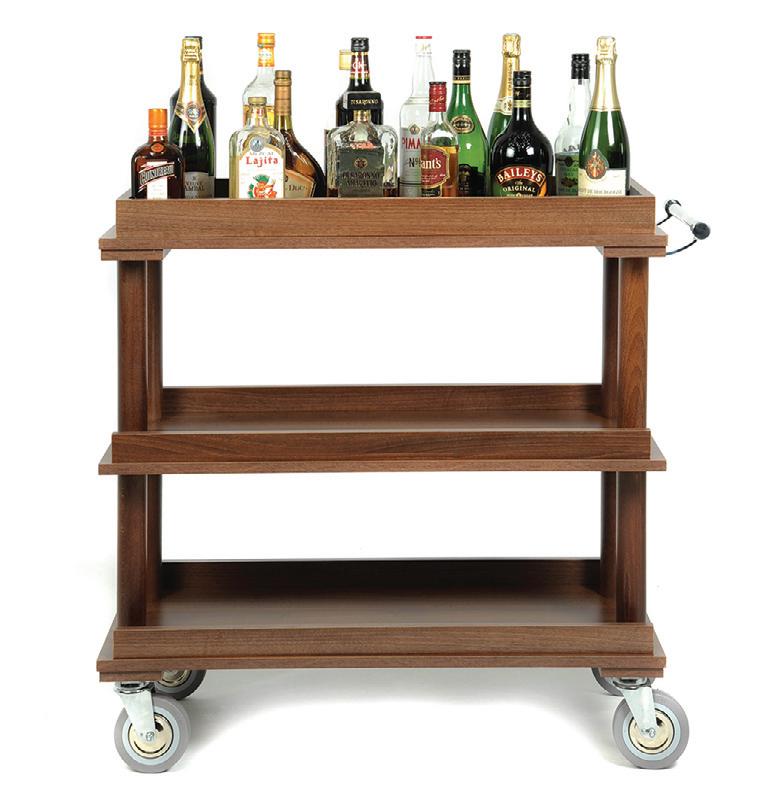
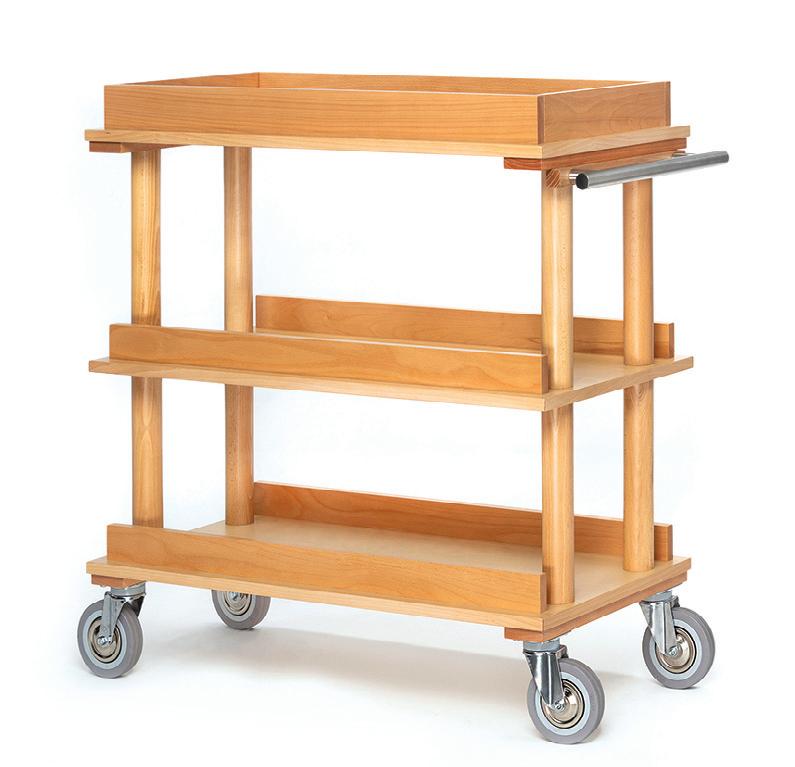
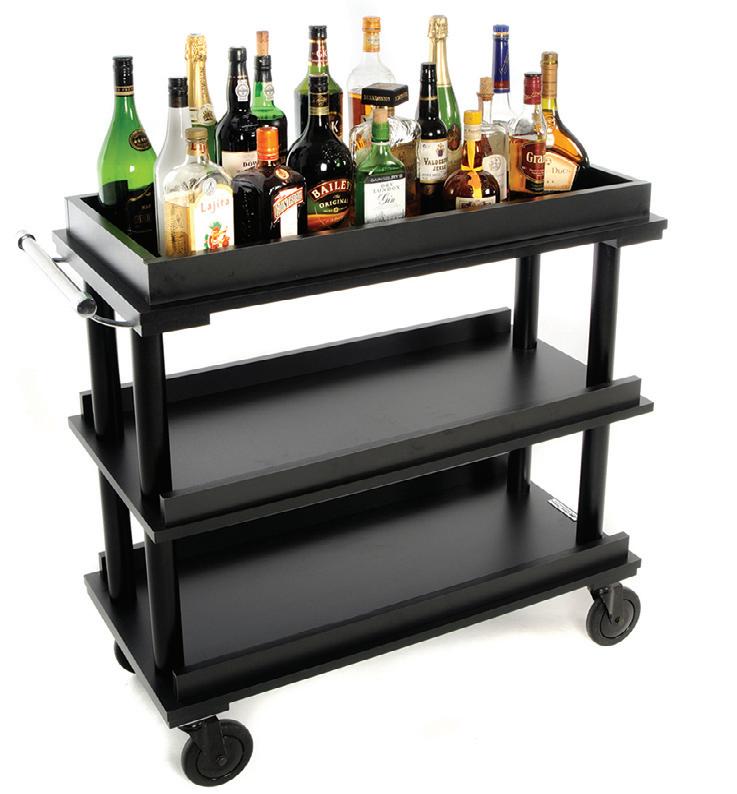
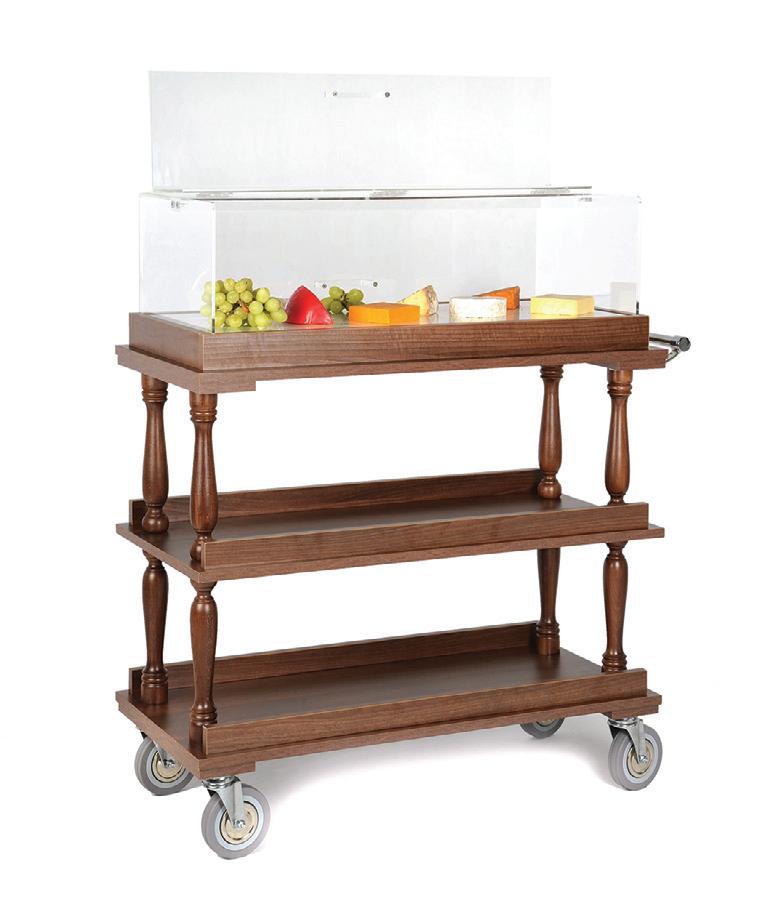
Ontex are proud to announce that we will be showcasing at the Care Show at the NEC in Birmingham on the 8-9th October. You will find us at Stand J15 and we would love for you to come over and say hello!
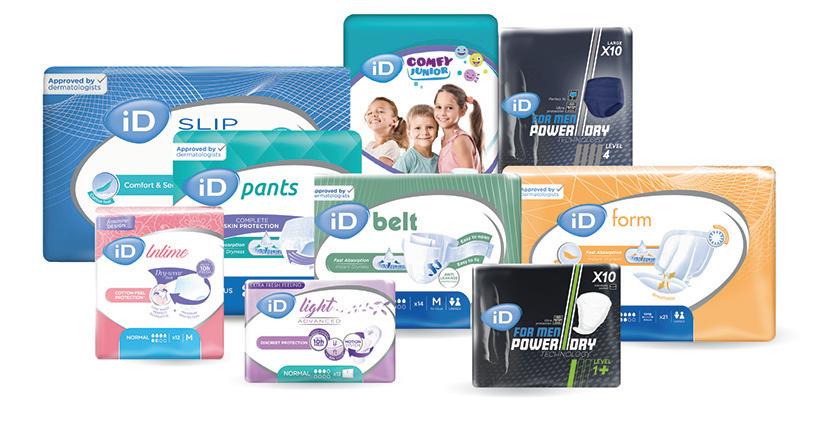
Our team will be there to offer advice and support on how to use our range of baby care, feminine hygiene and adult incontinence care products. Talk to us about our conti-
nence training sessions and the work we do with unpaid carers. At Ontex we work hard to develop our people and work to deliver sustainable value to our shareholders, partners, customers and suppliers, while making a positive impact on the communities around us. To find out more visit: Ontex.com
"23 years, operating 4 Devon Nursing homes, has been pretty tough, as anyone in social care, knows, only too well. And if it was hard already, after 2024 budget, it's just got harder.
Anyway, at heart, I am just customer of Eden Alternative, and it was a stroke of luck to come across this whilst on holiday in New Zealand in 2009. It started in USA in 1994 and now runs in 22 countries.

The fact that I am now involved with this not-forprofit organisation (in the UK area) came about when one of the 2 main UK directors died suddenly just before Covid. But it's something I have run with for 11 years to help make 'vision' a reality, not a struggle. So, being both a customer and helping the admin seems quite natural.
It is a modern philosophy of care, but moreover,
it's a programme that is straight forward, tried and tested for 30 years and really works.
Its member care organisations generally become trainers for their own teams, and run it themselves. The programme is run in person over 2-3 days or online 1 hr a wk for 7 weeks. You choose.
It addresses loneliness, helplessness and boredom and operates through 10 principles to underpin 7 critical domains of wellbeing.
Moreover, it's effective, transformational and really works. As residents, and team members wellbeing, matter so much , it's a must, in my opinion.
Geoffrey Cox Southernhealthcare.co.uk
eden-alternative.co.uk" See us on Stand M55.
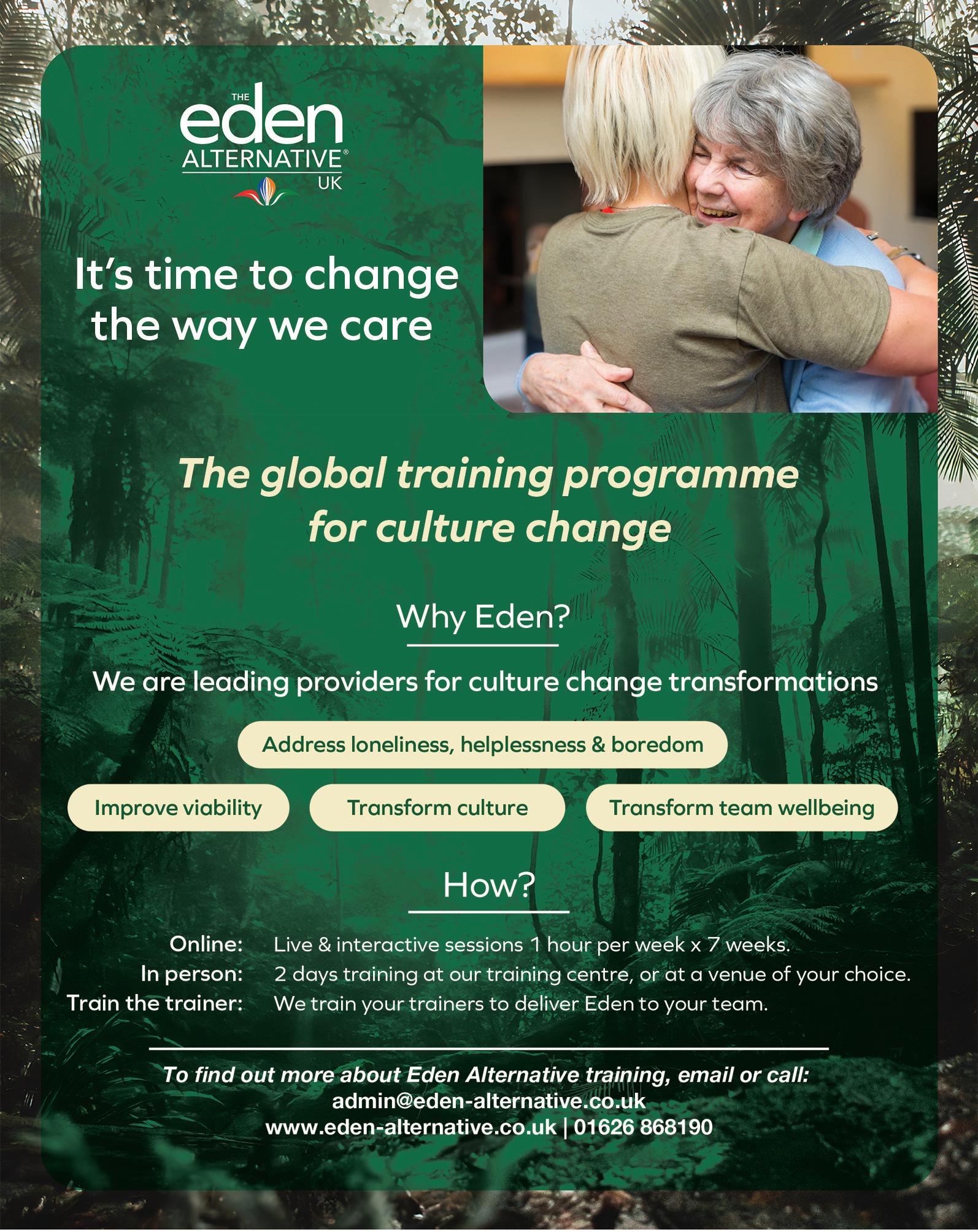
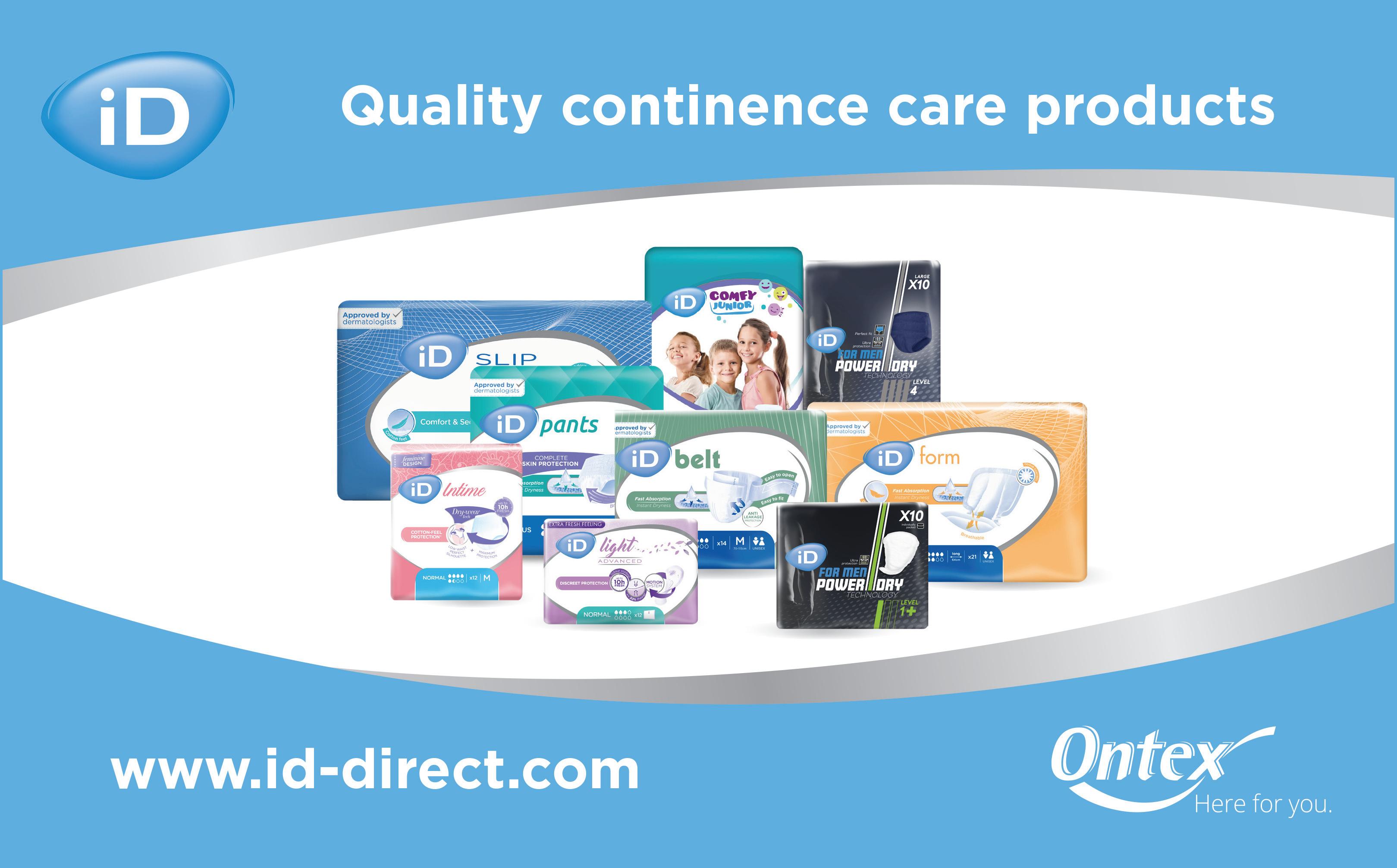

In the complex world of care-home medicine management, consistency and reliability are everything. From ensuring the right medicines arrive on time, to providing specialist support and training for staff, a single weak link can jeopardise the safety and well-being of residents. That is why more and more care providers are turning to Care Quality Pharmacy – a national, care-home-only distance-selling pharmacy – to deliver a true one-pharmacy solution.
CONSISTENCY AND SIMPLICITY
Running multiple homes often means juggling relationships with several local pharmacies. This can lead to variations in service levels, communication gaps and unnecessary administrative burden. By partnering with a single specialist pharmacy, care providers enjoy a unified approach across every home. Care Quality Pharmacy provides guaranteed monthly delivery dates, centralised prescription management and a dedicated Key Account Manager, ensuring that every home receives the same high standards of service.
ADVANCED TECHNOLOGY AND COMPLIANCE
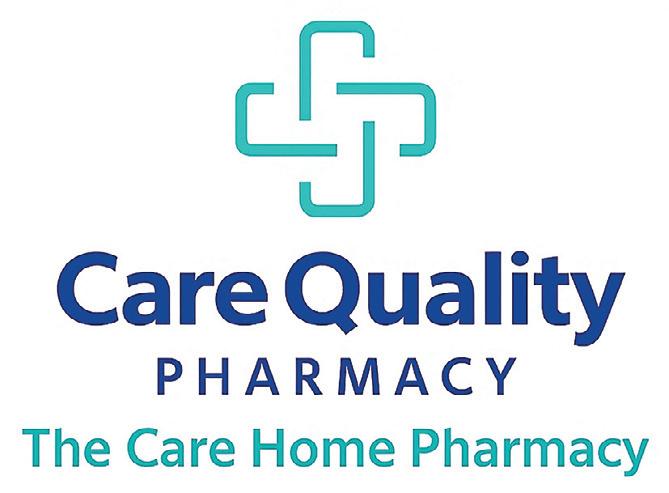
Care Quality Pharmacy harnesses advanced AI-driven prescription checking and integrates seamlessly with leading electronic MAR (eMAR) systems. These innovations reduce the risk of dispensing errors and give care teams real-time oversight of residents’ medication records. The pharmacy’s robust auditing and returns collection processes support full regulatory compliance, while scheduled annual training sessions
keep staff confident and up to date with best practice.
OPERATIONAL EFFICIENCY AND COST SAVINGS
A one-pharmacy solution eliminates duplicated processes and frees up valuable staff time. With Care Quality Pharmacy’s dedicated communications team liaising directly with GPs, homes save hours previously spent chasing prescriptions or clarifying medication queries. Interim requests are handled swiftly – often the same day –and returned medicines are collected routinely, further reducing workload and waste.
A PARTNERSHIP BUILT ON TRUST
Perhaps the greatest benefit is peace of mind. Care Quality Pharmacy’s national infrastructure, experienced team and proactive approach mean care-home
cutting-edge technology and a commitment to personalised support, making it the trusted partner for care homes across the UK. Meet us on Stand K01 at The Care Show or see the advert on the back cover for further details.
they need to deliver safe, high-quality care. This is where blended learning comes into its own.
Blended learning recognises that effective training goes beyond theory. Knowledge is important; staff must first understand the what and the why, however knowledge alone doesn’t always prepare them for the realities of a care setting. Skills need to be practised, rehearsed and refined in an environment that’s safe before they are put into practice with residents or service users. When staff build confidence through role play, simulation, and guided practice, the leap from theory in the classroom to the real world becomes less daunting. The next step is proving capability on the job. Competency assessments connect learning with practice, giving managers assurance, regulators evidence, and service users confidence in the care they receive. But learning shouldn’t end there; structured pathways that map skills to roles, prompt refreshers, and track development over time keep staff on course,
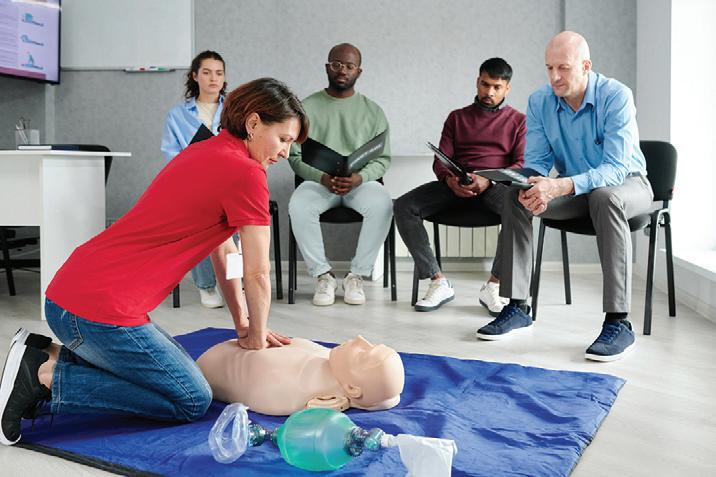
turning their training into a process of continual growth which is also aligned with Skills for Care standards and expectations set out by CQC. The impact on organisations is clear – teams feel supported and this improves retention, which in the Health and Social Care sector is more important now than ever. Families, inspectors, and service users see a higher quality of care, and managers gain reassurance that their workforce is competent and confident. Ultimately, blended learning creates safer, kinder, and more consistent outcomes for everyone, meaning higher care standards and greater satisfaction all round. Which is why your team deserves myAko. Blended learning is more than just an approach, it’s essential for everyone in our sector!
See us on Stand M57 at The Care Show.
ww.myako.online






By Charlotte McKay, Head Chef at St Quentin Care Homes (https://hmtstquentin.org)
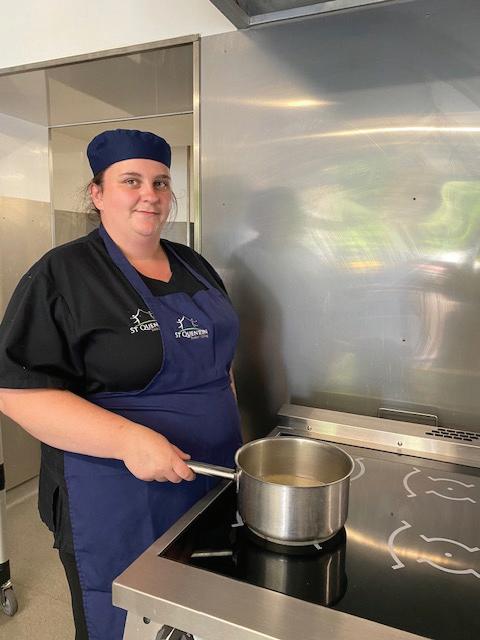
In a care home, catering can be the difference between mealtimes that are anticipated with pleasure and those that are simply endured. Care itself is rightly personalised, tailored to the needs and preferences of each resident. The same principle should apply to the food they eat. Residents and their families are entitled to expect meals which reflect dietary needs, medical conditions, and personal tastes. But delivering that level of personalisation at scale, within budget, is no small task.
The Healthcare Management Trust acquired St Quentin Care Homes almost a year ago and has made significant improvements in care delivery, infrastructure, and leadership. Catering was a big area of focus and has brought tangible results: residents returning for second helpings, heartfelt thanks from families, and a noticeable reduction in food waste. These results haven’t happened by chance; they are the outcome of deliberate choices in how we source ingredients, design menus, and create the overall dining experience.
FRESH INGREDIENTS AND A VARIED MENU
The value of using fresh ingredients over pre-packaged or heavily pro-
cessed alternatives cannot be overstated. Fresh produce boosts nutritional quality, enhances flavour, and increases the likelihood that residents will eat and enjoy their meals.
Variety is equally important. A repetitive or bland menu fails to tempt people to the dining room. Similarly, introducing a rotating weekly menu with diverse flavours and textures, including vegetarian and vegan options, will create something for everyone, which is especially important where care homes support residents of varying ages and cultural backgrounds.
Style should never overtake substance, but presentation matters and plays a vital role in whether a meal is eaten. An unappealing plate can lead to food being left untouched, no matter how nutritious it is.
Small touches make a big difference. Balancing colours on the plate, arranging food attractively, and serving it on crockery that complements the meal will encourage meals to be finished. Even something as simple as offering a platter of sandwiches with varied fillings, so residents first see vibrant colours rather than just bread, can boost appetite and engagement.
Many care home residents are unable to visit restaurants, and for them, mealtimes are often the closest equivalent to dining out. Recreating elements of that experience can lift the mood and turn a necessary routine into a highlight of the day.
Printed menus with clear, attractive typography help residents feel they have real choice and control. For some, reading a menu may even stir
fond memories of past outings and family meals. This small detail reinforces the dignity and pleasure of the dining experience.
Sharing food is a social occasion. In care homes, shared meals can foster community spirit, reduce loneliness, and spark conversation. Making mealtimes engaging and enjoyable benefits both emotional wellbeing and nutritional intake.
This means paying attention to more than just the food. Lighting, music, table layout, and staff interaction all contribute to the atmosphere. A team that works seamlessly from kitchen to dining room by greeting residents warmly, knowing their preferences, and encouraging participation can transform mealtime into a joyful daily event.
Great catering doesn’t happen in isolation. It relies on strong collaboration between chefs, care staff, activities teams, administrators, residents, and families. Open communication ensures dietary needs are met, allergies are avoided, and preferences are respected.
When everyone takes shared responsibility, residents benefit from meals that are not only safe and nourishing, but also deeply satisfying. The catering team gains valuable insight from care staff who know residents well, while residents themselves feel heard and valued.
Ultimately, catering in a care home is about far more than providing three meals a day. It’s about respecting individuality, supporting health, and creating moments of joy. When meals are thoughtfully planned, beautifully presented, and shared in a warm environment, they nourish the body and the mind.
Danielle Smith, registered nutritionist and head of nutrition at Added Value Enterprises Ltd (AVE), explains how nutritional consultancy can enhance the wellbeing of residents in care homes
In care homes, food is far more than a daily routine - it is central to health, comfort, and quality of life. Mealtimes are moments of dignity and social connection, yet the nutritional value of what is served plays a critical role in residents’ wellbeing. As awareness of food and health grows, the sector faces a vital challenge: to move beyond meeting the minimum requirements to embracing nutritional guidance that truly supports residents.
For years, catering has focused on compliance such as reducing salt, lowering sugar and limiting fat. But good nutrition is also about what we add: nutrient-dense ingredients, fresh produce and the creation of recipes that avoid over-reliance on ultra-processed products. Families are asking sharper questions about what’s included in meals and inspectors increasingly recognise the link between diet, health, and resident satisfaction. This is where effective nutrition consultancy makes a difference. Regular menu analysis and assessing how
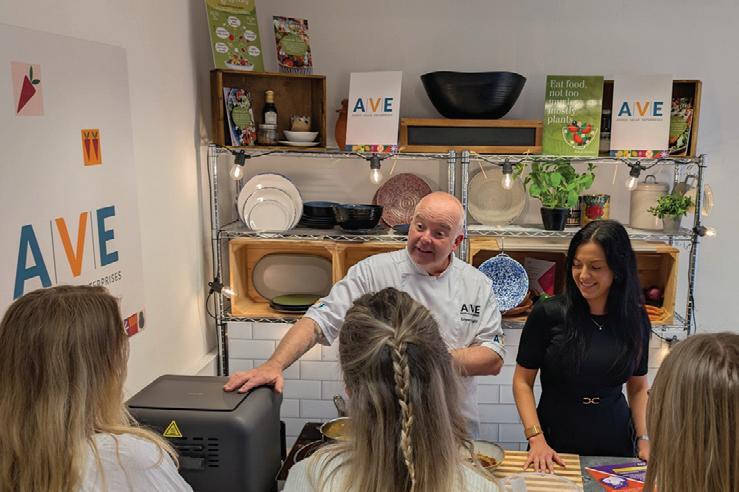
healthy a dish is can highlight where small adjustments can bring big benefits. Bespoke advice ensures meals meet specialist needs ranging from dysphagiafriendly recipes to heart-healthy dishes that promote long-term vitality. Importantly, training equips catering and care staff to understand why nutritious food matters. At AVE, we can provide guidance that is practical as well as strategic: from developing tailored menus to creating engaging wellbeing initiatives such as hydration days or condition-specific workshops. We can analyse menus to assess the nutritional value of each dish and provide advice on how to make improvements. By embedding this expertise, care homes can demonstrate both compliance and genuine commitment to residents’ health and wellbeing.
In today’s landscape, nutritional oversight is not an optional extra - it is a cornerstone of quality care. With residents and families better informed, the homes that embrace guidance will not only meet expectations but exceed them, ensuring food continues to nourish both body and mind.
See the advert on this page for details, visit www.a-v-e.com or
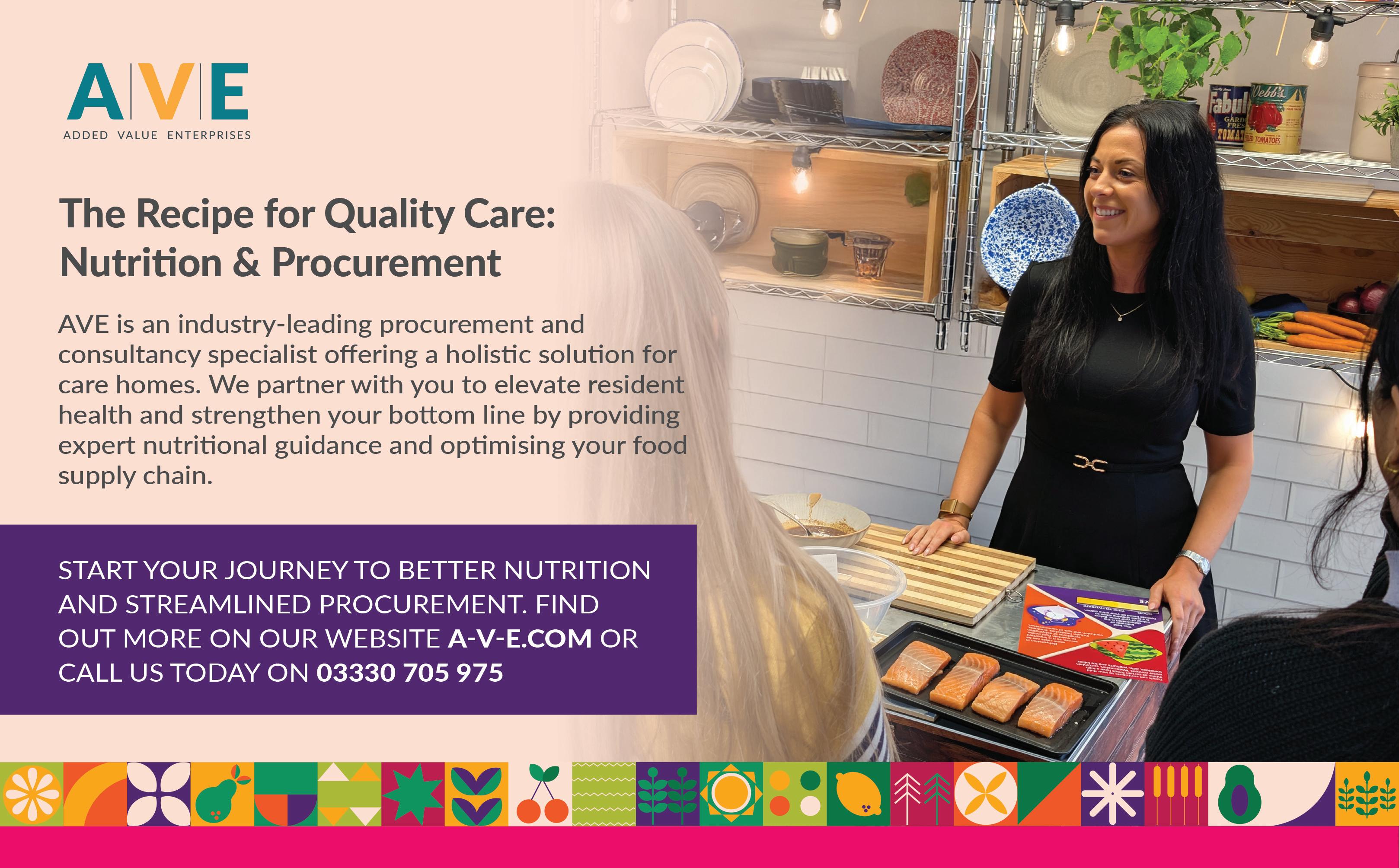
By Gemma Christie, Business Account Manager at Miele

In the care sector, operational decisions carry significant weight. Whilst frontline care rightly takes centre stage, it’s also important to remember that the kitchen plays a vital role in maintaining hygiene, supporting staff efficiency, and ensuring resident wellbeing. Among the many moving parts of the care home kitchen, dishwashing is often overlooked. This is likely because it operates behind the scenes and isn’t seen as a direct part of resident care, yet it’s a key consideration for care homes looking to provide a safe, smooth service.
With multiple meal services each day, the kitchen is one of the busiest areas in a care home. Relying on manual washing not only slows down operations but also increases the risk of hygiene lapses. That’s why investing in the right dishwashing solution is critical.
For care homes looking for reliability, hygiene assurance and longterm value, commercial solutions are the smart choice. Here are five key reasons why investing in a professional dishwashing solution can make a meaningful difference.
WHY DOMESTIC DISHWASHERS FALL SHORT
It’s not uncommon for care homes to rely on domestic dishwashers, especially when budgets are tight. But these machines are rarely up to the task. Designed for occasional household use, they struggle with the frequency and intensity of care home operations. Over time, this can lead to breakdowns, inconsistent results, and even hygiene risks. Commercial dishwashers, by contrast, are built for durability and performance. They’re tested to withstand thousands of cycles and are engineered to maintain consistent cleaning standards, even under intense pressure. For care homes, this means fewer disruptions, lower
long-term costs, and greater piece of mind.
HYGIENE RESULTS YOU CAN TRUST
It’s no secret that infection control is always a top priority in any care or medical settings, especially with residents that are often more vulnerable to illness, and where outbreaks can have serious consequences. Dishwashing equipment can help to fight against these infections and play a big role in preventing cross contamination. But only if it’s up to the job.
High-performance commercial machines, such as the MasterLine range by Miele Professional offer disinfection-grade wash cycles that eliminate harmful bacteria and pathogens. Some models also feature advanced drying systems that remove the need for manual handling, further reducing the risk of contamination. These features aren’t just nice to have, they’re essential for maintaining compliance and protecting residents.
SPEED AND EFFICIENCY IN THE KITCHEN
Care homes run on tight schedules. Mealtimes are fixed, and delays can have a knock-on effect across the day. That’s why turnaround time is a key consideration when selecting dishwashing equipment.
Modern commercial dishwashers can complete a full cycle in as little as five minutes, ensuring that clean items are always available when needed. This reduces the need for excess crockery and helps staff stay focused on resident care rather than kitchen logistics.
Supporting staff and reducing their workload
The right equipment doesn’t just improve hygiene standards, it also helps to support staff wellbeing. In a sector where recruitment and retention are constantly ongoing challenges, anything that eases the daily workload is a welcome investment.
User-friendly controls, intuitive interfaces, and automated features such as detergent dosing or drying programmes can make a real difference to staff efficiency and satisfaction. When equipment actually works with your team, and not against them, it frees up critical time and energy for what matters most, caring for their residents.
A LONG-TERM INVESTMENT
While the upfront cost of commercial dishwashing equipment may be higher, the long-term benefits are clear. Reduced maintenance,
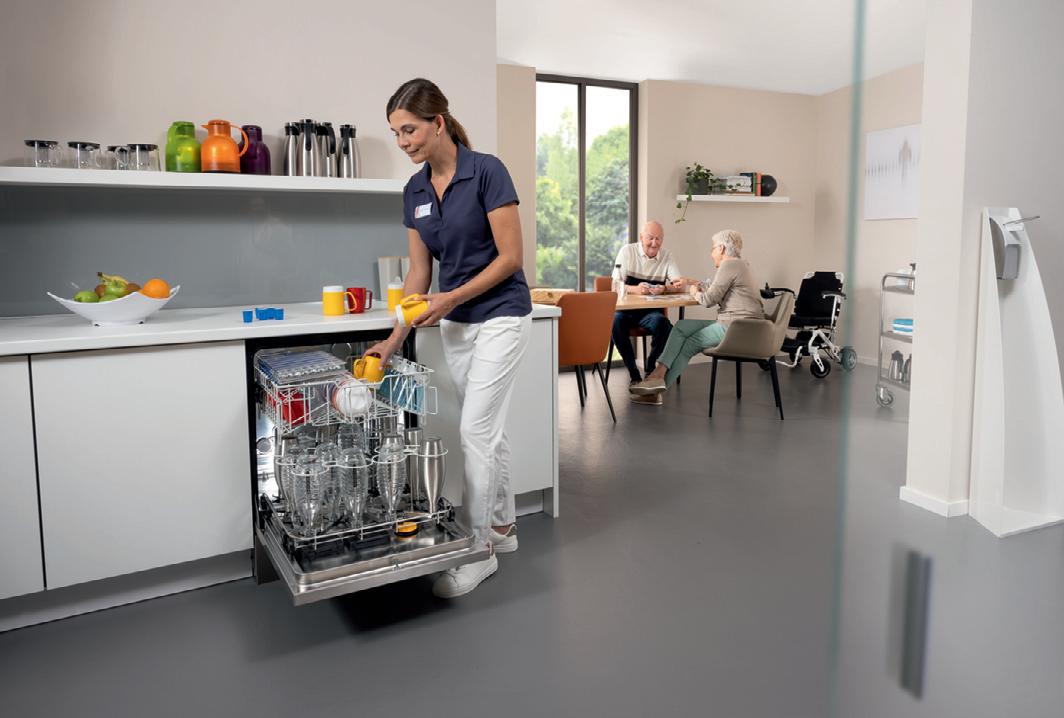
lower energy and water consumption, and extended service life all contribute to a more sustainable and cost-effective operation. For example, Miele Professional’s MasterLine dishwashers can complete a full cycle in just 5 minutes and use as little as 5.0 litres of water per cycle, depending on the model. Their energy-efficient design helps reduce utility costs while maintaining top-tier hygiene performance. Some dishwasher manufacturers offer extended parts availability and nationwide service networks, ensuring that support is always close at hand. Miele Professional offers spare parts available for up to 15 years after production ends and a UK-wide service network with a 90%+ first visit fix rate meaning that care homes can rely on consistent, expert support when it matters most.
Dishwashing may not be the most visible part of care home life, but it’s one of the most vital. By investing in the right equipment and processes, care homes can enhance hygiene, improve efficiency, and create a safer, smoother environment for both residents and staff.
To explore how Miele Professional's commercial dishwashing solutions can enhance your care home, please visit: https://www.miele.co.uk/p/retirement-care-homes-4053.htm

In the care sector, food is more than just nutrition - it’s comfort, dignity, and a way of bringing joy to residents every day. That’s why chefs can’t afford to compromise. From flavour and safety to consistency and versatility, every ingredient has to deliver. When it comes to bouillon, Knorr Professional refuses to settle for anything less than the best and so do the chefs who use it.
Knorr Professional Bouillon is the UK’s number one bouillon brand*, trusted in kitchens nationwide for its rich depth of flavour, outstanding versatility, and chef-trusted consistency. It’s made to work hard in every service, withno allergens to declare¹ options that give chefs peace of mind when catering for residents with diverse needs. NEVER SETTLE FOR BLAND DISHES
As residents age, their sense of taste can diminish. That’s why flavour has to work harder in care - it’s not just about nutrition, it’s about enjoyment. Knorr Professional Paste Bouillon brings bold, balanced flavour that cuts through reduced senses, ensuring dishes remain satisfying and memorable.
Whether it’s used as a base, rub, seasoning, glaze, or marinade, it delivers the same consistent, chef-approved results. From soups and stews to roasted vegetables and marinades, this is one product that performs across the menu - helping chefs adapt quickly without losing quality.
NEVER SETTLE FOR UNCERTAINTY
In care kitchens, allergen safety isn’t negotiable. Theno allergens to declareoptions in Knorr Professional Paste Bouillon make it simple to create inclusive dishes without sacrificing flavour. This helps reduce the risk of cross-contamination and ensures every resident can enjoy the same great taste.
For Knorr Professional Care Ambassador Preston Walker, that confidence is invaluable:
“With ‘no allergens to declare’ options available across the range, Knorr Professional Paste Bouillon is easy to introduce into dishes that need to be suitable for varying needs and preferences,” says Preston. “It gives me peace of mind that I can create flavour-packed dishes for all residents, without excluding anyone due to allergens.”
NEVER SETTLE FOR INCONSISTENCY
Care kitchens can be high-pressure environments, where time is short and the need for consistency is constant. Knorr Professional
Bouillon’s paste format makes it easy to store, measure, and use, ensuring the same flavour profile in every batch. Its consistent yield also helps with budget control - delivering premium quality without waste.
Preston sums it up simply:
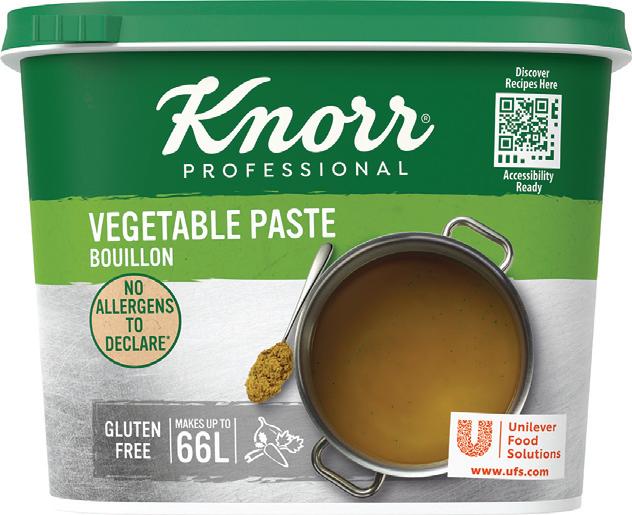
“We use the Knorr Professional Bouillon paste range for one simple reason - it delivers. Quality, flavour, consistency, and the confidence of knowing exactly what you’re going to get, every time.”
NEVER SETTLE FOR SECOND BEST
Every plate in a care home matters. It’s an opportunity to provide comfort, joy, and nourishment - and that means every ingredient has to earn its place. With Knorr Professional Bouillon, chefs can be sure they’re serving the very best in flavour, safety, and reliability. Because when it comes to care catering, settling for less is never an option.
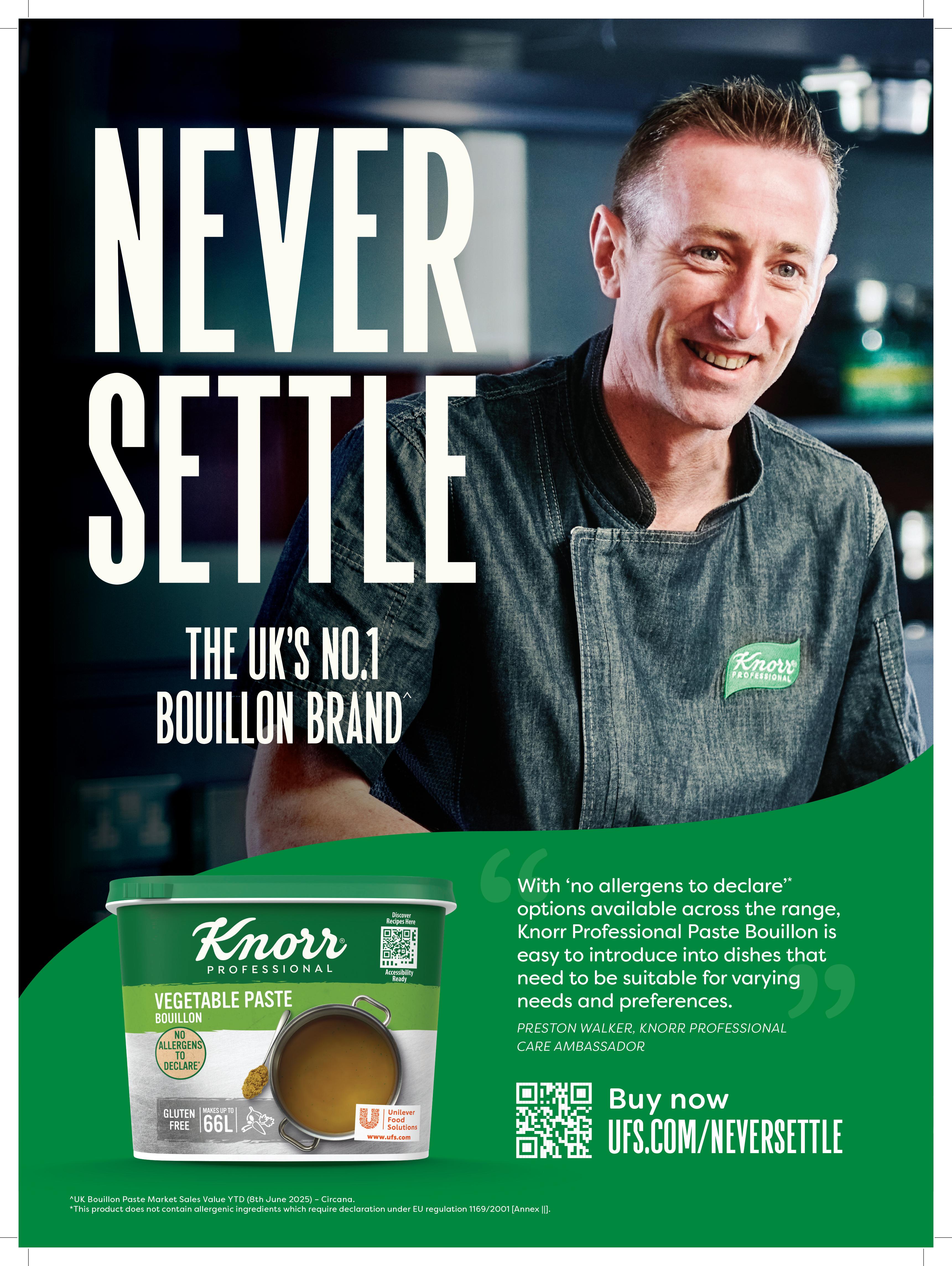
Care home budgets are under mounting pressure. Food supply constraints, inflation, and rising labour costs are combining to create a perfect storm for operators already working to tight margins.
The British Retail Consortium’s latest survey paints a concerning picture: 85% of retailers have raised prices in response to increased costs, fuelled by rises in employer National Insurance contributions and the National Living Wage. In the catering sector, which is heavily dependent on lower-wage roles, these changes are having a pronounced impact.
The Office for National Statistics’ July CPI figures show food inflation at 4.9%, with forecasts suggesting this could reach 6% by the end of the year. According to food procurement expert allmanhall’s Managing Director, Oliver Hall says:
“Based on recent and forecasted inflation spikes, care groups may want to revisit what they have budgeted for annual food inflation for the coming months. allmanhall consistently outperform inflation with price rises lower than inflationary rates, ensuring every pound of catering spend goes as far as possible.”.

Global factors are adding further uncertainty. Extreme weather patterns are disrupting crop yields and threatening food supply chains. The resulting price volatility is not limited to raw ingredients - distribution, packaging, and processing costs are also climbing.
Faced with these pressures, some care providers may be considering outsourcing catering as a cost-saving measure. However, as Oliver cautions:
“Pause before you add a management fee on top of rising labour costs on someone else’s payroll.”
Just because you eat less, or eat differently, it doesn't mean you should settle for less.
At Food Untethered, we believe that everyone – regardless of how they eat –deserves access to real, organic, and nourishing food. Whether you are tubefed, or simply need liquid nutrition on the go, our meals are made with care, using nothing artificial and held to the highest of safety standards.
We’ve launched our first three meals: a Coconut & Banana Smoothie, a Carrot & Coriander Soup, and a Mexican Bean Stew. Each is packed with whole ingredients, made for both taste and tolerance, and suitable for use orally or via a feeding tube.
But this is just the beginning. Over the next year, we’re releasing a full range of meals that can be consumed hot or cold, snacks, smoothies, and drinks –designed with real people, real needs, and real lives in mind.
Instead, the focus should be on smarter procurement strategies that deliver sustainable, long-term cost control.
Taylor & Taylor Care provide a strong example. Partnering with allmanhall, they benefit from comprehensive supply chain management, proactive supplier negotiations, and regular consultative advice - all designed to keep costs down without compromising quality.
“From day one, the care and attention provided by allmanhall has been exceptional… I’ve been impressed by the savings we’ve already seen, the flexibility regarding suppliers and by the excellent quality.”
Click here for the full video case study:
https://www.youtube.com/watch?v=NkroiOj26fs&t=1s
In today’s climate, expert food supply chain management is more than a support service - it’s a necessity. By tracking every penny of spend, identifying efficiencies, negotiating competitive pricing, and managing suppliers, care homes can protect their budgets while maintaining quality for residents.
As Oliver concludes:
“The effects of Government policy will likely be felt in the form of higher food prices in the coming years... choices made today will play a pivotal role in shaping the future of food security”.
With the right partner, care groups can ensure good food remains affordable, responsible, and sustainable - because quality meals for residents shouldn’t cost the Earth.
See the advert on the facing page for more information.


Our food is safe, shelf-stable, recyclable, and above all, human. It's not synthetic formula. It's not baby food. It’s real food, reimagined for different appetites.
If you or someone you care for lives with dysphagia, is tube-fed, or simply needs an easier way to stay nourished, we’re here to help.
Call us today – we’re a small team, and we love to talk. Whether you’re new to this or a seasoned pro, we’ll help you find something that works.
You don’t need to compromise.
You just need food that works for you.
Food Untethered
Real food. For every way of eating. www.fooduntethered.com
Please see our advert below.

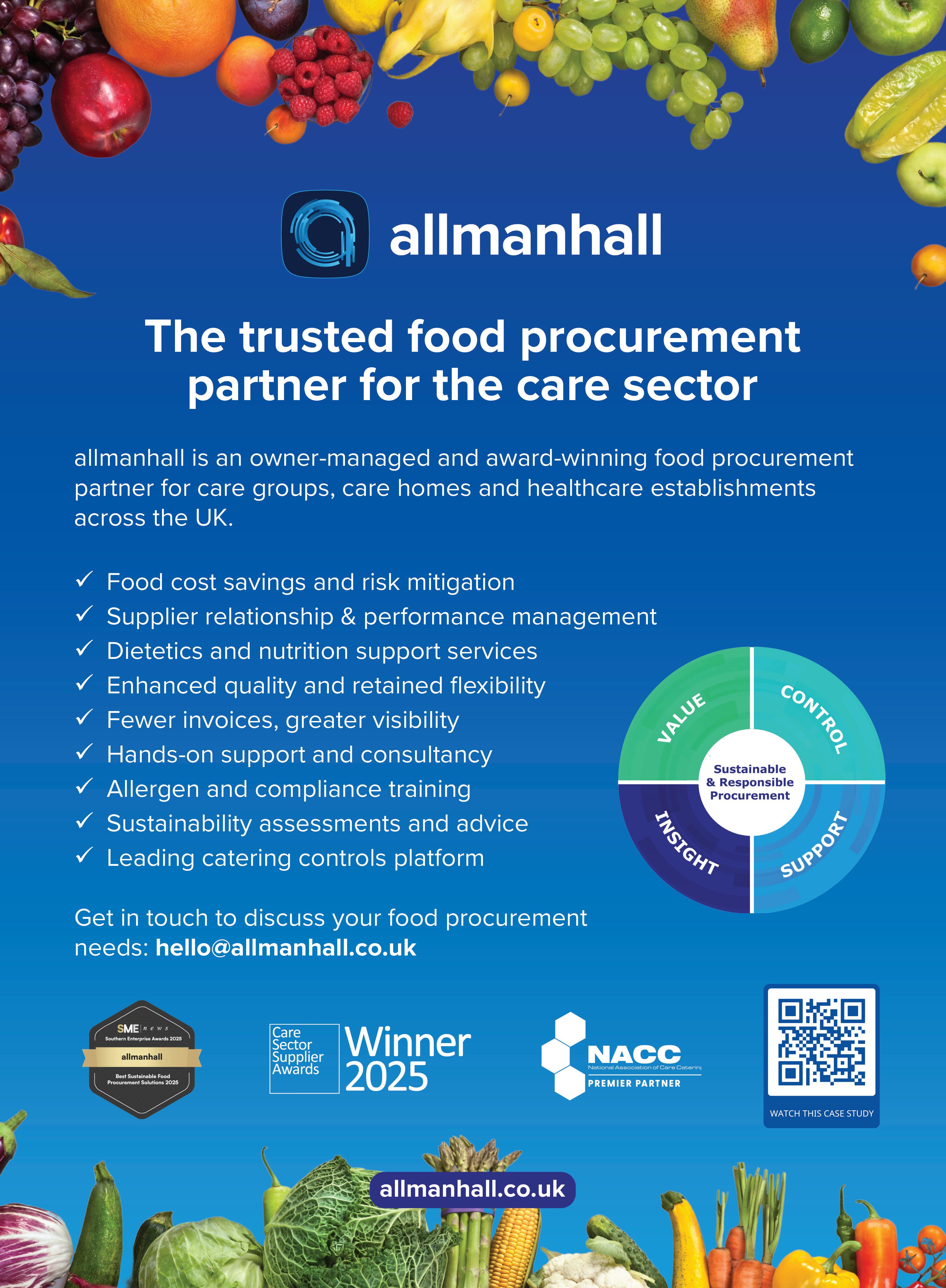

Mobile Kitchens Ltd specialises in the hire or sale of temporary catering facilities and foodservice equipment. Ideal for events or to provide temporary catering facilities during your kitchen refurbishment, our versatile units and equipment offer an efficient and economic solution to the caterers’ needs.
Production Kitchens, Preparation Kitchens, Warewashing Units, Dry Store Units, Cold Rooms and Restaurant Units are available as individual units in their own right or they can be linked together on site to form a complete complex.
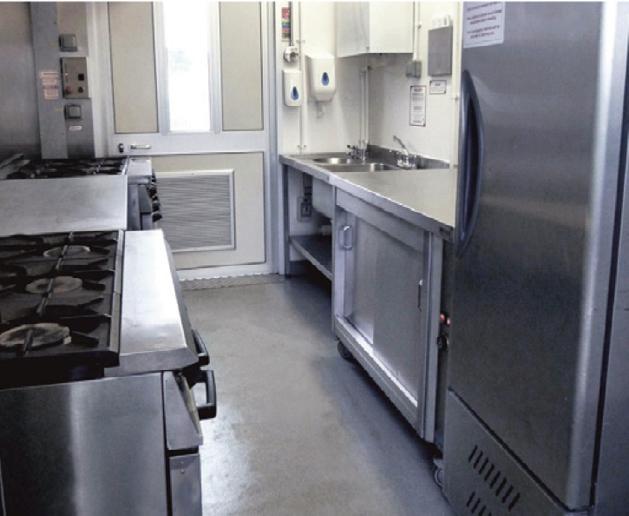
Alternatively, we can offer modular, open-plan facilities, usually for larger, longer-term hires. We offer a free design service, and project management from concept through to delivery and installation on site, plus full technical support throughout the hire period.
Commercial Kitchen and Laundry Solutions (CKLS) are one of the UK's leading suppliers of commercial kitchen and laundry equipment. Whether you are a small sized residential home or large scale nursing home group, CKLS has the expertise and equipment you need to keep your operations running smoothly.

At CKLS, we understand that the success of your business depends on the quality of the equipment you use. That's why we've made it our mission to provide businesses across the UK with the highest quality commercial laundry and kitchen equipment available. We work with only the best manufacturers in the industry to ensure that our customers get the most reliable and efficient equipment possible.
Our commitment to our customers doesn't end with the sale of our equipment. At CKLS, we know that maintenance and repairs are crucial to keeping your equipment functioning at its best. That's why we offer a full range of maintenance and repair services
to our customers, including emergency repair services available 24 hours a day, 7 days a week.
We believe that our success as a company is measured by the success of our customers. That's why we're constantly striving to provide better products and services to help our customers achieve their goals. We're proud to say that our commitment to excellence has earned us a reputation as the go-to provider of commercial laundry and kitchen equipment in the UK.
So, if you're looking for reliable, high-quality commercial laundry and kitchen equipment, look no further than CKLS. With our extensive range of products and services, we're confident that we can help you find the right equipment to meet your needs and keep your business running smoothly for years to come.


Infection control remains a vital concern in care homes, where laundry plays an essential role in preventing the spread of harmful pathogens. With the Care Quality Commission continuing to raise expectations through a more rigorous inspection framework, laundry operations must meet high standards for both hygiene and regulatory compliance. Forbes Professional is helping care providers across the UK achieve exactly that.
Many care homes still rely on domestic washing machines that are ill-suited for the demands of a clinical environment. These machines often lack the ability to maintain the thermal disinfection temperatures required in care settings and are not compliant with WRAS Category 5 regulations. In addition, domestic models are not built for the volume of laundry processed in care homes, leading to higher operational costs, increased breakdowns, and invalidated warranties.
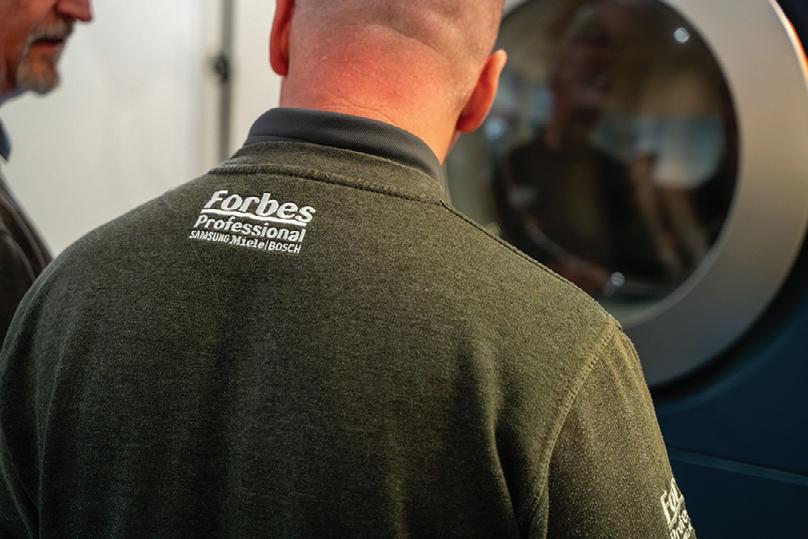
Forbes Professional supplies Miele commercial laundry equipment that is purpose-built for healthcare environments. These machines offer validated thermal disinfection cycles and include Type A air gaps for full WRAS compliance. Forbes also offers high-performance detergents which can be used in conjunction with the Miele appliances to deliver a comprehensive solution that supports effective infection control even at lower temperatures.
Some care operators have explored ozone-based disinfection as an alternative. While ozone can be effective, it introduces additional responsibilities around safe use and regulatory compliance. Systems must be carefully managed to mitigate potential risks to staff and residents. Forbes offers tried-and-tested alternatives that eliminate complexity while delivering proven results in a care environment. A major differentiator for Forbes is the company’s nationwide service infrastructure. They understand that equipment failure in a care home laundry room can quickly escalate into a serious operational issue. To minimise disruption, Forbes provides same- or next-day engineer call-outs as standard. Their extensive team of qualified field engineers and well-stocked service vehicles ensures swift, expert support across the UK.
Forbes also offers comprehensive rental and service contracts that include all maintenance and repairs, helping care homes manage costs and reduce administrative burden. These end-to-end solutions provide care operators with peace of mind, knowing their laundry systems are compliant, efficient, and fully supported. By partnering with Forbes, care homes benefit from expert guidance, market-leading equipment, and dependable service; ensuring hygiene standards are met and residents are protected. forbespro.co.uk | info@forbes-professional.co.uk | 0345 070 2335
SOUTHERN Contracts is one of the UK’s leading suppliers of industrial laundry, catering and commercial cleaning equipment.
Founded in 1964 to initially supply and maintain commercial cleaning equipment to the marine industry, we have since grown to become a well-respected and trusted partner to leading manufacturers.
We have consistently been the top performing Laundry Partner to Electrolux Professional and again achieved their top Laundry Partner Award for 2024. We’ve now won this accolade consistently for well over 20 years.

Now in our third generation and still very much a family run business, we are proud to now be a global supplier of not only laundry equipment, but with knowledge gleaned over the years, we are also a go-to company for professional kitchen appliances and commercial cleaning equipment. With our knowledge of most market products, we pride ourselves on delivering the very best solutions and service to our customers.
Already working for many of the national Care and Nursing Homes, as well as the hospitality industry such as hotels, restaurants and holiday parks, we understand the importance of keeping ‘down time’ to a minimum and by keeping in stock the leading commercial washing machines, tumble dryers and cleaning equipment we can sometimes just swap machines over to keep your business up and running.
We are able to offer independent and unbiased advice to ensure your purchase precisely meets your
requirements and budget, across a complete array of different products and models. Our expert team of technical staff are on hand to ensure your business is supported through every aspect of your purchase or rental agreement.
From advising on current government standards (eg. infection control for commercial washing machines and meeting government legislation for kitchen appliances) our team fully support you throughout the whole journey, from initial advice to delivery, installation, customer training, ongoing maintenance, service and repair. We hold many accreditations for safety and service excellence, providing peace of mind to all our customers, whether existing or potential.
For more information regarding our services for :
- Commercial laundry equipment
- Commercial kitchen appliances and warewashing/dishwashing
- Commercial cleaning equipment
Please visit our website at southerncontracts.co.uk and see previous projects we’ve worked on and our enviable testimonials received from happy clients across a plethora of sectors.
Contact us now on 03301 222888
Follow us on : Facebook, Twitter, Instagram and LinkedIn
See the advert on the previous page for information.
At PDS, we understand the challenges that come with managing laundry in a care home. From bedding, towels and tablecloths, to cleaning the clothes of residents, we appreciate that you need a care home laundry repair service and care home laundry equipment you can rely on.
Here at PDS, we provide care home laundry equipment to suit the needs of your setting. We offer many big-name industrial brands such as Alliance, Electrolux, Miele, Girbau, Grandimpianti and Schulthess.
As your trusted care home laundry repair services partner, we can help you with more than just supplying equipment. Our care home laundry services include laundry consultations, project design and management, equipment supply and installation, spare parts and more.
Our care home washing machines range from 6kg to 30kg drums for small to medium-sized care settings, and from 26kg to 40kg ones for larger care homes with more demanding laundry needs. We offer a full range of care home laundry equipment to meet your needs. Our equipment includes:
• Washing machines
• Tumble dryers
• Stacked equipment
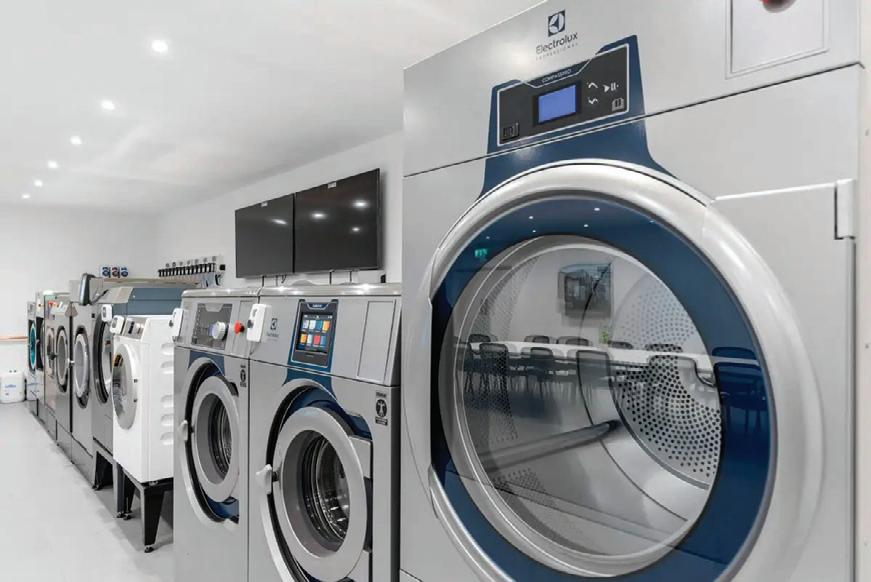
• Ironers
We supply everything from compact care home washing machines to larger ironers and stacked systems, tailored to suit your available space, daily routines and laundry demands. Our aim is to make laundry simple and efficient, so your team can focus on providing the best care for your service users.
With more than 30 years of experience, our in-house engineers offer expert support nationwide. Wherever you’re based, we’re here to keep your laundry equipment performing at its best.
If you run or manage a care home and are looking for a care home laundry repair services partner, then look no further than PDS. We’ve been helping care homes just like yours since 2007 and are one of the most trusted suppliers of care home laundry repairs and care home laundry equipment. We are here to help keep your care home running smoothly. Please get in touch
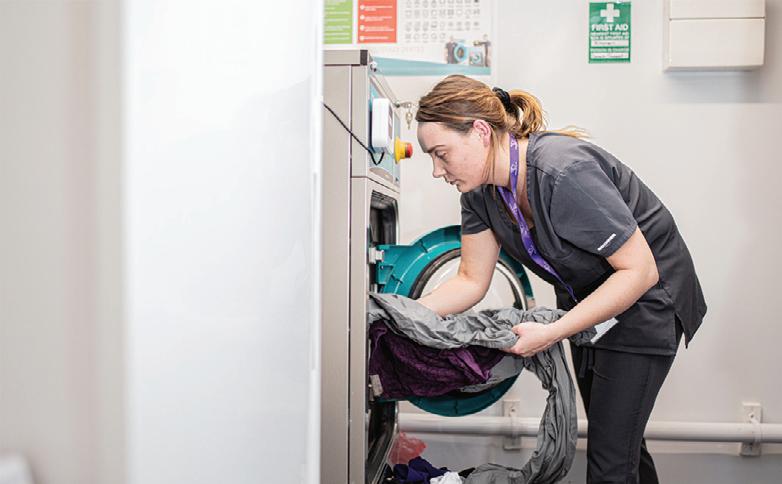
If you are looking for high quality wash results that remove stubborn stains then speak with MAG for their recommendations. Complete thermal disinfection is a standard feature on their washing machines for nursing homes. To find out more about how MAG can support your care home telephone 01353 883025 or

We

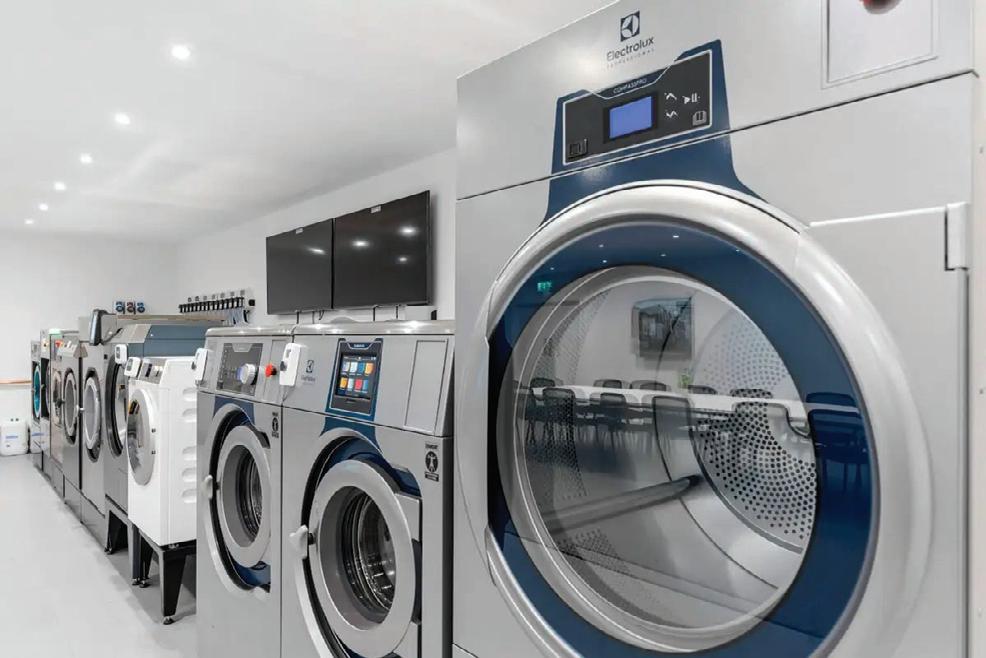
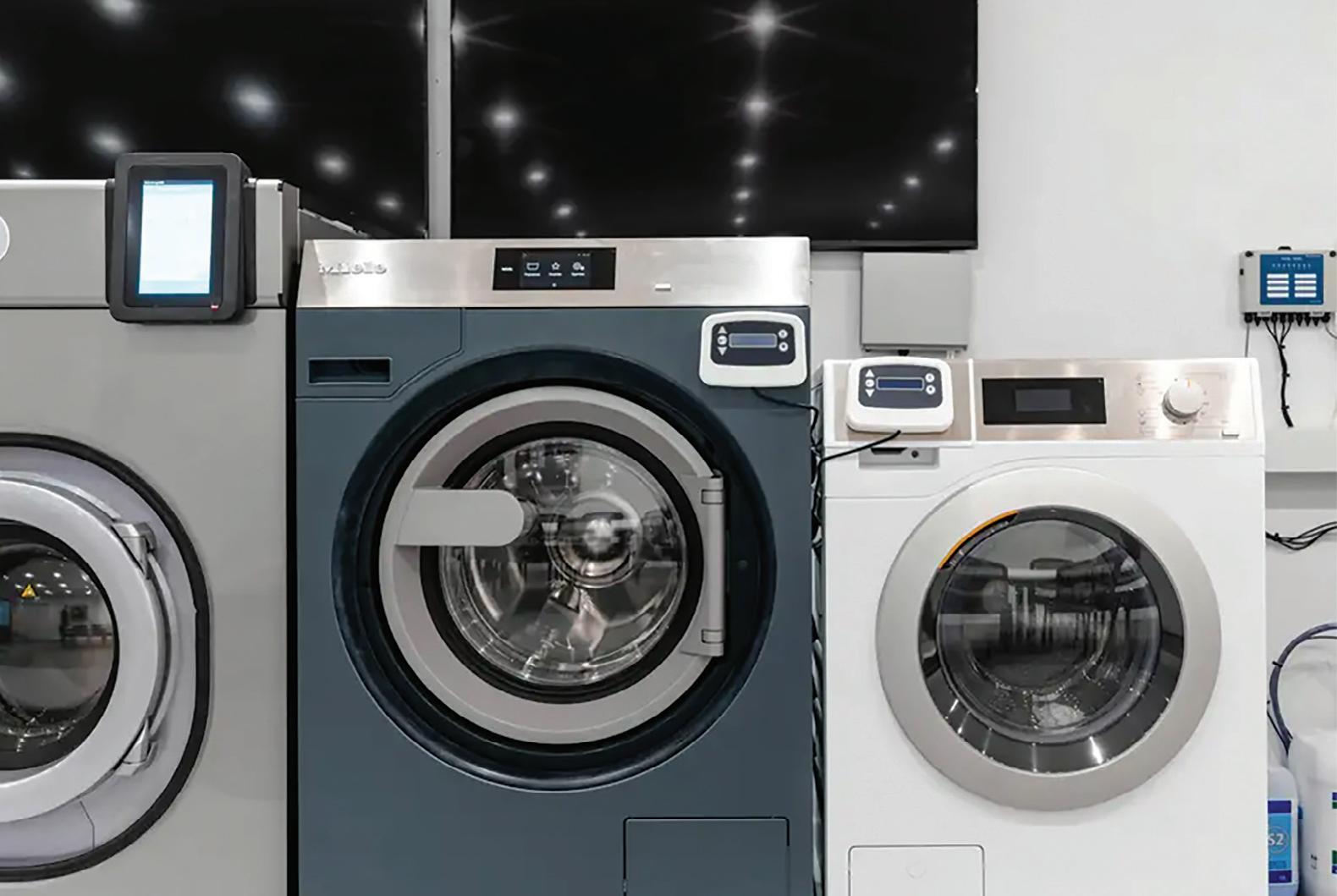

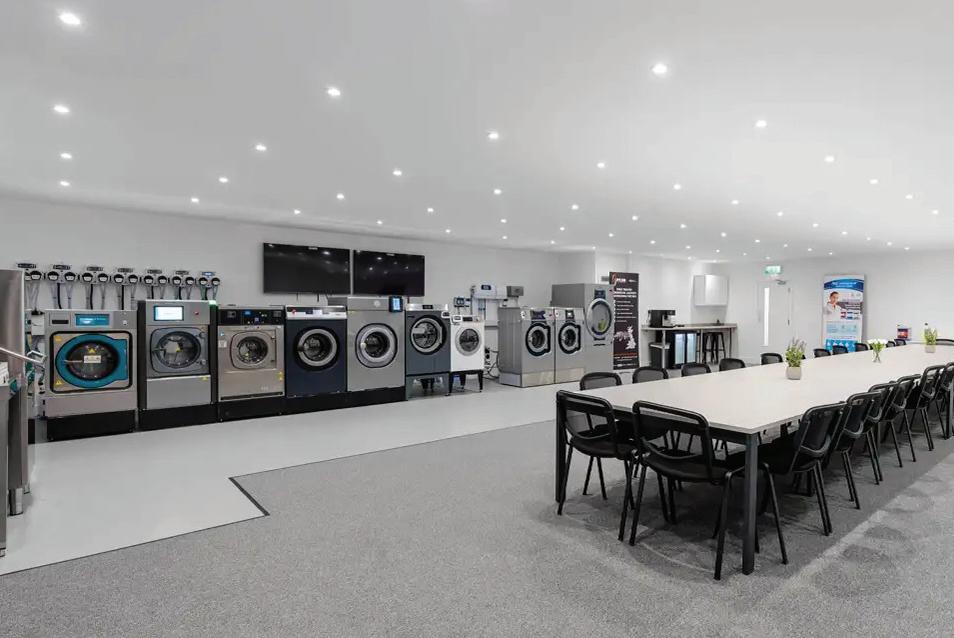

•
•

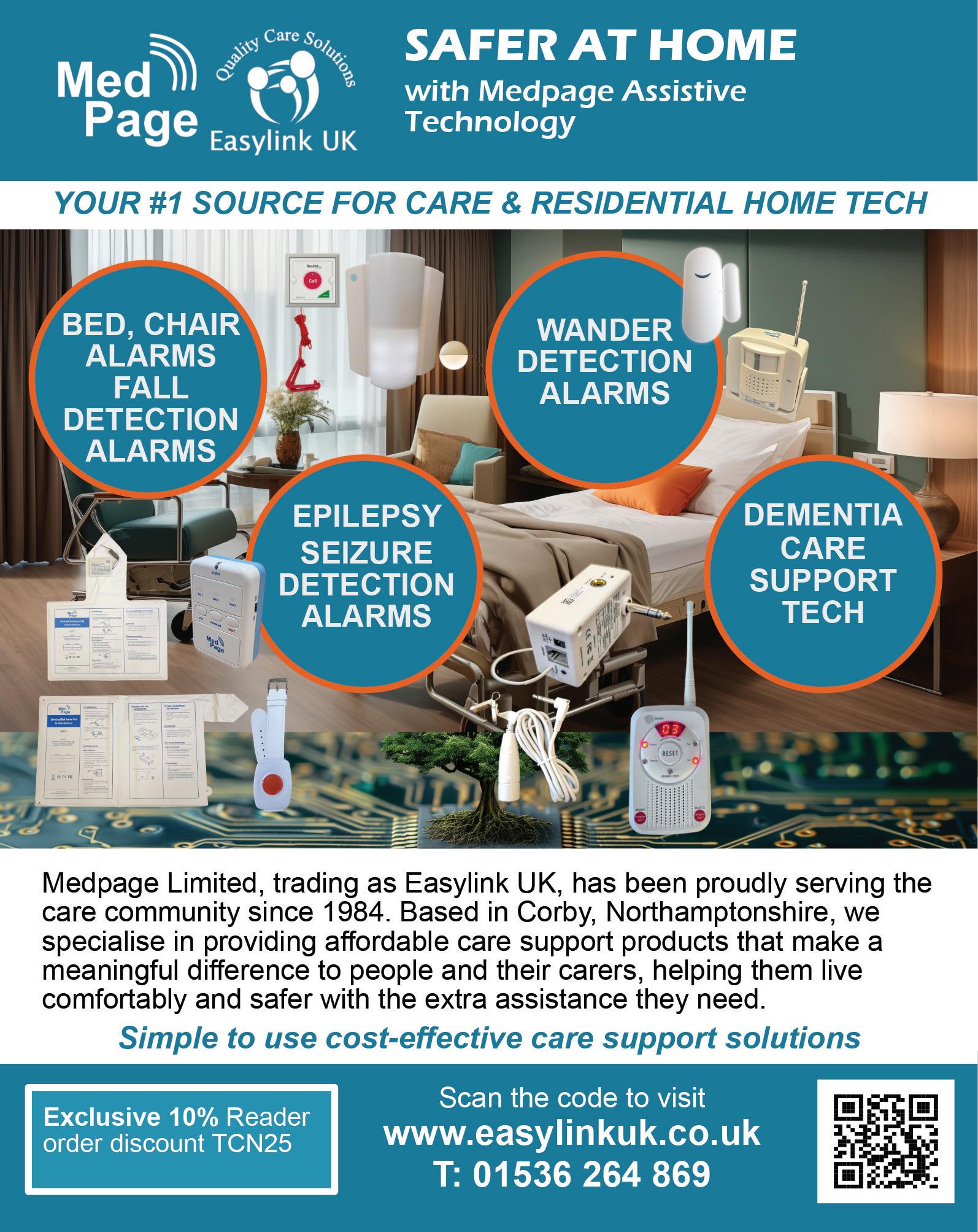

Falls Prevention Awareness Week took place this year between the 22nd and the 26th of September, and as the autumn months are upon us, the weather is beginning to change, making it important to address the types of hazards that are now more likely to occur.
Things like snow, ice and fallen leaves can cause serious accidents for both residents and colleagues and Falls Prevention Awareness Week looks to raise awareness of these hazards to protect those who may be affected.
In 2024 the Health and Safety Executive estimated the cost of slips and trips in the workplace to the UK economy was £500 million in terms of employee absence, lost production, and other costs to business.
Slips and trips in the workplace were also estimated to have cost the NHS over £800 million in 2024 hospital admission and treatment costs.
Phil Clarke, Head of Health and Safety at Care UK (www.careuk.com) says: “It’s important that we are proactive in helping our colleagues through the winter months. By reducing the number of slips and trips we can make sure everyone is safe when
they’re moving around within the homes which, most importantly, helps colleagues to ensure that residents can lead fulfilling lives.”
As part of Phil’s plans to help Care UK-run homes with their awareness of hazards posed during the winter months, he has launched Sliptember, a campaign that aims to keep people safe and aware during the month of September and beyond.
Phil says: “The main thing we can do is plan to deal with these potential issues ahead of time. This includes stocking up on grit or salt and clearing up fallen leaves regularly. A combination of rotting leaves and frozen ground provides a dangerous slip and trip hazard to both residents and colleagues.”
As part of this campaign, Phil is using the acronym CHIMES to create an easy way for people to remember what we can be doing to prevent slips and trips.
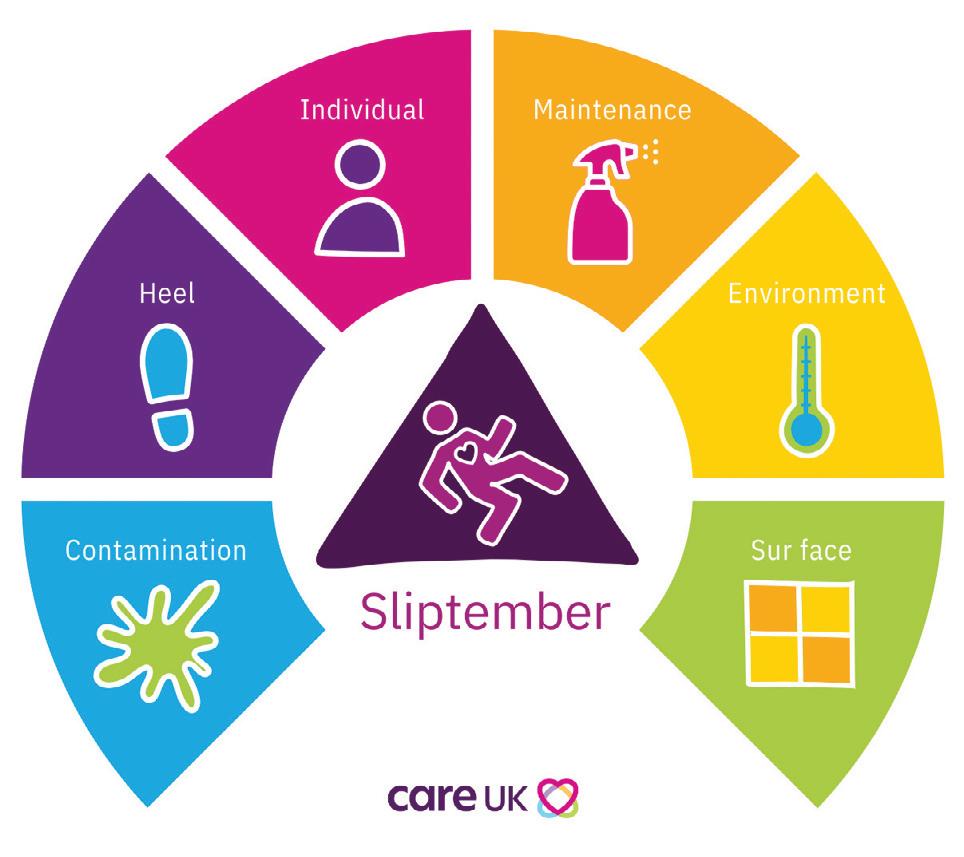
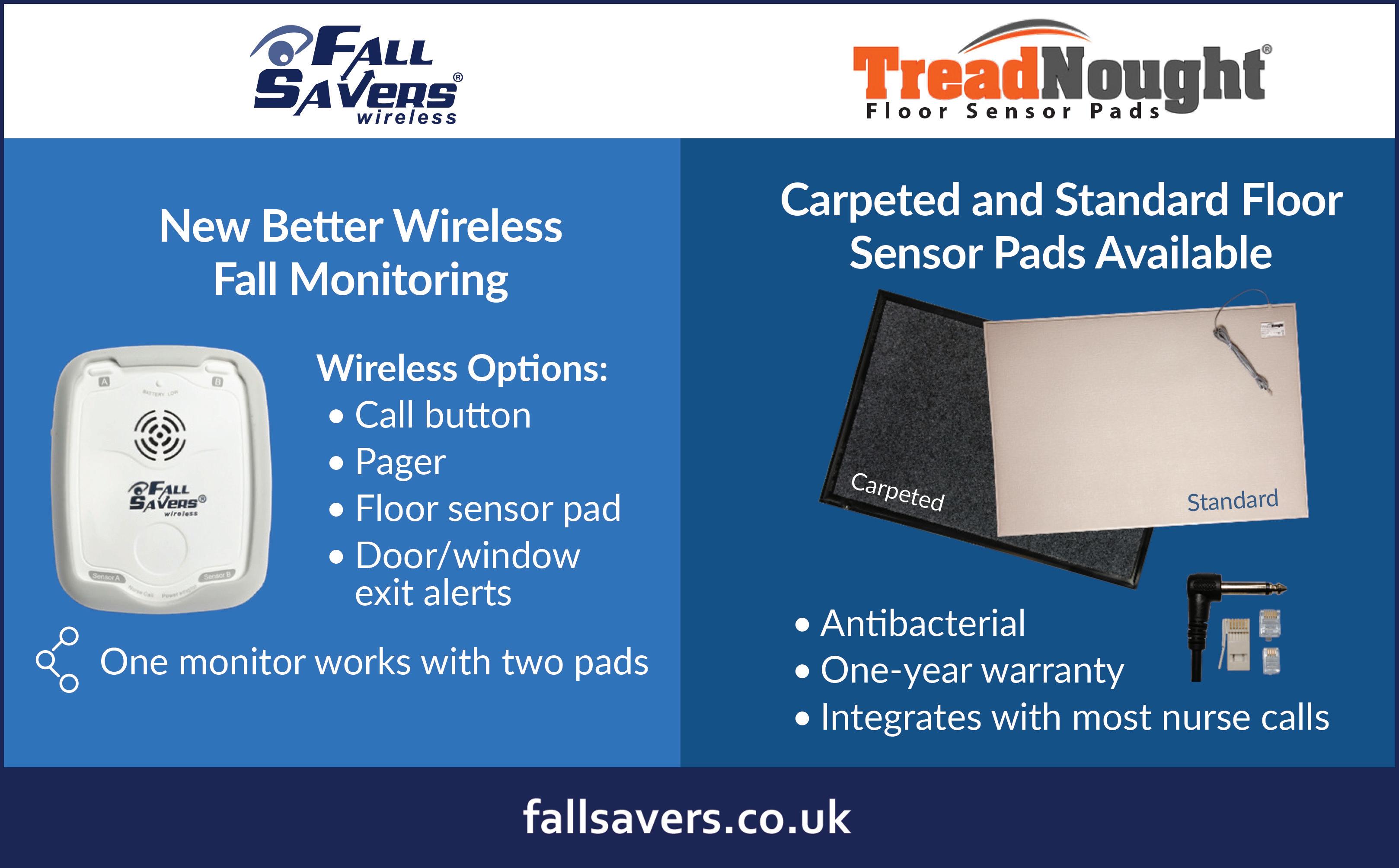
Fall Savers®, are an experienced market leading healthcare provider of resident safety solutions for over 15 years.
FALL SAVERS ® WIRELESS MONITOR
Eliminate all cables with our new generation falls management solutions!
Upgrade your falls programme with the latest technology from Fall Savers®. The NEW Fall Savers® Wireless eliminates the cord between the monitor and sensor pad. This results in less work for nursing staff, improved safety for patients and reduced wear and tear on sensor pads. Wireless advantages include the ability to use one monitor with two sensor pads simultaneously and support for many new wireless devices.
BENEFITS INCLUDE:
Safer for patients; less work for staff
Bed and chair pads available
One monitor works with two sensor pads
Integrates with most nurse call systems
A variety of options, including:

Floor sensor mat
Wireless door/window exit alerts
TREADNOUGHT ®FLOOR SENSOR PAD
The TreadNought® Floor Sensor Pad is built to last with a durable construction that far out lasts the competition. Our anti-bacterial floor sensor pad is compatible with most nurse call systems or can be used with a portable pager to sound an alert when a person steps on to the sensor pad. Caregivers typically place the sensor pad at the bedside, in a doorway or other locations to monitor persons at risk for falls or wandering. An optional anti-slip mesh reduces the potential for slippage on hard surface floors.
FEATURES INCLUDE:
Connects directly to most nurse call systems
High Quality anti-bacterial Floor Sensor Pad
Large Size Pad: Measures (L) 91cm x (H) 61cm
Options (sold separately):
Anti-slip mesh for hard surface floors

See the advert on this page for further details or visit www.fallsavers.co.uk.
Courtney Thorne, a long-standing innovator in healthcare communication systems, is setting new standards in the care home sector with its advanced wireless nurse call technology—designed to improve resident safety, enhance staff efficiency, and support a more responsive care environment.
With over 30 years of experience serving the UK healthcare market, Courtney Thorne’s systems are now trusted by thousands of care homes nationwide. Unlike traditional hardwired solutions, their wireless nurse call systems offer non-invasive installation, scalability, and smart analytics—making them ideal for both new builds and retrofit projects.
“At the heart of our technology is the belief that better communication leads to better care,” says Graham Vickrage, Managing Director at Courtney Thorne. “Our wireless systems not only reduce response times but also empower staff
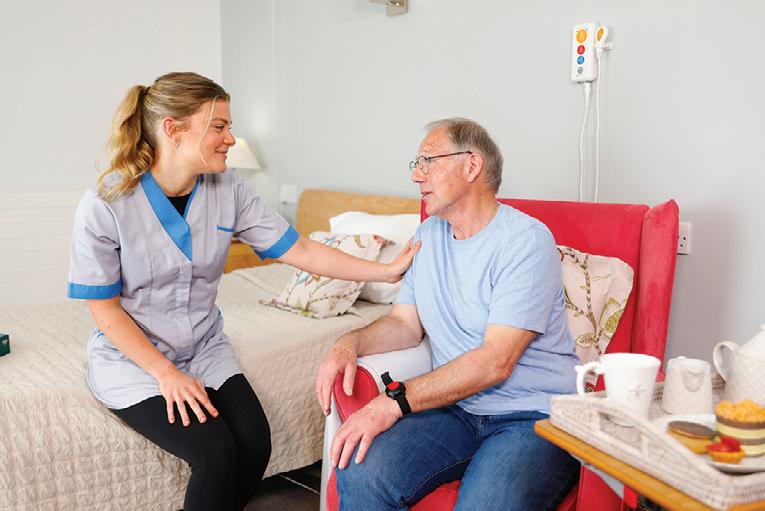
with the tools they need to deliver safe, person-centred care.”
Care providers are increasingly choosing wireless systems for their flexibility, reliability, and cost-effectiveness. With a full suite of accessories—including neck pendants, door monitors, fall detection, and bed sensors—Courtney Thorne systems can be tailored to meet the specific needs of each home and resident.
In an industry where compliance, safety, and staff pressures are always front of mind, Courtney Thorne provides more than just products—they offer ongoing support, training, and a commitment to innovation that helps care homes futureproof their operations.
For more information or to book a free demo, visit www.c-t.co.uk or contact info@c-t.co.uk.
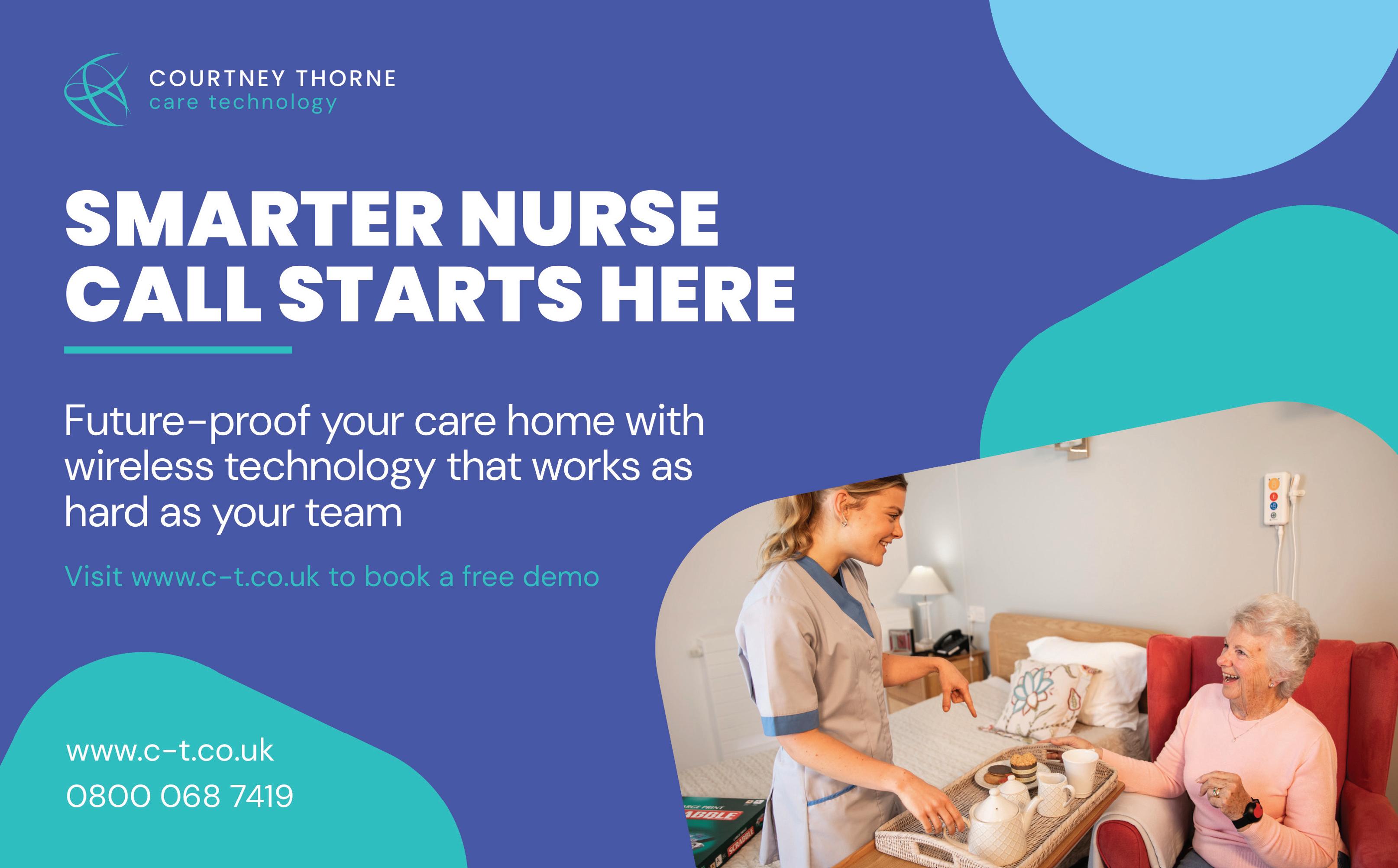
Falls are a significant concern for vulnerable individuals, especially seniors and patients at risk. Medpage, a leader in assistive technology, offers a range of cutting-edge products designed to enhance safety and provide peace of mind for caregivers and families. Here’s an in-depth look at some of their standout solutions:
MPRCG1 (2023) BED LEAVING DETECTION ALARM WITH CAREGIVER RADIO PAGER
The MPRCG1 is a comprehensive system tailored for fall prevention in domestic, commercial, and NHS care settings. This all-inclusive kit includes a bed pressure mat sensor, a BTX21-MP alarm sensor transmitter, and an MP-PAG31 radio pager. The system is designed to alert caregivers when a patient leaves their bed, reducing the risk of falls. Key features include:
Wireless Alerts: Notifications are sent to the caregiver’s pager via tone or vibration.
• Customizable Alarm Delays: Options for instant, 15-minute, or 30-minute delays.
Durable Design: Antimicrobial and disinfectant-resistant materials ensure longevity. Ease of Use: Minimal installation required, making it user-friendly and portable.
HDKMB2 HOSPITAL DISCHARGE KIT FOR FALLS RISK PATIENTS
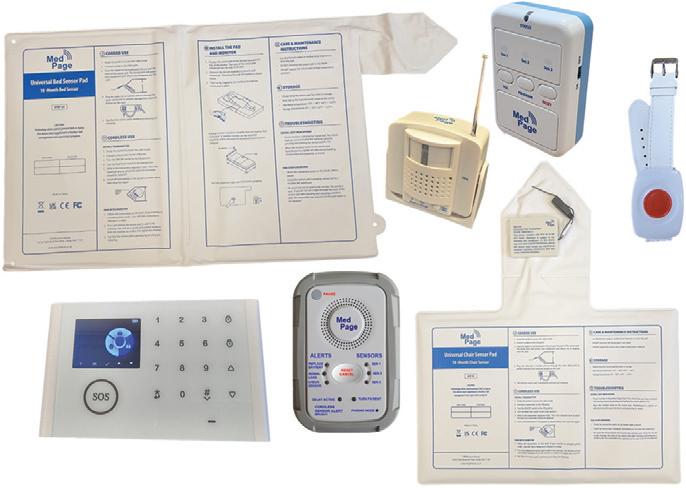
The HDKMB2 is a thoughtfully curated kit aimed at supporting patients transitioning from hospital to home care. It includes essential tools to mitigate fall risks and promote recovery. This kit is ideal for caregivers seeking a comprehensive solution to enhance patient safety during the critical post-discharge period.
MULTI-PORT WIRELESS SENSOR INPUT EXPANDER FOR NURSE CALL CONNECTION
CMEX-21
The CMEX-21 is Medpage’s latest innovation, designed to integrate seamlessly with existing nurse call
systems. This multi-port expander allows for the connection of multiple wireless sensors, enhancing the monitoring capabilities of healthcare facilities. Its versatility makes it a valuable addition to any care environment, ensuring timely responses to patient needs.
RON-WC2 WATERPROOF DISABLED PULL CORD ALARM TRANSMITTER WITH WIRELESS ALARM RECEIVER
The RON-WC2 is a robust solution for disabled individuals requiring immediate assistance. This waterproof pull cord alarm is ideal for use in bathrooms and other high-risk areas. Paired with a wireless alarm receiver, it ensures that help is just a pull away. Features include:
Waterproof Design: Suitable for wet environments.
• Wireless Connectivity: Reliable transmission to the alarm receiver.
Ease of Installation: Simple setup for quick deployment.
WHY CHOOSE MEDPAGE?
Medpage’s commitment to innovation and quality is evident in their product range. Each solution is designed with the user’s safety and convenience in mind, making them a trusted choice for caregivers and healthcare providers alike.
By investing in these advanced fall prevention tools, families and facilities can create safer environments for those at risk. Medpage continues to lead the way in providing practical, reliable solutions that make a real difference.
For more information, visit Medpage’s official website or contact their team to explore these products further. Safety starts with the right tools, and Medpage delivers just that. www.easylinkuk.co.uk
T: 01536 264 869
Alarm Radio Monitoring is the market leader in the design, manufacture and installation of bespoke, end-to-end, wireless alarm systems and solutions for the healthcare, leisure, custodial and education industries.
We have been providing wireless alarm and nurse call systems for over 30 years. Supplying care homes and hospitals with an essential lifeline that supports the delivery of outstanding care.
We believe in excellence which translates into:
Advanced Technology
Industry-leading wireless alarm technologies and software
Bespoke Solutions
We design systems to your needs rather than your team having to work around the system Innovative Design
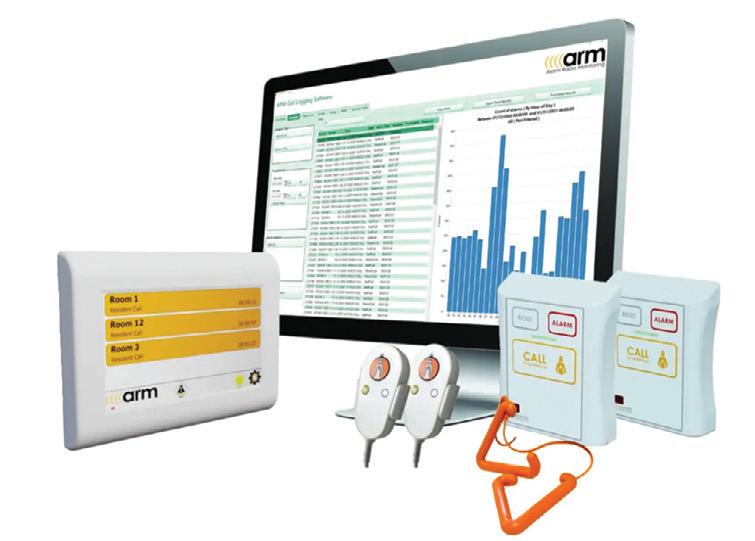
Pushing boundaries with the reliability that comes from decades in the industry Flexible Finance Options
Ensuring organisations of
or
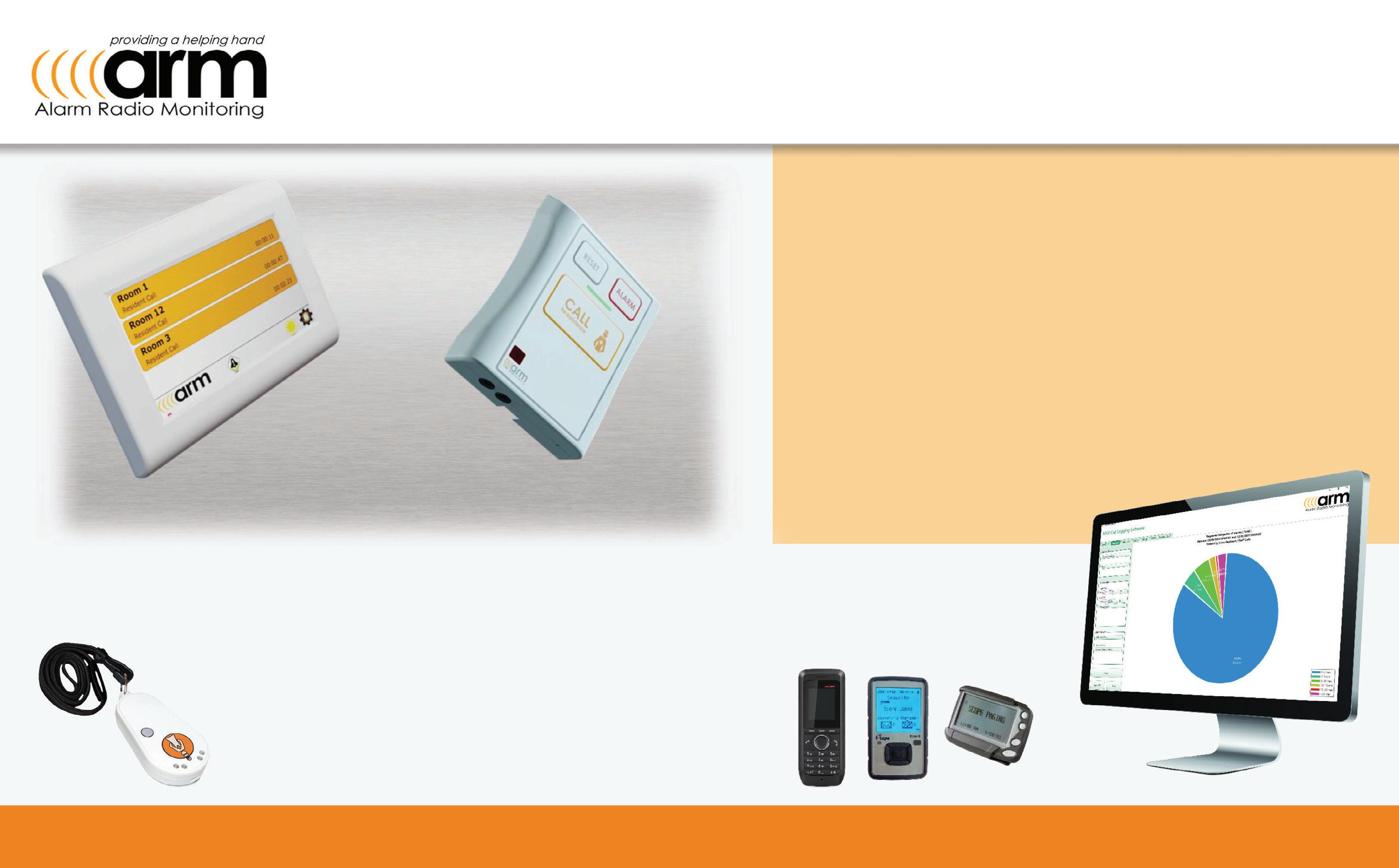
Data Analysis software provides a full audit trail of events
The all-new call logging software from ARM enhances the functionality of your care call system dramatically.
• It can help you track the quality of your service to your residents.
• It can help you demonstrate compliance with your aims and best practices, both to relatives and to authorities.
• It can help you find bottlenecks in service provision, track staffing requirements, and allow you to ensure staff are meeting expectations.
• Most importantly, it provides assurance that you know and can demonstrate what is happening in your care home.
The wireless ARM Nurse Call system has been developed over 30 years with both the client and user in mind.
It enables staff to efficiently answer calls, making the management of resources more flexible and provides the functionality you would expect of any nurse call system.
The system is quick and easy to install and works wirelessly, using radio communication between both the call points and the system infrastructure.
Call messages can be sent direct to staff to speed up response times and can also be integrated to work with smart phones & messaging.
Falls are one of the biggest challenges facing care providers – and they’re not just an issue for older people. They can affect anyone receiving care and support, including working-age adults with disabilities or longterm conditions. A fall can change someone’s life in an instant, leading to injury, hospitalisation, or loss of confidence. For staff, falls mean stress, paperwork, and the urgent task of helping someone recover safely. This September’s Falls Awareness Week is a chance to shine a light on the issue and explore new ways of keeping people safe. At the Digital Care Hub, we’re supporting the week with practical resources and a twopart mini-webinar series designed to spark ideas and share real-world success stories from across the sector.
LEARNING FROM EACH OTHER
On Tuesday 23 September at 2pm, we’ll host Wellbeing in Focus: Sensor Technology and the Care Journey. This session will explore the benefits of sensor-based technology from both care provider and resident perspectives. Speakers include Sensio, Lovett Care and Dormy Care, with an introduction from the National Care Forum.

On Wednesday 24 September at 2pm, we’ll run Beyond Falls: How Sensor Tech is Unlocking Safer, Calmer Care. This goes beyond basic fall prevention, exploring how sensors can improve sleep, reduce anxiety and even help spot health risks earlier. Care England will open the session, and Ally Cares will share powerful insights from care homes already using these systems. Both webinars are free to attend and are aimed at managers, owners and care teams who want practical, evidence-based solutions.
THE CHALLENGE ON THE GROUND
Anyone working in care knows that preventing falls isn’t easy. Staff need to balance safety with independence, spot risks early, and respond quickly when incidents happen. For many providers, night-time
checks can disturb residents’ sleep and still miss the moment when a fall happens. Long-lie incidents, where someone is not discovered for hours, are a particular concern and can have serious health consequences.
TECHNOLOGY MAKING A DIFFERENCE
The good news is that technology is helping providers change the story.
At The Lawns Care & Nursing Home in Worcestershire, the team introduced Ally Cares, an AI-powered acoustic monitoring system. It alerts staff to unusual sounds or movement at night, so they can intervene before someone gets hurt. Over six months, falls dropped by two-thirds, with the biggest impact for residents most at risk.
Hartland House Care Home in Cumbria went a step further with Nobi Smart Lamps, which combine AI and smart lighting to detect when someone gets out of bed and automatically light the room. They reported an 84% reduction in falls, no long-lie events, and response times falling from nearly an hour to just two minutes.
Technology alone isn’t the answer – it needs the right culture, training and care planning to be truly effective. That’s why conversations like those taking place during Falls Awareness Week are so important.
By sharing stories, data and lessons learned, we can make care safer, calmer and more dignified for everyone – whether they live in a care home, supported living, or their own home.
Join us at the Digital Care Hub webinars and be part of the conversation. Together, we can turn the tide on falls.
Find out more on the Digital Care Hub website at www.digitalcarehub.co.uk/falls-awareness-week-the-power-of-tech/
See us n Stand B11 at The Care Show. See the advert on page 28.
Technology has made people more connected with the world around them and the revolution in assistive care devices has made it possible for the elderly to spend their last years in a comfortable and familiar environment. These devices have also made it easier for home carers to provide quality care for their loved ones while managing their own lives. They allow you to care for your elderly whether they are travelling in the city for errands, staying alone at home, or staying in the same home as you. They are also helping nursing homes provide better care for them with discrete monitoring and quick responses to emergencies.
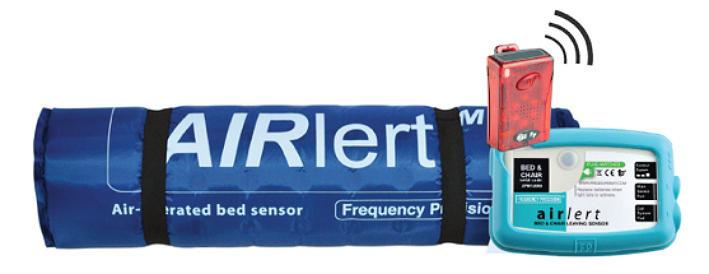
If you’re looking for these kinds of assistive care devices for your loved ones or nursing home, Frequency Precision produce some of the best systems available to help you with elderly care and mobility monitoring, ranging from bed, chair and floor sensor mats through fall monitoring and GPS tracking to fully integrated nurse call plug or wireless systems.
Phone: 01837 810590
Email: contact@frequencyprecision.com
Website: www.frequencyprecision.com
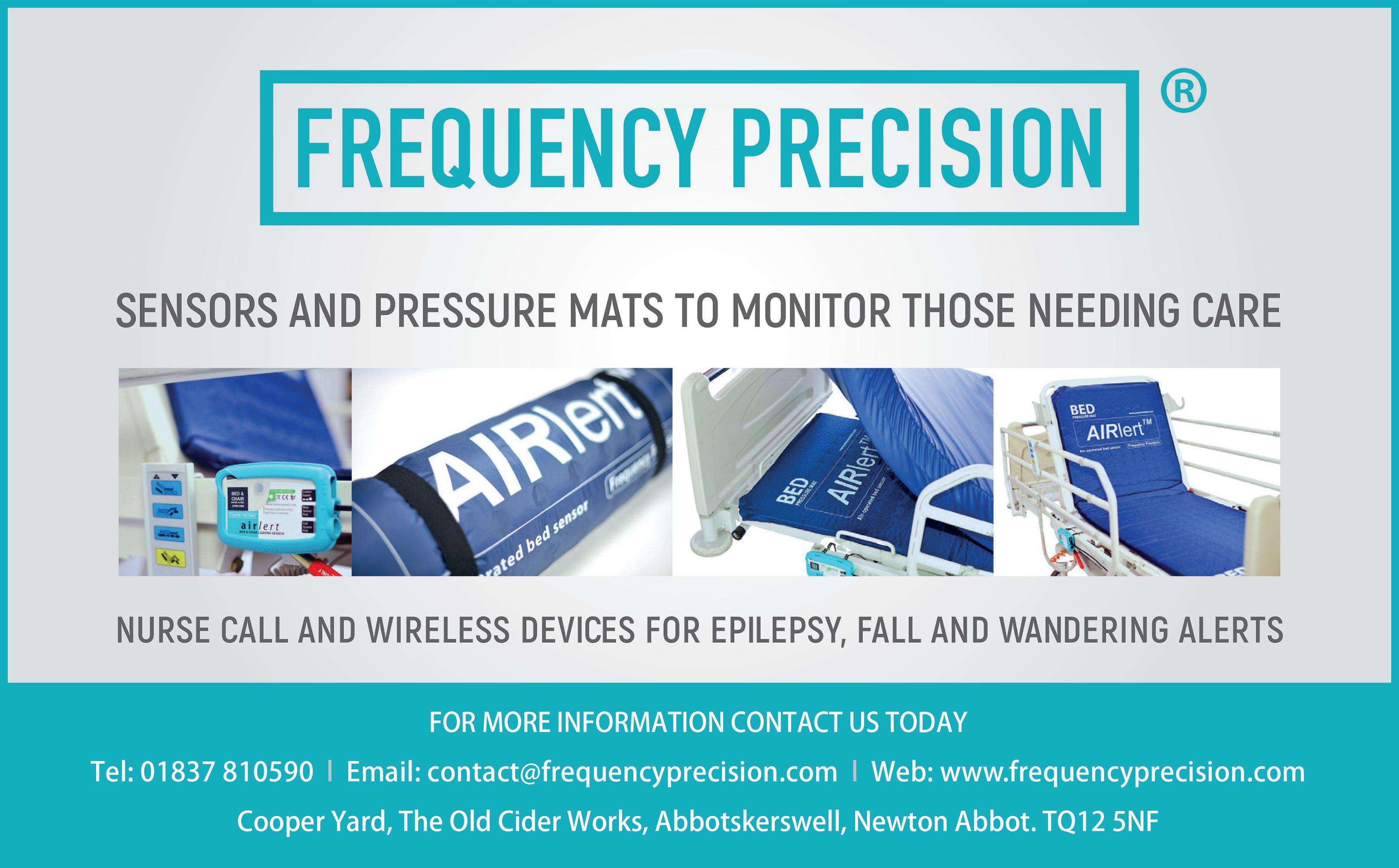
By
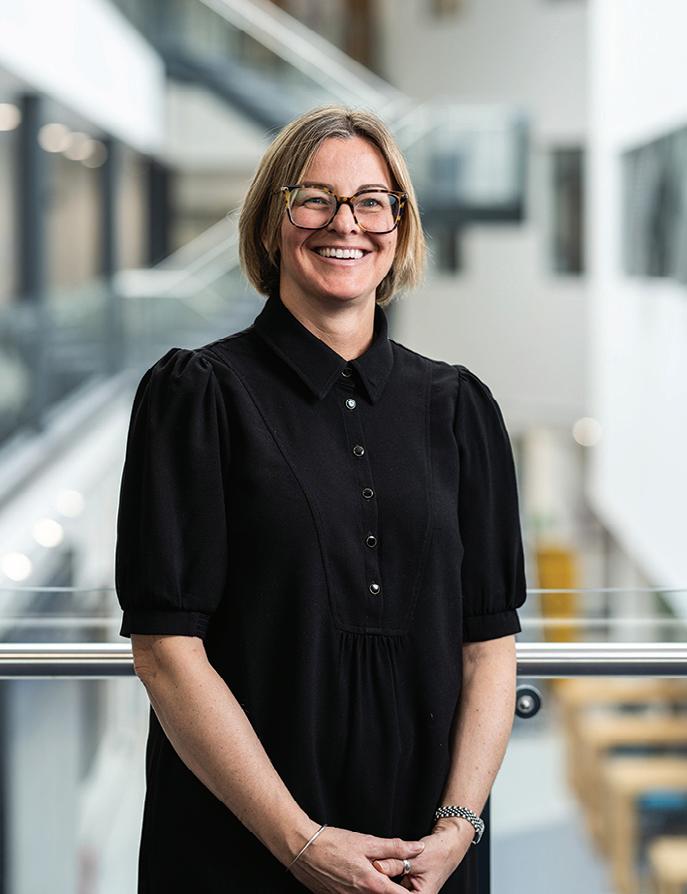
The care sector in the UK is facing a growing crisis. With an aging population, rising demand for services, and chronic staff shortages, pressure on providers has never been greater. In 2023, Skills for Care reported around 152,000 vacancies in adult social care in England alone. These challenges not only strain the system but also compromise the quality and continuity of care. Yet, a powerful and often underutilised solution lies in education and training pathways, particularly Foundation Apprenticeships, full Apprenticeships, and vocational work-based learning such as college placements and T Levels.
These routes into the care profession not only address immediate staffing shortages but also support the longterm sustainability and professionalism of the sector. By combining academic learning with hands-on practical experience, these pathways provide young people with the skills, confidence, and motivation to build fulfilling careers in care. In turn, employers benefit from a pipeline of wellprepared, passionate, and loyal workers.
FOUNDATION APPRENTICESHIPS: ENGAGING FUTURE TALENT EARLY
Foundation Apprenticeships (FAs), offered to school leavers (and up to the age of 19 or 24 with an EHCP), provide an invaluable early introduction to the care sector. These programmes combine classroom learning with structured work placements, giving apprentices the chance to gain practical experience in real care settings in an 8-month window. By engaging with the profession early on, students gain a realistic and positive understanding of what care work involves, dispelling myths and building confidence in their abilities.
This early engagement is crucial. Foundation Apprenticeships help students make informed career choices and allow employers to spot and nurture young talent as they enter the workforce. For the care sector, which traditionally struggles to attract younger workers, FAs serve as a vital bridge between education and employment. They also broaden access to the profession, particularly among school-leavers who may not have considered care as a viable or attractive career path.
COLLEGE PLACEMENTS AND T LEVELS: BUILDING REAL-WORLD EXPERIENCE
Further education colleges play a key role in preparing students for care roles. Health and Social Care students typically complete structured placements in settings such as care homes, day centres, and domiciliary services. These experiences allow learners to apply theory in practical environments and develop essential interpersonal skills.
T Levels, introduced in 2020, are two-year programmes for 16-19 year-olds that include a minimum of 315 hours of industry placement. The Health and Science T Level equips students with both technical knowledge and soft skills like empathy, patience, and communication - all vital for high-quality care.
For employers, T Level placements offer a low-risk way to assess potential recruits in real working contexts. Students who complete meaningful placements are often more confident and better prepared for full-time roles, leading to improved retention and smoother transitions into employment.
APPRENTICESHIPS: STRENGTHENING AND RETAINING THE WORKFORCE
While Foundation Apprenticeships and T Levels lay the groundwork, full Apprenticeships serve as a critical tool for both recruitment and retention in the care sector. Apprenticeships offer a blend of paid work and formal study, allowing individuals to "earn while they learn" and progress toward nationally recognised qualifications in adult care, childcare, and support work.
Crucially, apprenticeships cater to a wide age range and can be used both for new recruits and for upskilling existing staff. This makes them incredibly versatile. For young people who may not thrive in traditional academic routes, apprenticeships offer a clear, supported pathway into meaningful employment. For care providers, investing in apprenticeships can help fill vacancies with committed, well-trained individuals while demonstrating a commitment to workforce development.
Apprenticeships also promote staff loyalty. When employees are supported to learn and develop within their role, they are more likely to stay with their employer long-term. This helps to reduce the high turnover rates that plague the care sector and improves continuity of care for service users.
In a sector crying out for skilled, compassionate workers, the potential of Foundation Apprenticeships, college placements, T Levels, and full Apprenticeships cannot be overstated. These pathways equip learners with the necessary skills and values while embedding them in the culture of care from an early stage. By integrating education with employment, we can reshape how the care sector recruits and retains its workforce. This is not a short-term fix but a sustainable, future-focused strategy.
The care sector cannot afford to wait. By actively engaging with local education providers such as colleges, schools, and apprenticeship training organisations, care employers can build a robust pipeline of skilled, motivated individuals ready to make a difference. Whether it’s offering a placement, mentoring a student, or hiring an apprentice, every action contributes to a stronger, more sustainable workforce. Reach out to Exeter College today and start shaping the next generation of carers.
Sam has been part of the apprenticeship world for over 25 years, having gained vast experience in teaching, designing and managing the quality of apprenticeship curriculum in both independent training provider & College settings. Sam joined Exeter College over 4 years ago and played a key role in the Ofsted Outstanding grading for Apprenticeships. Apprentices@exe-coll.ac.uk https://exe-coll.ac.uk/apprenticeships/
See the advert on the facing page
PIONEERING TECHNOLOGY-ENHANCED CARE FOR THE FUTURE
Multisensory Care Solutions represents a significant advancement in specialist care provision, founded by industry veterans Karen Bradley and Brian Lumb. Drawing upon their exceptional track record of operating a CQC Outstanding-rated residential care home for complex care residents over three decades, the company brings unparalleled expertise to the care sector.
PROVEN LEADERSHIP IN CARE EXCELLENCE
Karen Bradley brings over 45 years of comprehensive experience working with individuals living with dementia, autism, learning disabilities, and other specialist needs. As a former Registered Manager and certified trainer across multiple care disciplines, her deep understanding of person-centred care principles has consistently delivered outstanding outcomes for residents and their families. Brian Lumb contributes extensive technical expertise from his background in multimedia systems, touchscreen displays, and point-of-information technologies. His proven track record in developing and implementing innovative digital solutions—both as a business owner and senior executive within major PLCs—provides the technical foundation for revolutionary care applications.
INNOVATION-DRIVEN CARE EXCELLENCE
The founders' unique combination of care expertise and technological innovation has enabled them to integrate cutting-edge solutions into their care delivery model. This pioneering approach to person-centred care through technology played a crucial role in achieving their CQC Outstanding rating, demonstrating measurable improvements in quality of life for residents and enhanced support for families.
INTRODUCING MULTISENSORY MAGIC

Building upon decades of practical experience, Multisensory Care Solutions has developed "Multisensory Magic"—an accessible software application designed to democratise technology-enhanced care. This cost-effective solution makes advanced multisensory interventions available to care providers across the sector, extending beyond premium facilities to benefit a broader range of residents.
Meeting Critical Care Challenges
With approximately one million people currently living with dementia in the UK—a figure projected to reach 1.5 million by 2040—the need for innovative care solutions has never been more urgent. Technology-enhanced interventions offer proven benefits in:
Sensory stimulation and engagement
Cognitive function support
Enhanced communication pathways
Improved resident wellbeing outcomes
A TIMELY CALL TO ACTION
As the care sector observes World Alzheimer's Month in September 2025, culminating in World Alzheimer's Day on 21st September, the opportunity to transform dementia care through accessible technology solutions represents both a professional imperative and a moral responsibility.
Multisensory Care Solutions stands ready to support care providers in achieving improved CQC ratings whilst delivering meaningful enhancements to resident care and family satisfaction. For more information see the advert on the facing page or please call or email Brian Lumb - 07801 498483 or Email - brian@multisensorycaresolutions.com www.multisensorycaresolutions.com
Restrictive practices such as physical restraint, bed rails, or lap belts remain one of the most challenging aspects of health and social care. Intended to keep patients safe, they can also cause harm, distress, and loss of dignity when used unnecessarily. Across the UK, the principle is clear: care must always use the least restrictive option.
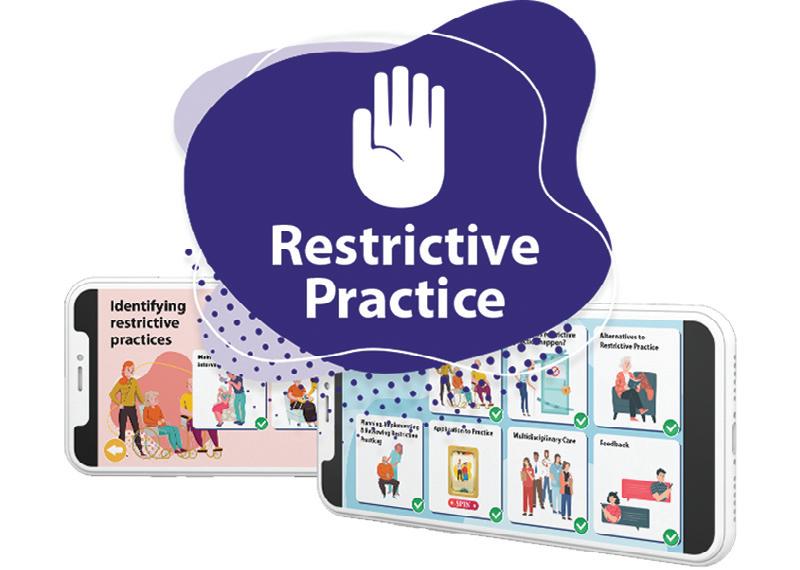
Legislation provides the framework, but culture and staff behaviour shape daily practice. Nurses, carers, and clinicians often make quick decisions balancing safety with autonomy. Without training, restrictive practices risk becoming routine. To change this, staff need better understanding of the human impact and confidence to use alternatives. That’s where Restrictive Practice makes a difference. Developed through co-design workshops with patients and carers, this gamified e-resource gives a voice to those most affected by restraint. Their lived
experiences shaped the learning, helping staff see restraint not as a neutral safety tool, but often as something frightening or disempowering.
The results are powerful. Staff trained with the resource led Quality Improvement projects, achieving measurable reductions:
- Bed rails dropped from 360 to 277 incidents
- Bed bumpers from 303 to 227
- Lap belt use halved, from 46 to 22
These improvements represent safer, more compassionate care and reassurance for families.
Restrictive practices may never disappear entirely, but they should be the exception, not the rule. With the right knowledge and tools, staff can choose safer alternatives and build a culture of dignity, compassion, and respect across UK care services. See our advert on the front cover or visit www. RestrictivePractice.com



Users / providers are enabled to ‘CONJURE
and reminiscence therapy sessions. Audio, video, slide shows, text, images and aromas can all be blended
using multiple screen displays.




A new apprenticeship has been launched for adult care support workers who assist people with mental health challenges, including dementia and neurodiversity.
Leading training provider Realise has revealed its new Level 3 Senior Healthcare Support Worker Apprenticeship which features a specialist mental health pathway.
The apprenticeship aligns with The Care Workforce Pathway - developed by Skills for Care and the Department of Health and Social Care –which emphasises the importance of equipping staff who support people with mental ill health with the right knowledge and skills.
The programme’s focus on mental health makes it ideal for those working in complex care services or supporting individuals living with dementia or mental health conditions. It also benefits those supporting individuals with a dual diagnosis.
Standard apprenticeship funding rules apply with no age restrictions. However, learners aged 16–22 are eligible for 100% government funding, meaning non-levy employers are not required to pay the usual 5% co-investment. This is available in England only.
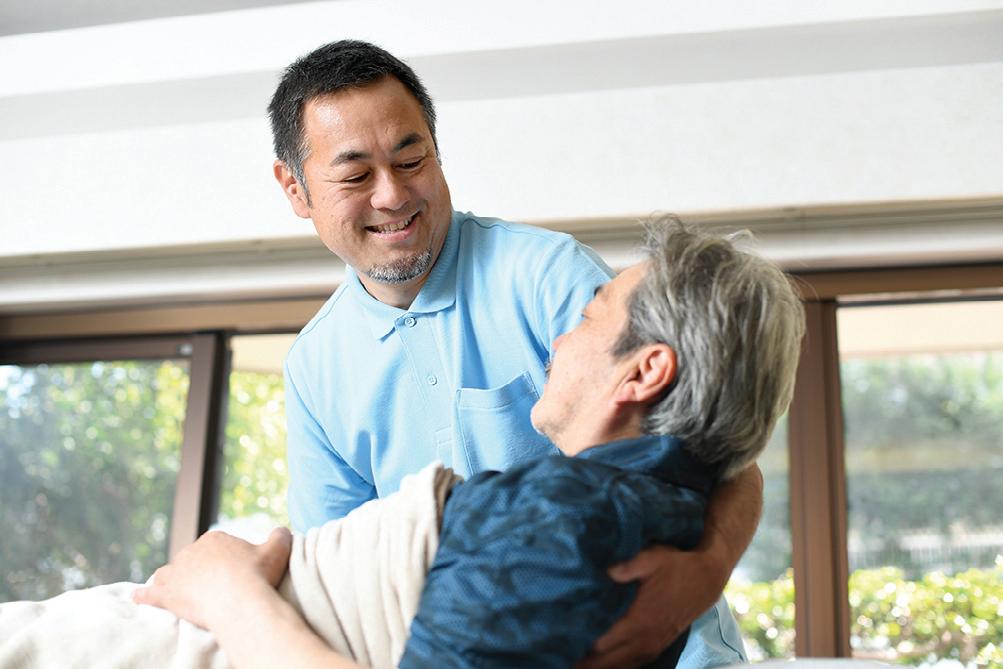
While a few other providers offer the Level 3 Senior Healthcare Support Worker Apprenticeship in Mental Health Pathway, the Realise progamme was developed in collaboration with leading industry provider Barchester Healthcare, ensuring it is closely aligned with the real-world demands of the role, particularly in complex care.
Angela Kaine, Director of Health & Social Care at Realise, said: “We fully support The Care Workforce Pathway, which emphasises the importance of people being able to receive training in areas in which they
specialise.
“Care workers supporting individuals with dementia or other mental health conditions benefit greatly from targeted training in crisis intervention, mental capacity and de-escalation techniques.
“Offering this apprenticeship can help adult care providers recruit individuals for specialised roles and improve retention - two major challenges within the sector.
“There is a wide variety of opportunities within adult care, and we’re proud to support those looking to develop both their technical skills and their chosen specialism.”
This comprehensive 18-month apprenticeship is designed to provide a rich and supportive learning experience. Learners will benefit from a blend of face-to-face support and interactive webinars, creating the perfect balance between in-person guidance and flexible online learning.
These sessions not only enhance understanding but also offer valuable opportunities to connect, collaborate, and network with peers from across the sector- helping to build confidence, share best practices, and develop lasting professional relationships.
Modules include quality improvement - where learners are challenged to identify small changes to enhance performance - and team leadership, which encourages them to take on more responsibilities.
Realise can tailor programmes to suit the employer’s needs by utilising unit selection through the diploma.
The apprenticeship is available throughout England.
For more information, visit www.realisetraining.com
In today’s regulated care environment, having clear, current, and wellcommunicated health and social care policies is essential for delivering safe, compliant services. The Care Quality Commission (CQC) now places increasing emphasis on how policies are implemented and understood—especially during registration and inspections.
Outdated or poorly communicated policies can significantly impact your CQC rating. Even if documentation is comprehensive, failure to ensure staff understand and follow procedures may lead to a “Requires Improvement” or even “Inadequate” rating under the ‘Effective’ domain.
Well-maintained policies promote consistent standards across care teams and help safeguard services when incidents arise. In regulatory investigations, the first request is often to review relevant policies—making accuracy and accessibility key to reducing legal and compliance risks.

However, keeping policies up to date is challenging. Constant changes in legislation, best practice guid-

page
ance, and case law mean that policies can quickly become obsolete. W&P has been a trusted provider of CQC-ready care policies and procedures for over 20 years. Our expert team monitors industry developments to ensure your policies remain fully compliant.
Our Online Policy Portal simplifies policy management. With just a few clicks, providers can update content, distribute documents to staff, track confirmations, and monitor compliance via a real-time dashboard. You can even provide temporary read-only access to inspectors—demonstrating transparency and accountability instantly.
Ensure your care service meets CQC expectations with fully up-to-date, easily accessible, and well-communicated policies.
Email: info@wandptraining.co.uk
Call: 01305 767104
for details.
Since our founding in 2010, Activities to Share has been dedicated to enhancing the lives of those in care by providing thoughtfully designed activity products. Our mission is to support activity coordinators in delivering uplifting, engaging experiences that foster connection, joy, and well-being.
We achieve this by listening closely to your feedback and evolving with your needs. Whether over the phone, via email, WhatsApp, or Live Chat on our website, our team is always ready to offer advice and help you find just the right products to bring your ideas to life.

While we embrace the convenience of technology to expand our resources and share knowledge, we remain firm believers in the irreplaceable power of sensory engagement. That’s why we continue to make our Reminiscence Kits and Sensory Bags with
real, tactile items that stimulate the senses. Some experiences—like popping bubbles for the splash, breathing in a familiar scent, or piecing together a puzzle with others—simply can’t be replicated on a screen. These sensory moments are invaluable in encouraging storytelling, sparking memories, and fostering conversation. Our values remain rooted in this commitment to meaningful connection. We’re here to partner with you—the professionals on the front lines of care—to create a sense of structure, well-being, and fun for those who need it most.
Are you longing for your activity diary to be full?
Look no further
www.activitiestoshare.co.uk are here for you! Call 0117 966 6761


Rebecca Pallot, a partner and employment lawyer at Mills & Reeve

The much-debated Employment Rights Bill promises to bring widespread reforms to employment law. As it reaches the final stages of the Parliamentary process, Rebecca Pallot, employment lawyer at Mills & Reeve, looks at three groups of measures which will have a particularly significant impact on employment relationships in the adult social care sector.
The Government intends to use the Bill to abolish the two-year qualifying period for unfair dismissal, making the entitlement to bring a claim effective from the first day of employment. It also proposes to introduce a new framework for a lighter touch unfair dismissal regime during an “initial period of employment”. That lighter touch process has been described as a “probationary period exemption”.
Under the proposals, a care home provider will be able to dismiss fairly during the initial period if they can demonstrate a potentially fair reason for dismissal which relates to the individual employee. It will also be possible to bring claims in respect of dismissals for redundancy from the first day of employment.
Regulations will define the length of the initial period of employment and how it is calculated. This is likely to be a minimum of six months and could be as long as a year, with the Government currently supporting a compromise of nine months.
(www.mills-reeve.com) assesses three groups of measures in the Bill which are particularly significant for the adult social care sector.
It remains to be seen what the exact process will be to make a dismissal fair in the initial period but it is clear, that there is growing concern amongst care home operators about the increased risk of unfair dismissal claims. While some think that this change could be cost-neutral, because it will give employers a greater incentive to manage probationary periods effectively, much will depend on the design of the regulations, on which the Government will be consulting shortly.
There are three groups of measures to protect zero-hours and low hours workers, as well as agency workers employed in the adult care sector on similar arrangements:
the right to guaranteed hours after the end of every reference period, which reflects the hours worked during that period the right to reasonable notice of shifts (including change and cancellation), and the right to payment for cancelled, moved and curtailed shifts where sufficient notice has not been given
The new regulations will define the reference period for calculating guaranteed hours and other conditions of entitlement, as well as the procedural requirements around the offer of a new contract. They will also specify the minimum notice period for the cancellation of shifts, the compensation due and when it must be paid.
According to the Bill’s impact assessment, these measures will have a disproportionate impact on the social care sector, where over a fifth of its workforce are believed to be engaged on zero-hours contracts or similar arrangements which would be in scope.
There will be significant direct and indirect costs in complying with these measures, which are among the most complex in the Bill.
The three-day waiting period to qualify for SSP will be abolished so that it is paid from the first day of sickness. The Lower Earnings Limit, which
prevents those who earn below a certain amount from claiming SSP, will also be removed. Once these changes take effect, SSP will be paid at 80% of average weekly earnings or the current flat rate, whichever is lower.
As with the measures in respect of zero hour contracts, the Government’s plans to reform SSP will have a significant effect on the social care sector, because of its relatively high proportion of lower paid workers. However, it is possible that the resulting improvements in staff welfare will bring productivity gains to offset at least some of the additional costs.
According to the Government’s implementation timetable, published in July, changes to SSP eligibility will be brought into effect in April 2026, giving care home providers a small window in which to prepare for these reforms.
Other measures in respect of zero hours contracts and unfair dismissal will not be brought into force until 2027. As such, employers have more time to implement any necessary changes. In the meantime, it’s important for providers to keep an eye on this constantly evolving area of law, while engaging with the Government’s consultation on the regulations required to implement these measures, which is expected shortly.
Employers could consider taking the following steps:
• assess your organisation’s dependence on workers who are not permanent employees with predictable hours
• review procedures for probationary periods and ensure that line-managers are trained to implement them, and
• align your sickness absence procedures with the changes to SSP being introduced in April.
While the Bill also creates the framework for establishing a negotiating body to set pay and conditions across the entire adult care sector in England, it remains to be seen what impact the proposed measures will have on the sector.

Specialist business property adviser, Christie & Co, has launched its Care Market Review 2025 report, which analyses a range of topics relating to the UK healthcare business market, including capital markets, land and development, the transactional market, shifts in local authority fee rates, operator sentiment and the finance landscape. Healthcare the report reveals, remains a compelling investment due to strong demographic drivers, particularly the ageing population and rising life expectancy, with the over-80s population expected to more than double by 2050. Investor interest is further supported by ESG credentials and inflation-linked, long-income lease structures the report reveals.
The 12 months to July 2025 marked a period of strategic realignment amid ongoing macroeconomic and geopolitical shifts, with the market evolving via increased M&A, joint ventures, and a growing focus on management contracts.
Overseas capital significantly boosted deal activity during this time, with sector-specialist REITs like Welltower and Omega leading major acquisitions, including Care UK and 45 Four Seasons care homes respectively. H1 2025 also saw robust investor activity, including notable M&A deals like Care Trust REIT’s acquisition of Care REIT plc and the Aedifica-Cofinimmo merger. While operators are increasingly using lease-based models and sale-and-leaseback structures to unlock capital, looking ahead, Christie & Co expects to see more investors exploring sale and manage-back models, offering higher returns with greater operational exposure. Christie & Co’s report goes on to analyse the transactions that it has conducted over the past year. Deal activity surged, with completions at their highest level, and Christie & Co’s pipeline 24 per cent ahead of where it was in 2024. 49 per cent of deals involved homes with 20 to 39 beds, while only 17 per cent were for homes over 60 beds.
A notable shift occurred in the profile of homes entering the market, with a rise in smaller care homes (under 20 beds) making up 38 per cent of instructions, an increase from 12 per cent in early 2024. Larger homes (over 60 beds) comprised just 5 per cent of instructions, down from 15 per cent, reflecting a shortage of purpose-built facilities. Homes with 20 to 59 beds accounted for 56 per cent of instructions, down from 73 per cent in 2024.
First-time buyers represented 17 per cent of deals in H1 2025, up from 11 per cent in 2024 and just 4 per cent in 2023. Small and medium-sized groups (those with 3 to 19 homes) were the most active buyers (32 per cent of deals), followed closely by independent operators (those with 1 to 2 homes) at 31 per cent. Large groups and corporates saw a decline in activity, accounting for only 20 per cent of deals, down from 36 per cent in 2023.
Homes sold with vacant possession rose to 21 per cent in 2025, up from 13 per cent in 2024. Of these closed homes, 60 per cent remained in care use, 24 per cent were converted to residential dwellings, and 16 per cent repurposed for other uses. This high closure rate in the sector is something that Christie & Co expects will continue.
Christie & Co also conducted and analysed a Freedom of Information Act survey, covering all 174 local authorities across England, Wales, and Scotland. It revealed an average residential fee increase in England of 8.6 per cent compared with 9 per cent in 2023/24. There were some notable fee rate uplifts in certain local authorities, albeit from a low base level.
The burden on the self-funded client base is likely to rise, with the majority of providers achieving private fee increases of between 5 per cent and 10 per cent, sometimes more.
A segment from Christie Finance on the finance landscape notes that the care sector continues to attract strong interest from the finance market, with both new and established operators seeking debt funding to sup-
Global assists clients throughout the U.K. who specialise in the healthcare sector to achieve their objectives of purchase, development and refinance.
We have organised over £1.8bn for clients in the past 30 years, providing clients with competitively priced funding to refinance existing debt, ease cashflow and develop businesses further.
From helping clients make their first purchase through to allowing groups to grow significantly in size we assist at every stage of your business expansion.

Every proposal is individual and deserves to be treated that way, so we hope you will allow us to be of assistance to you and call us to chat through your plans and requirements, I am sure we will be able to tailor a facility to your requirements.
Call us on 01242 227172 or e-mail us at enquiries@globalbusinessfinance.net
port growth. However, securing finance remains challenging due to increasingly rigorous lender requirements. Richard Lunn, Managing Director – Care at Christie & Co, comments,
“We have seen extremely positive market activity throughout the year, as many operators look to grow their portfolios. By the end of August, we had already transacted more deals than in 2024, and our forward pipeline is the highest ever, reflecting the investor and operator desire to acquire care services. On a recent trip to the USA, investors called this a ‘Goldilocks period’ for senior care providers and investors, with the much-heralded arrival of the huge demographic wave of elderly people requiring care and support and limited quality supply to meet this demand in future years.”
To read the full Care Market Review 2025, visit: www.christie.com/sectors/care/care-market-review-2025

